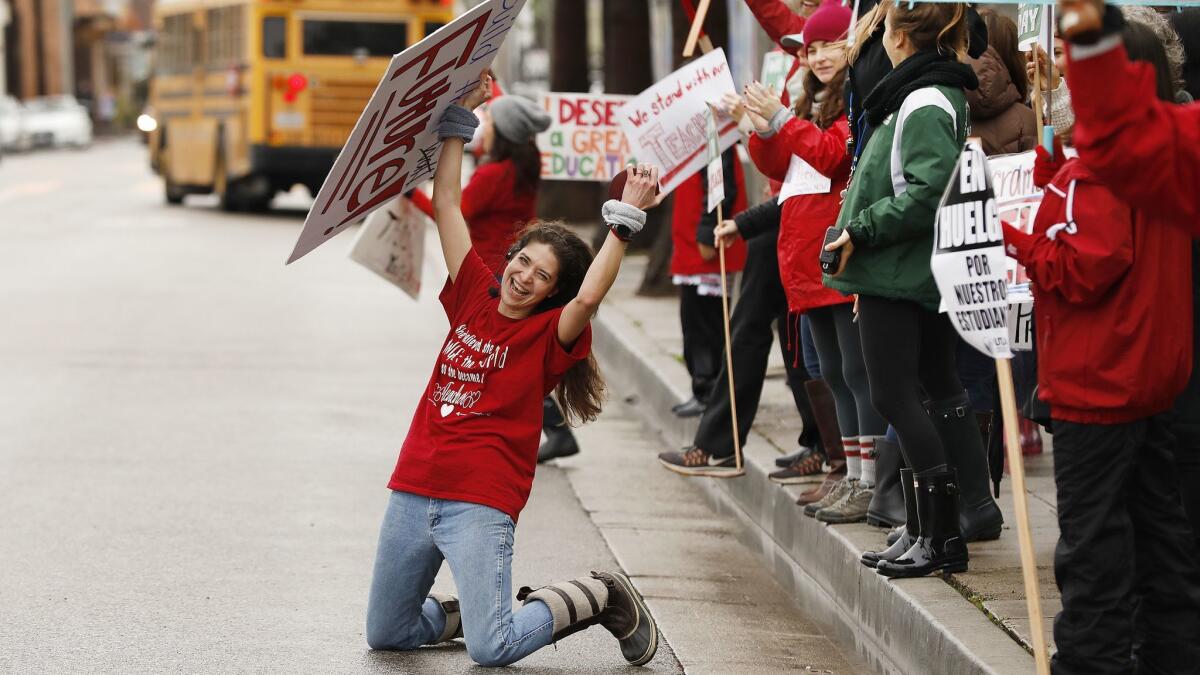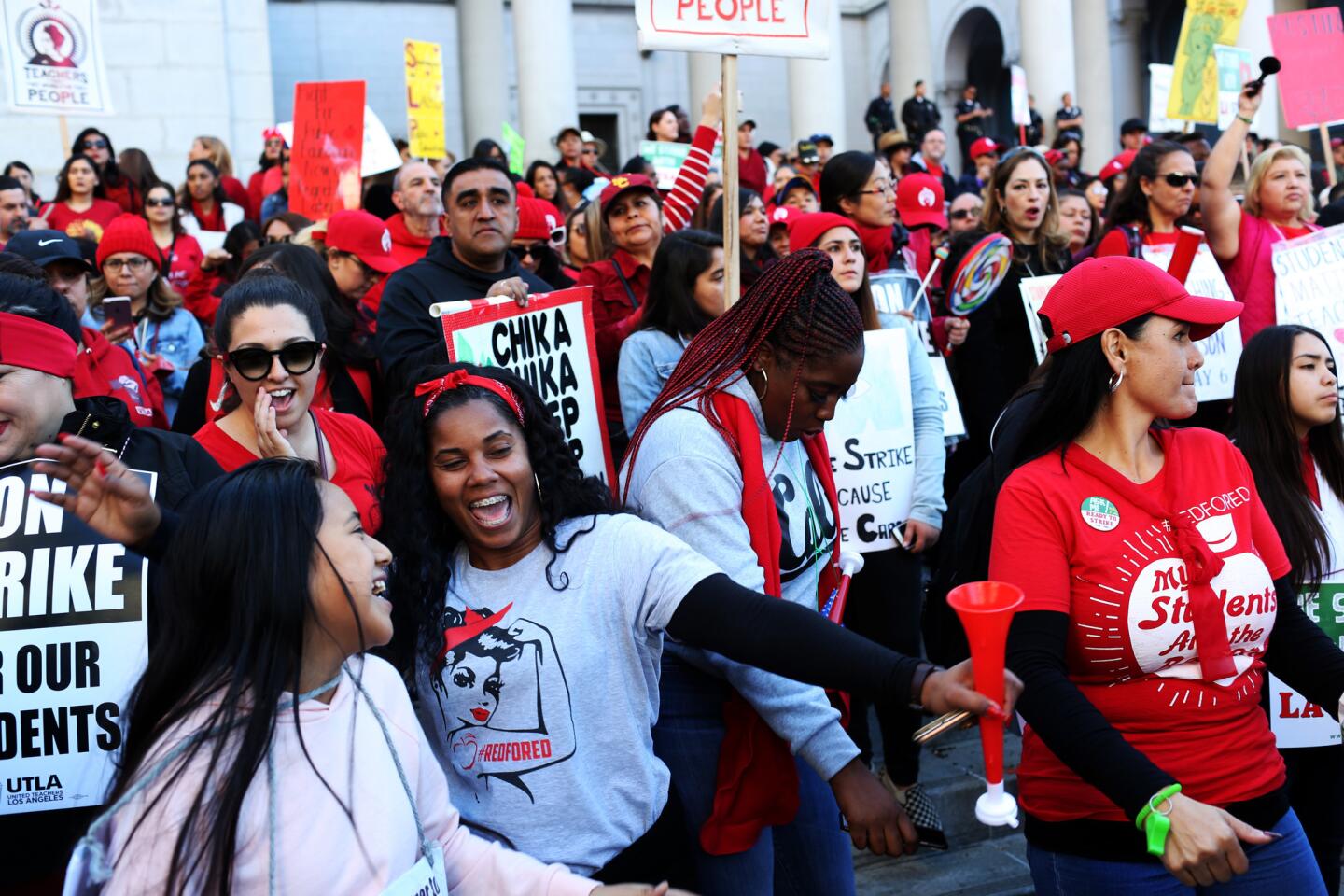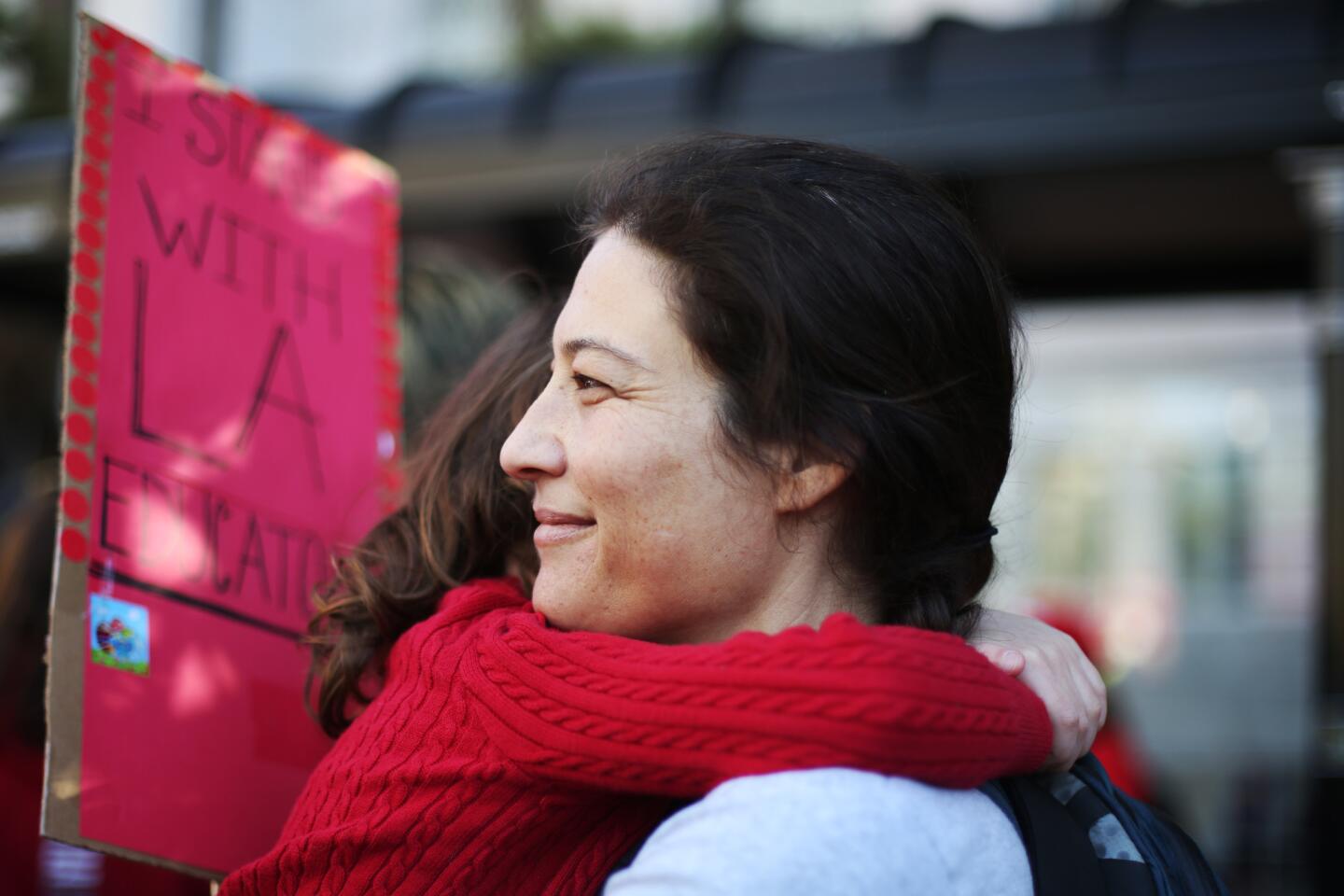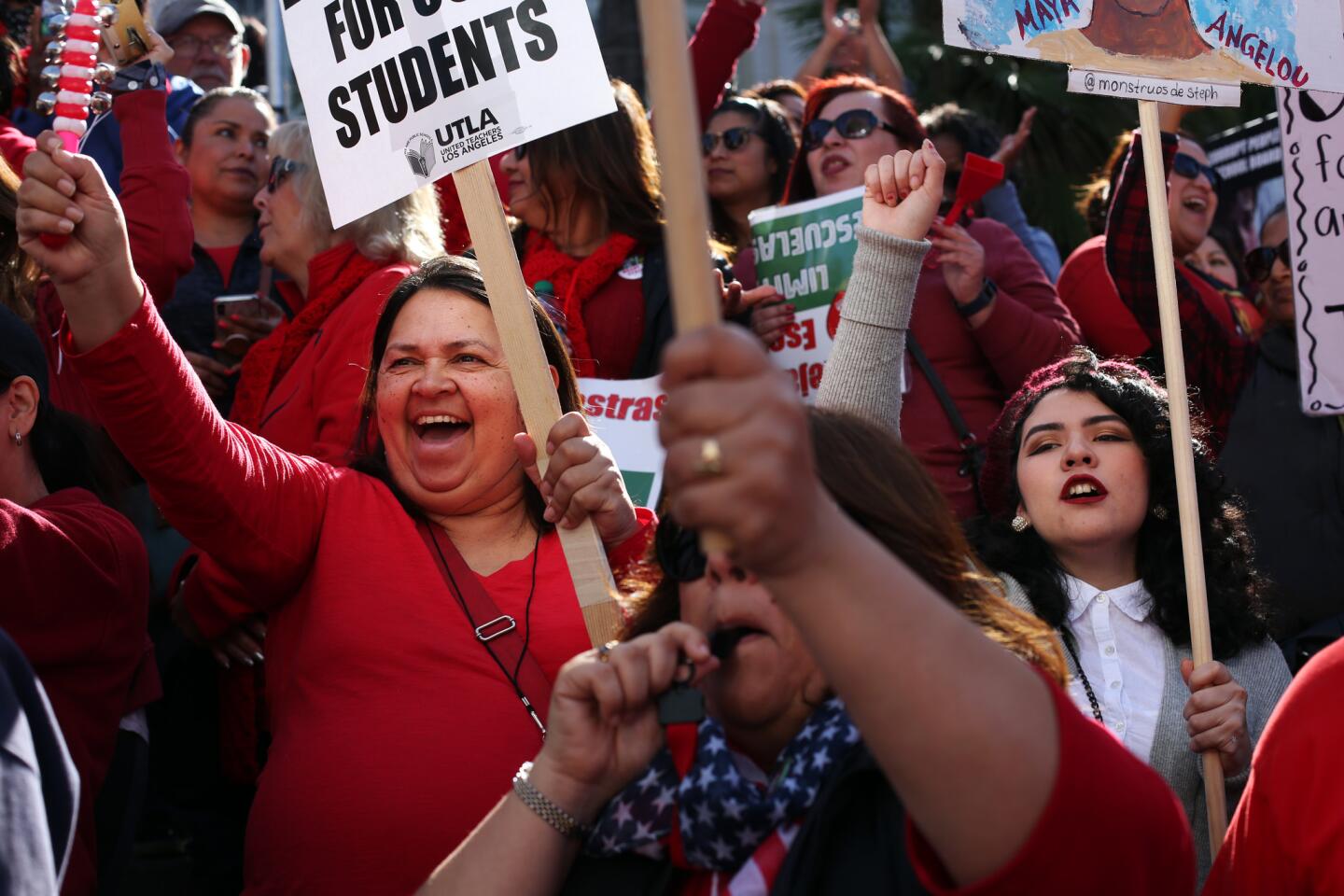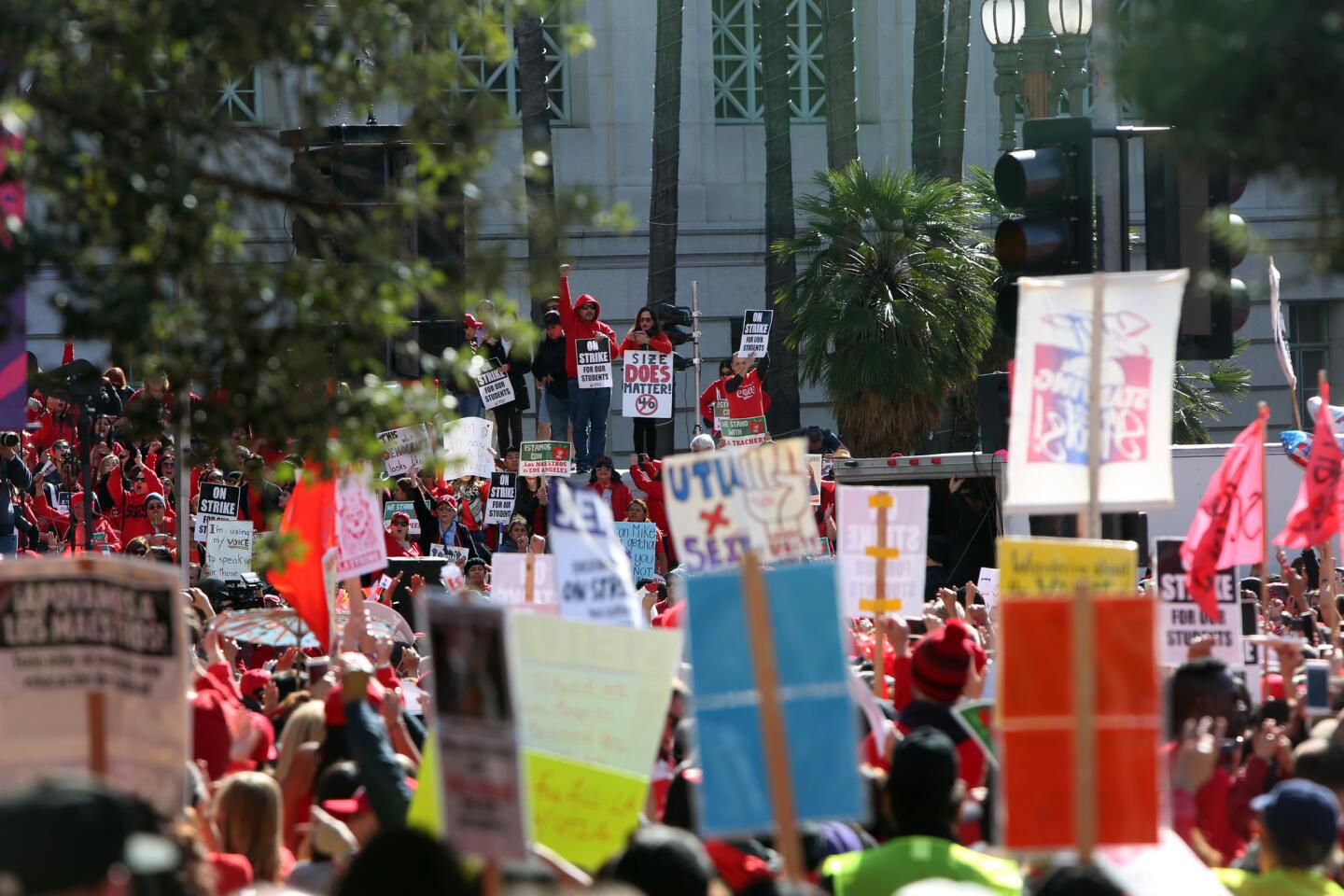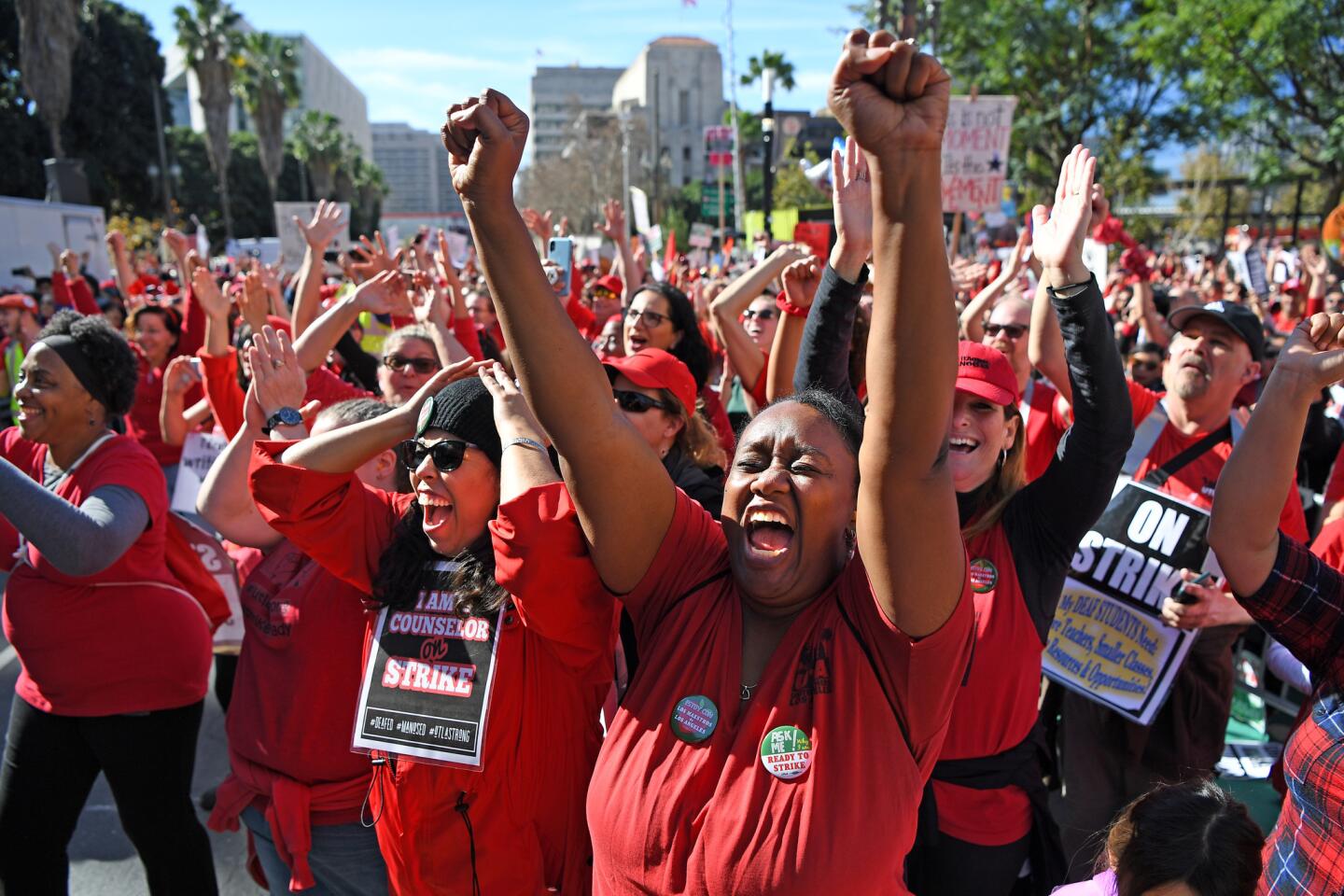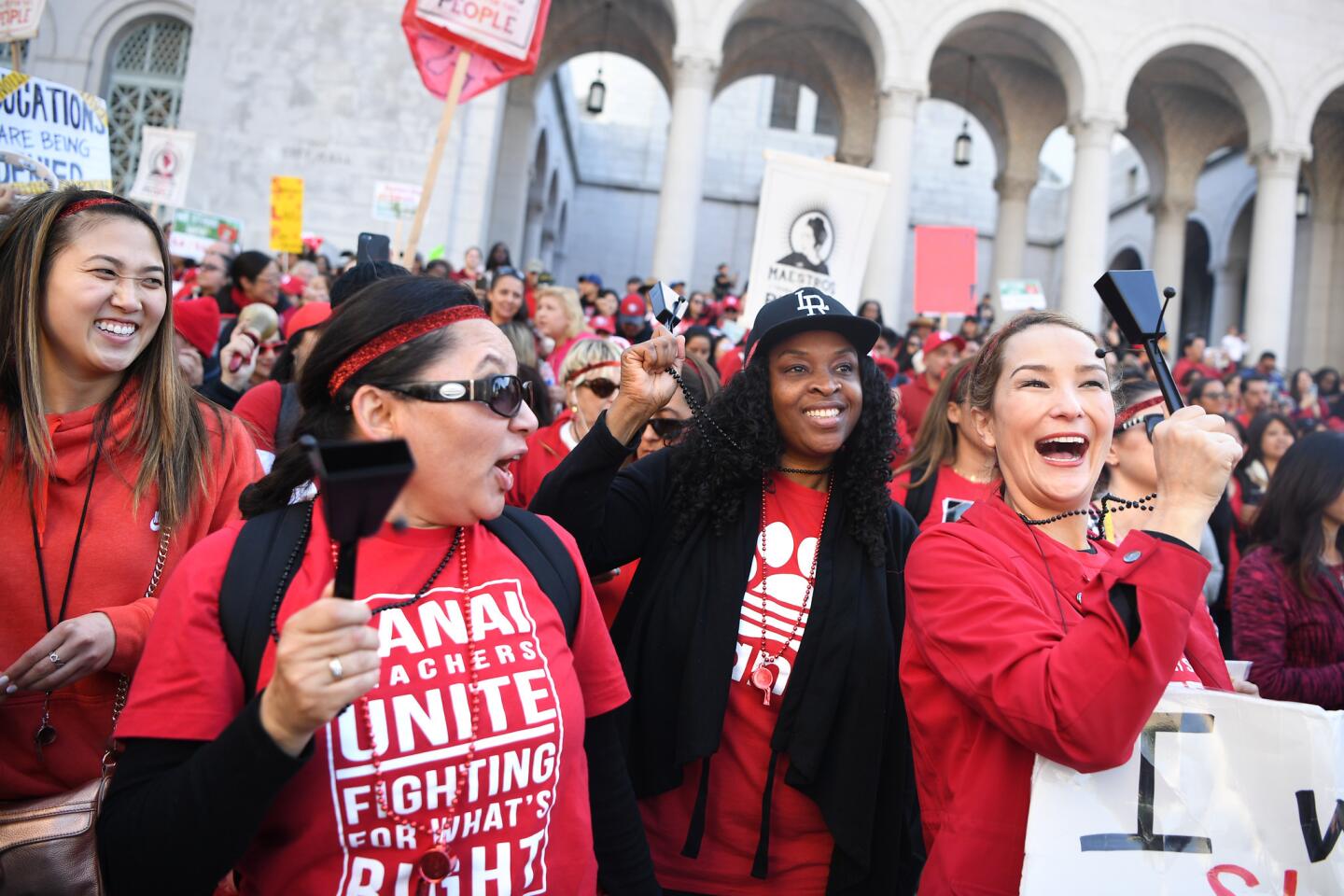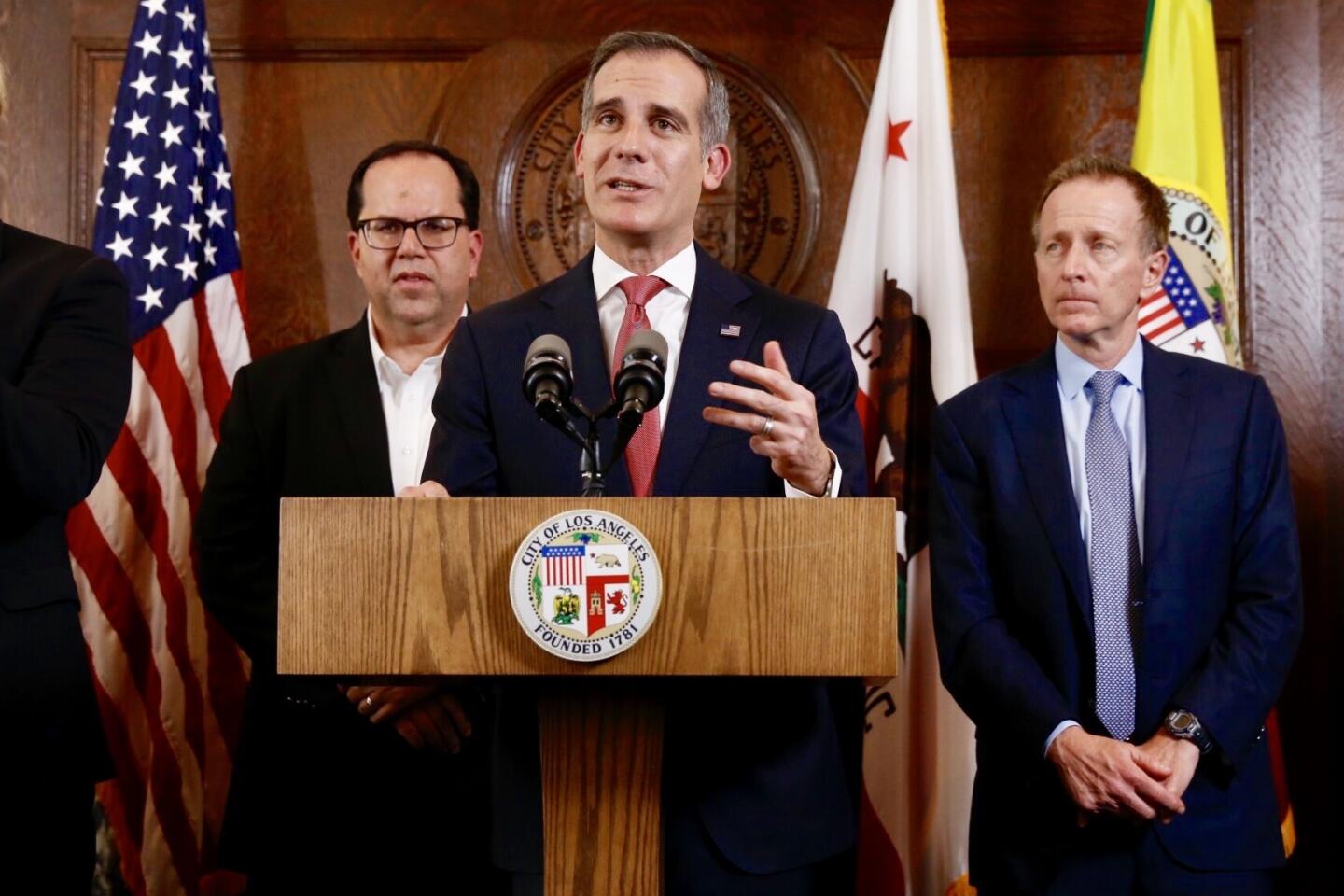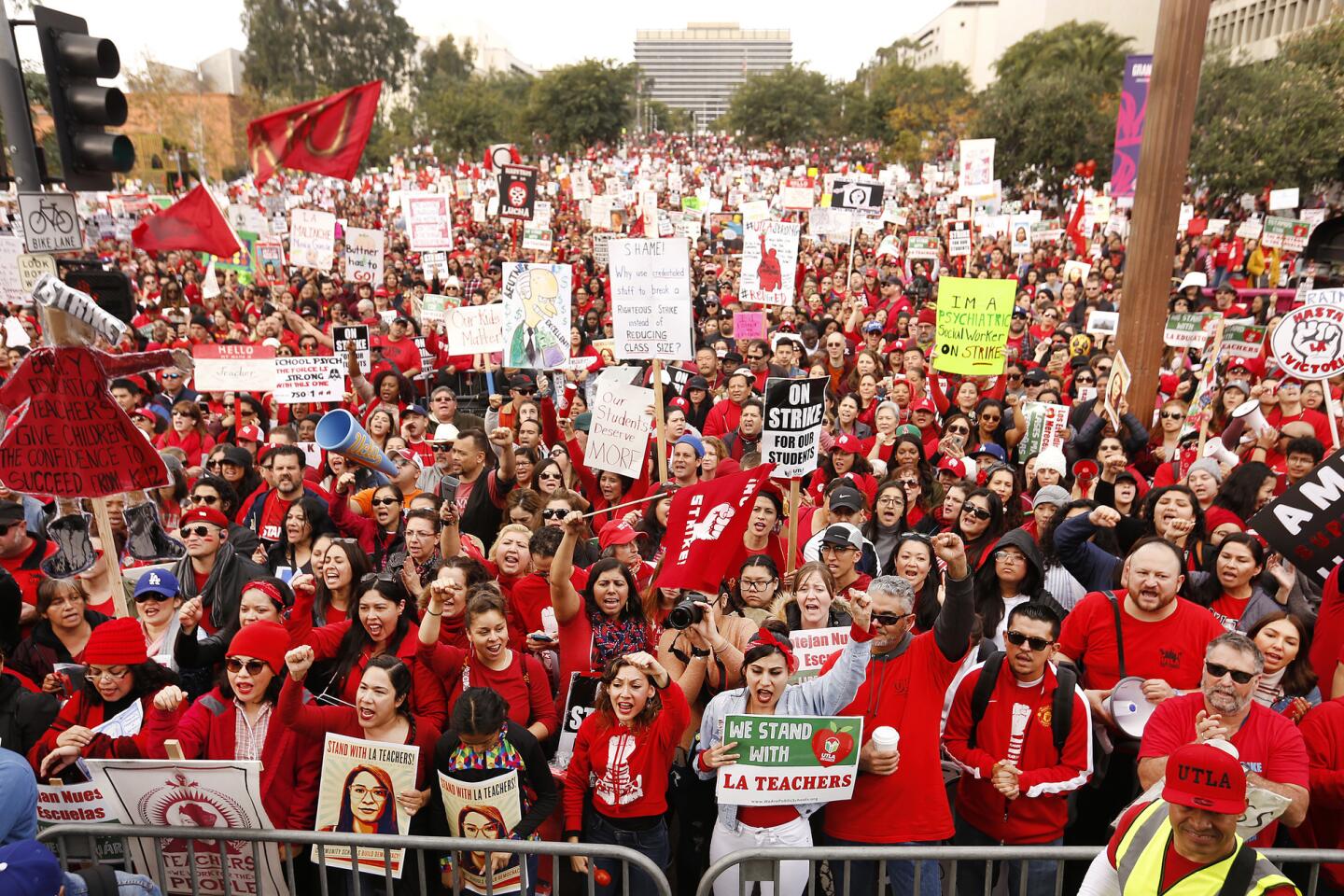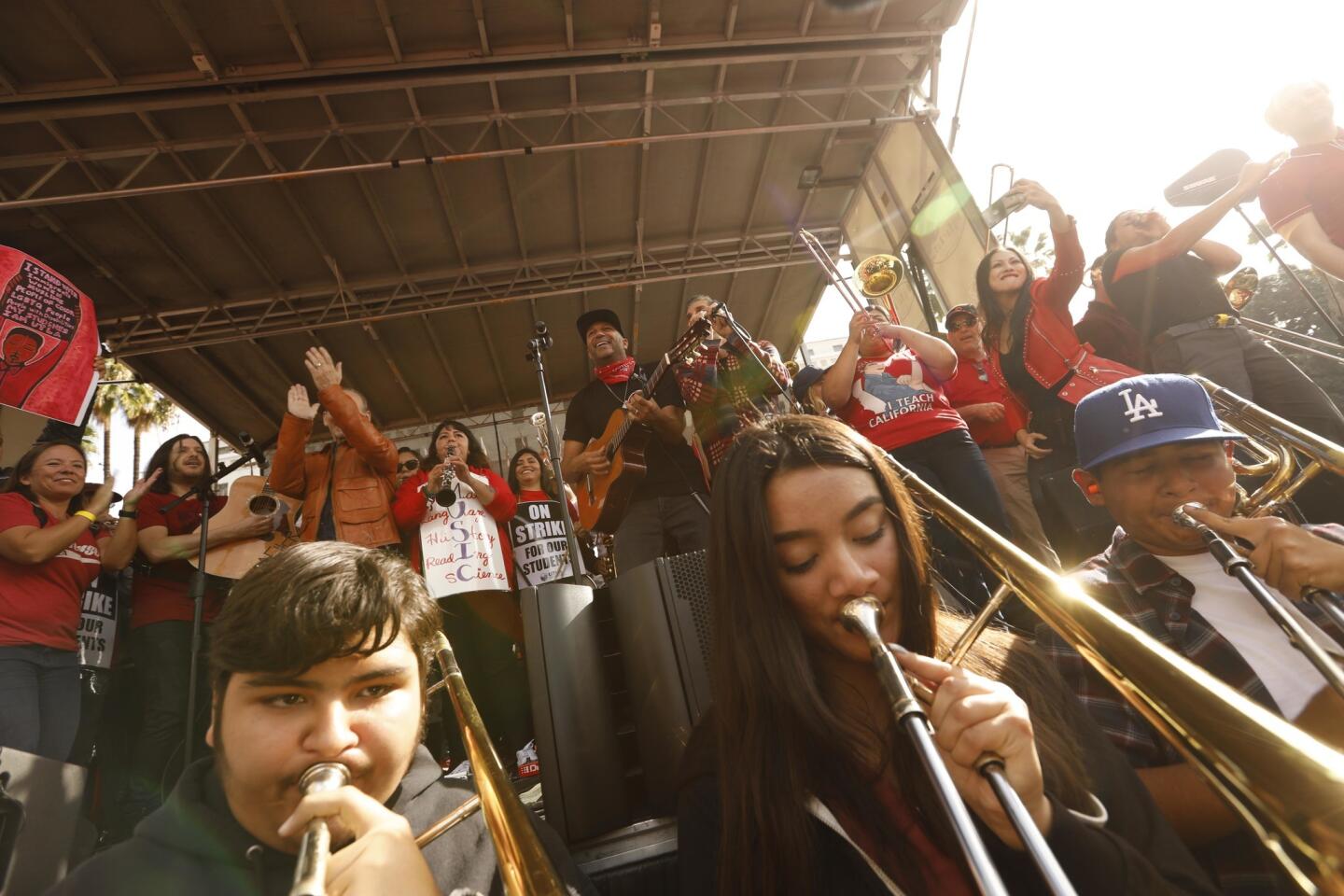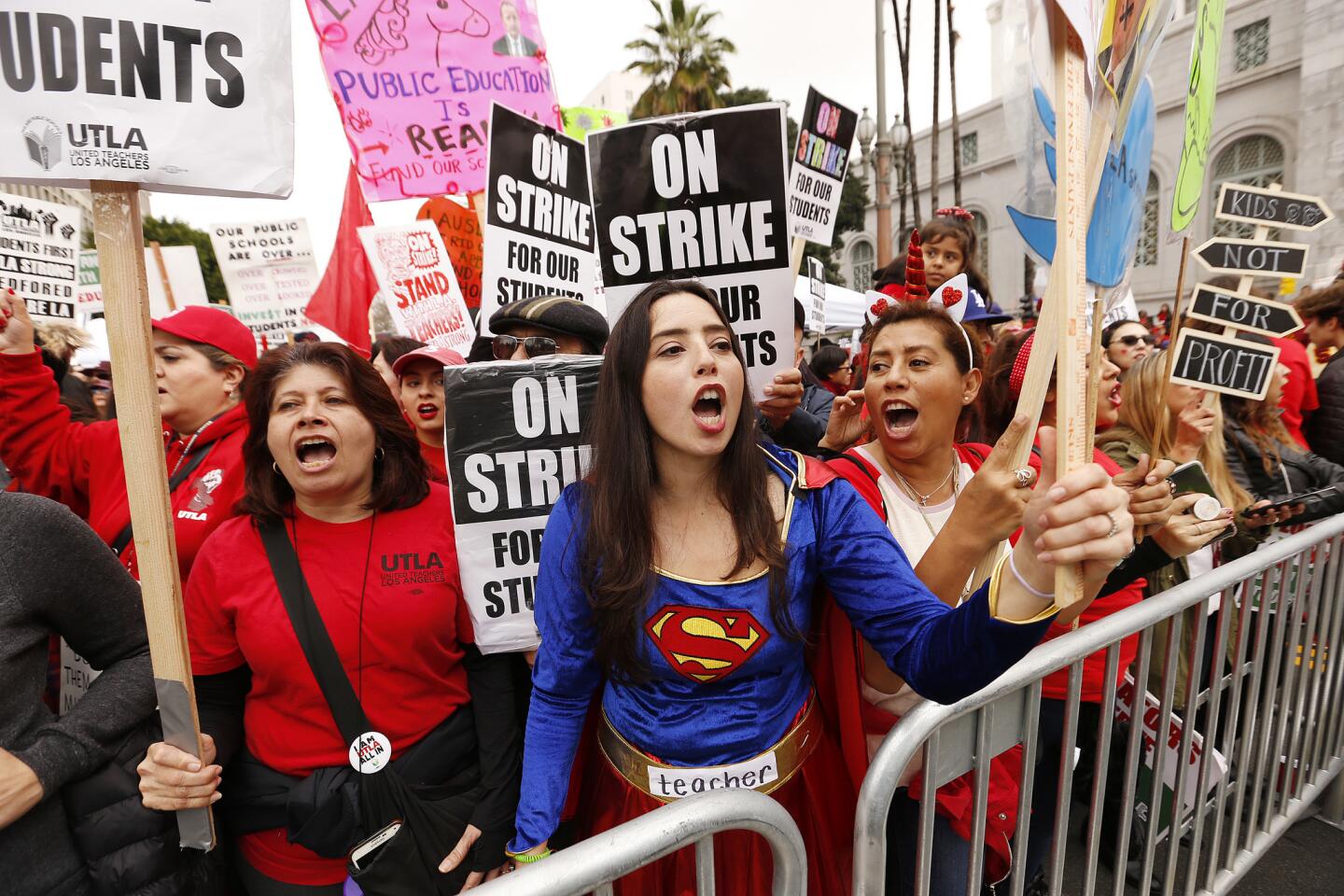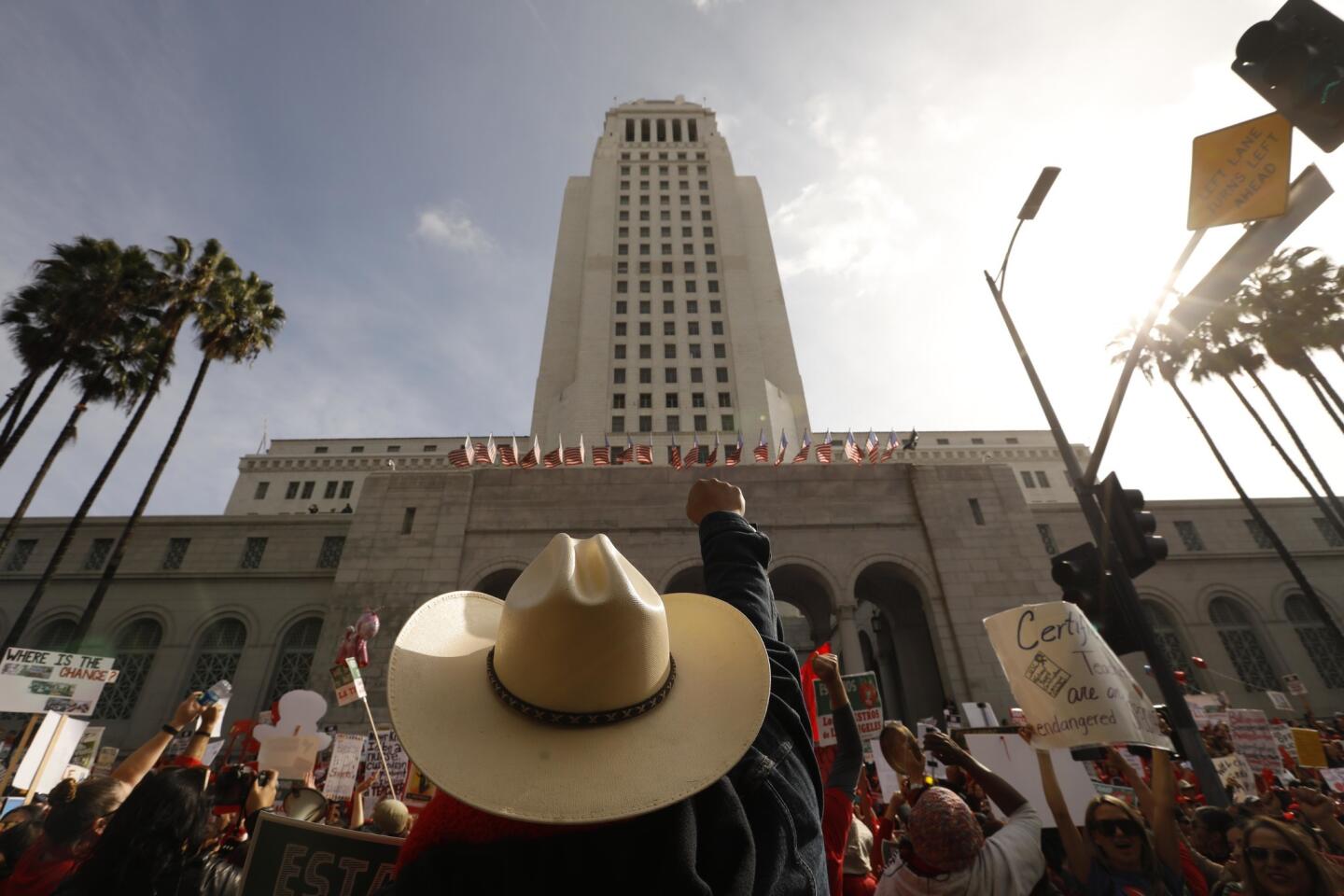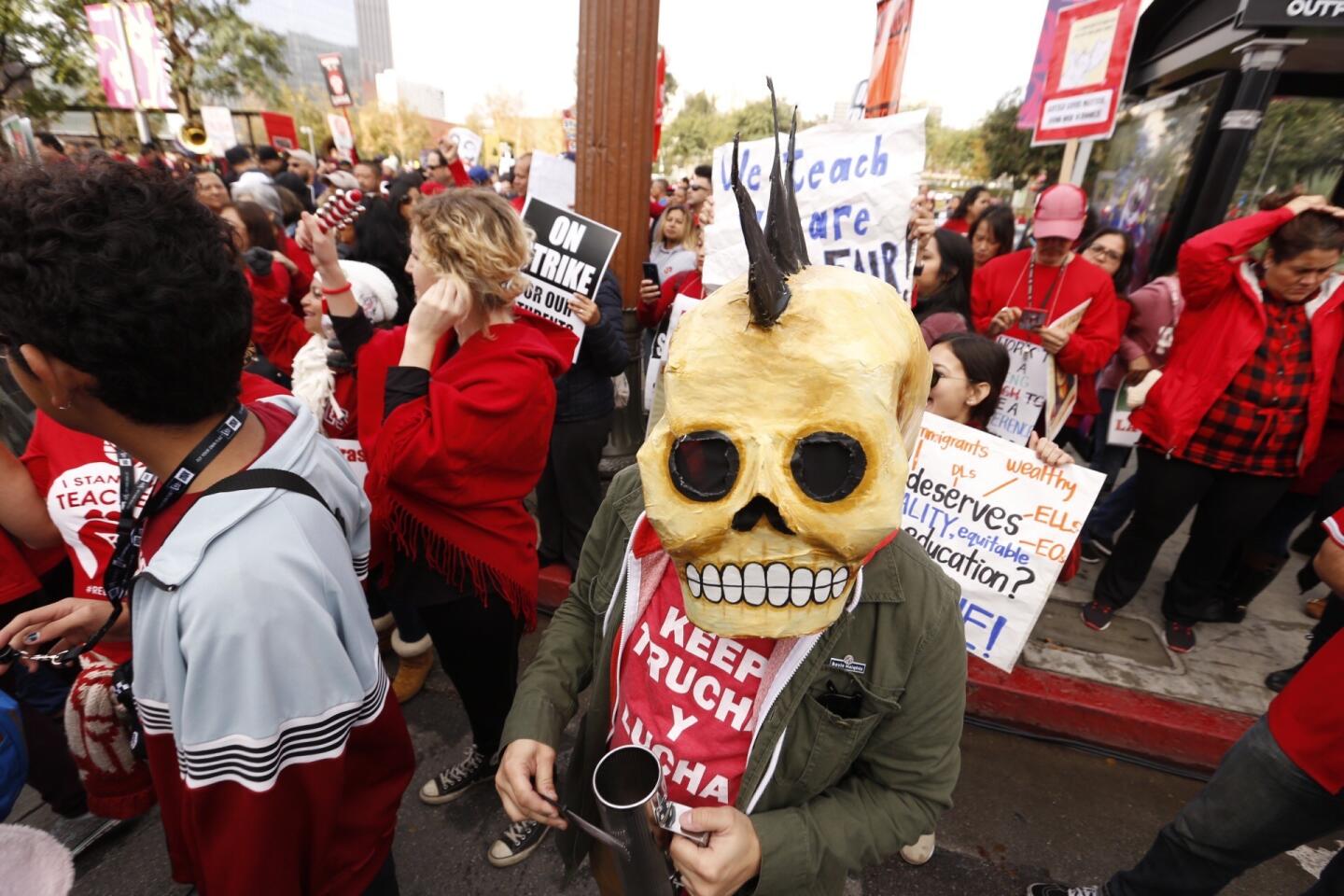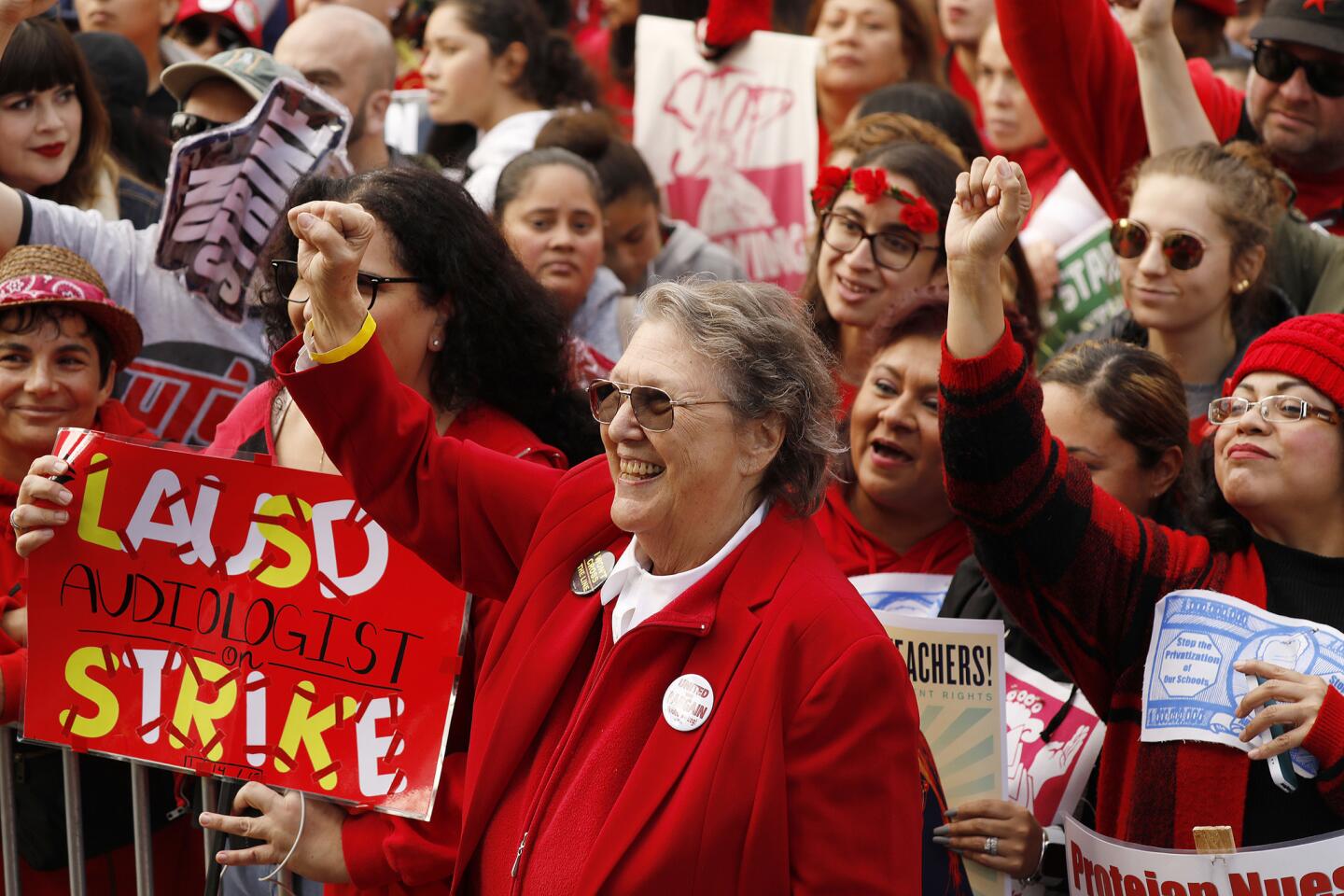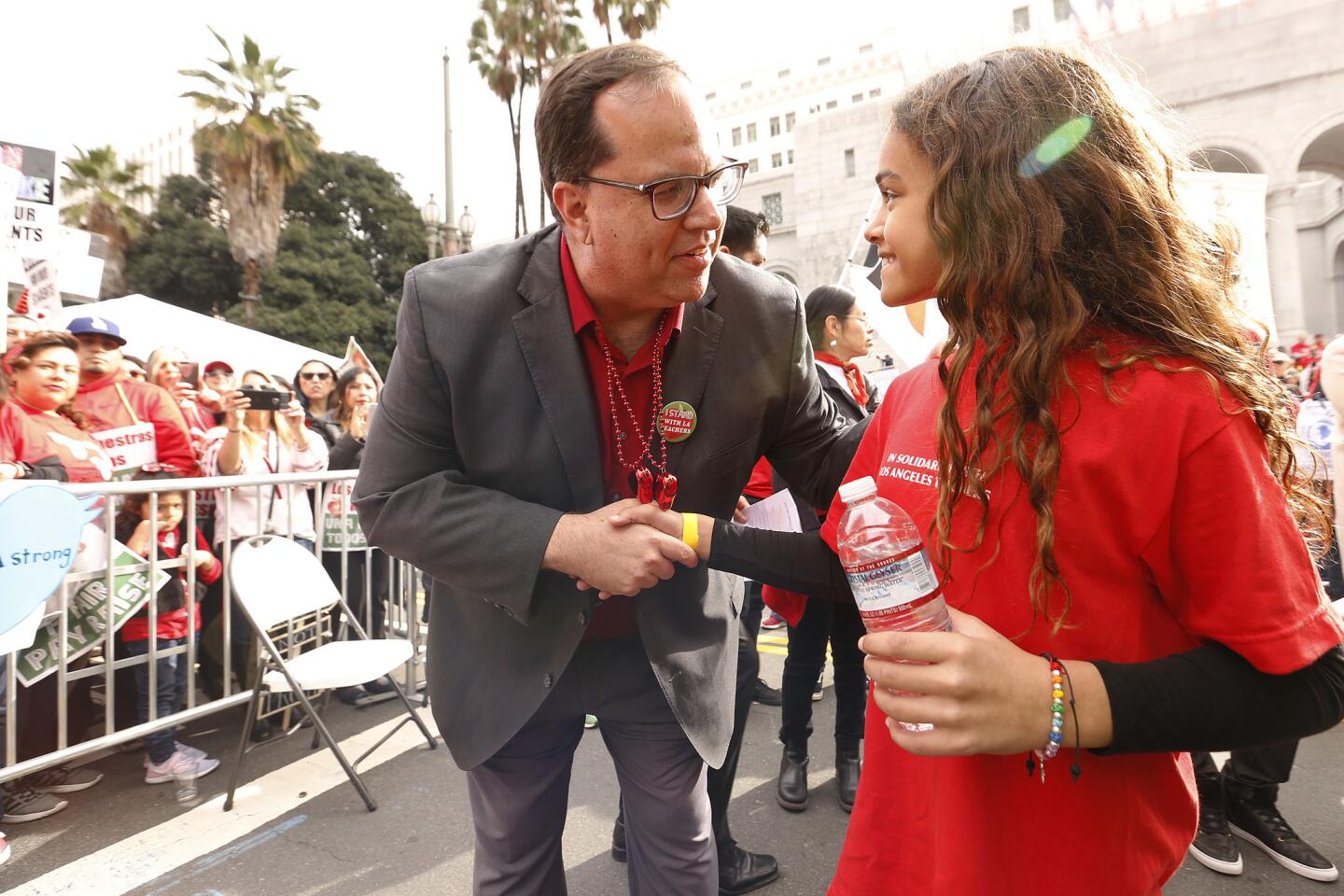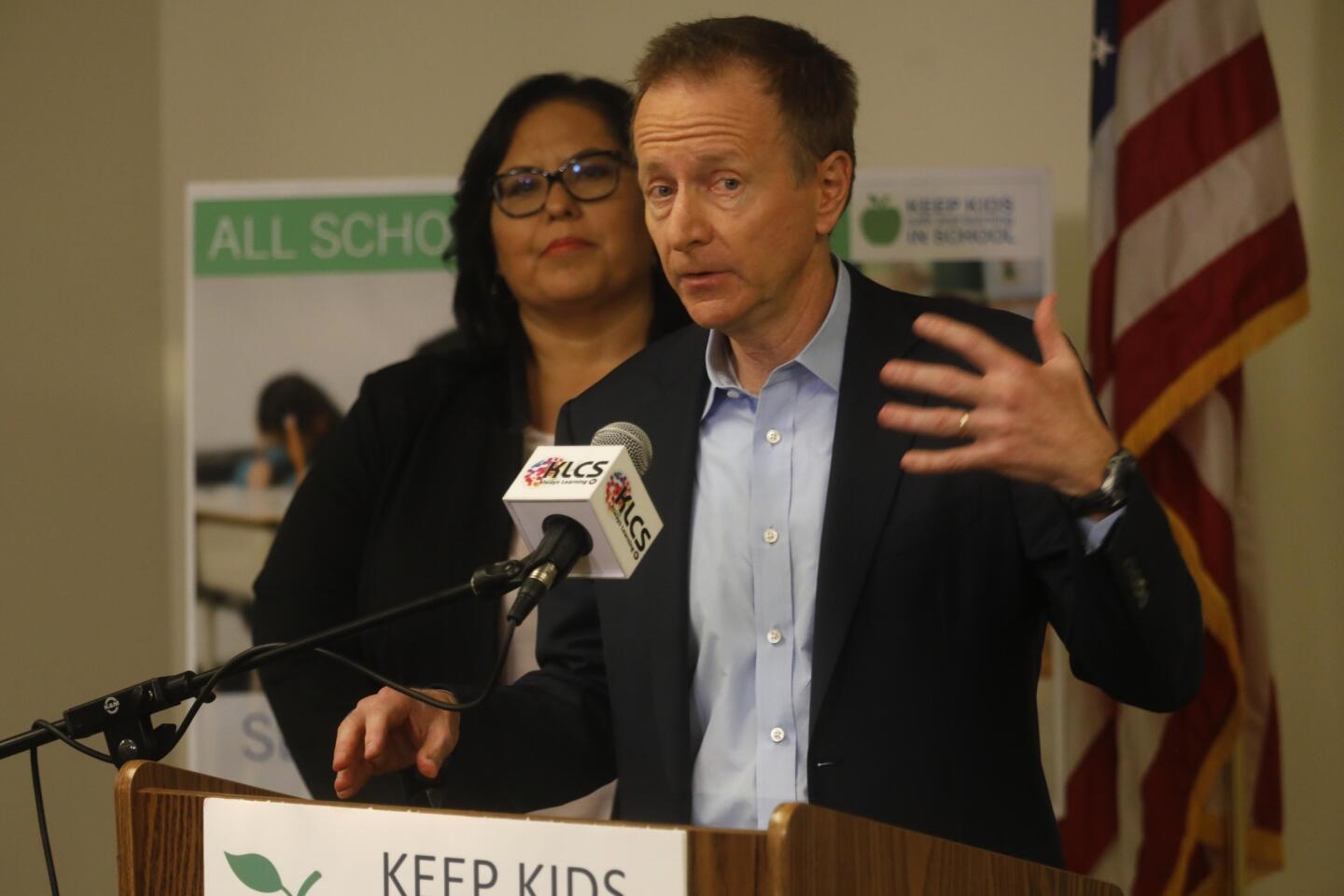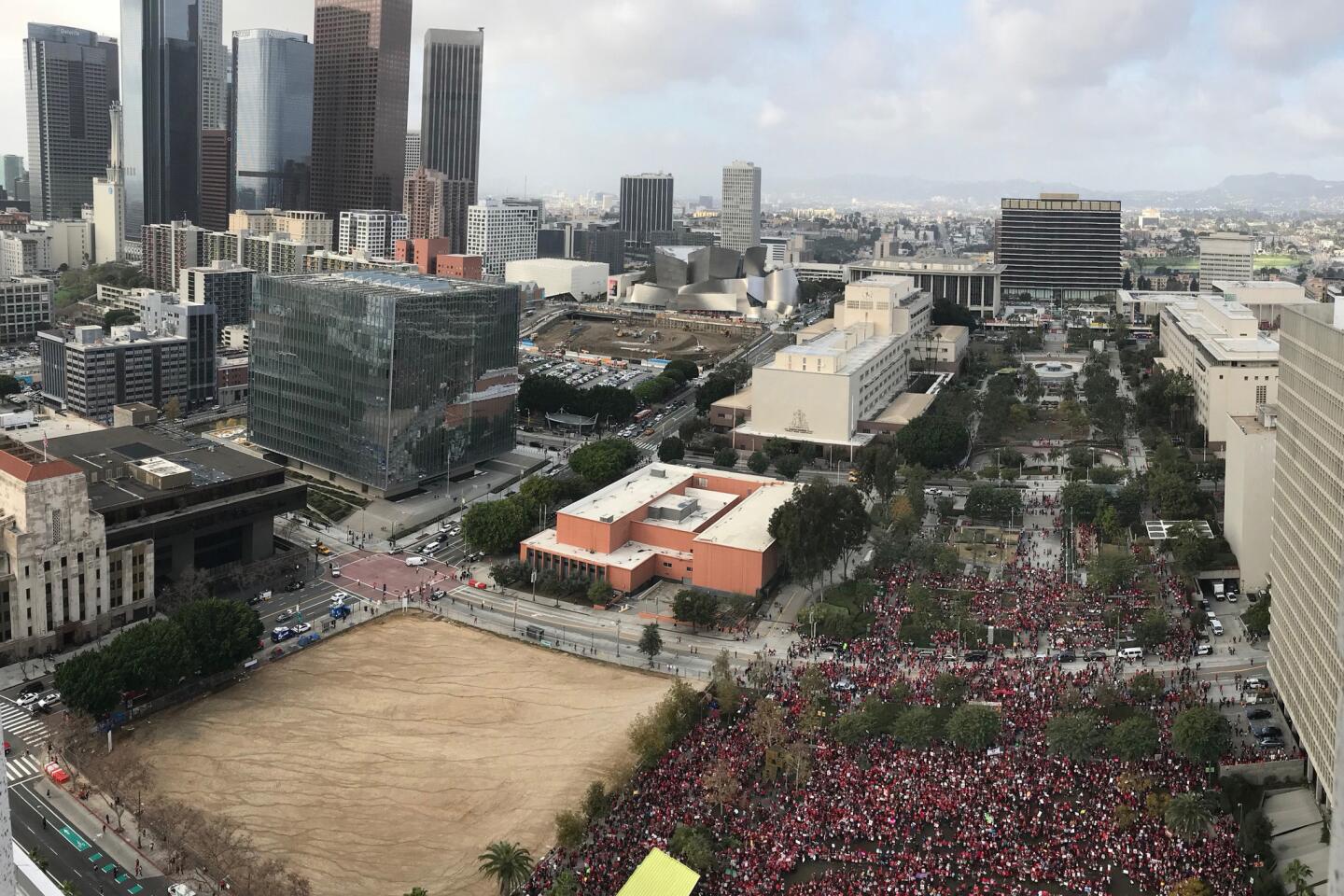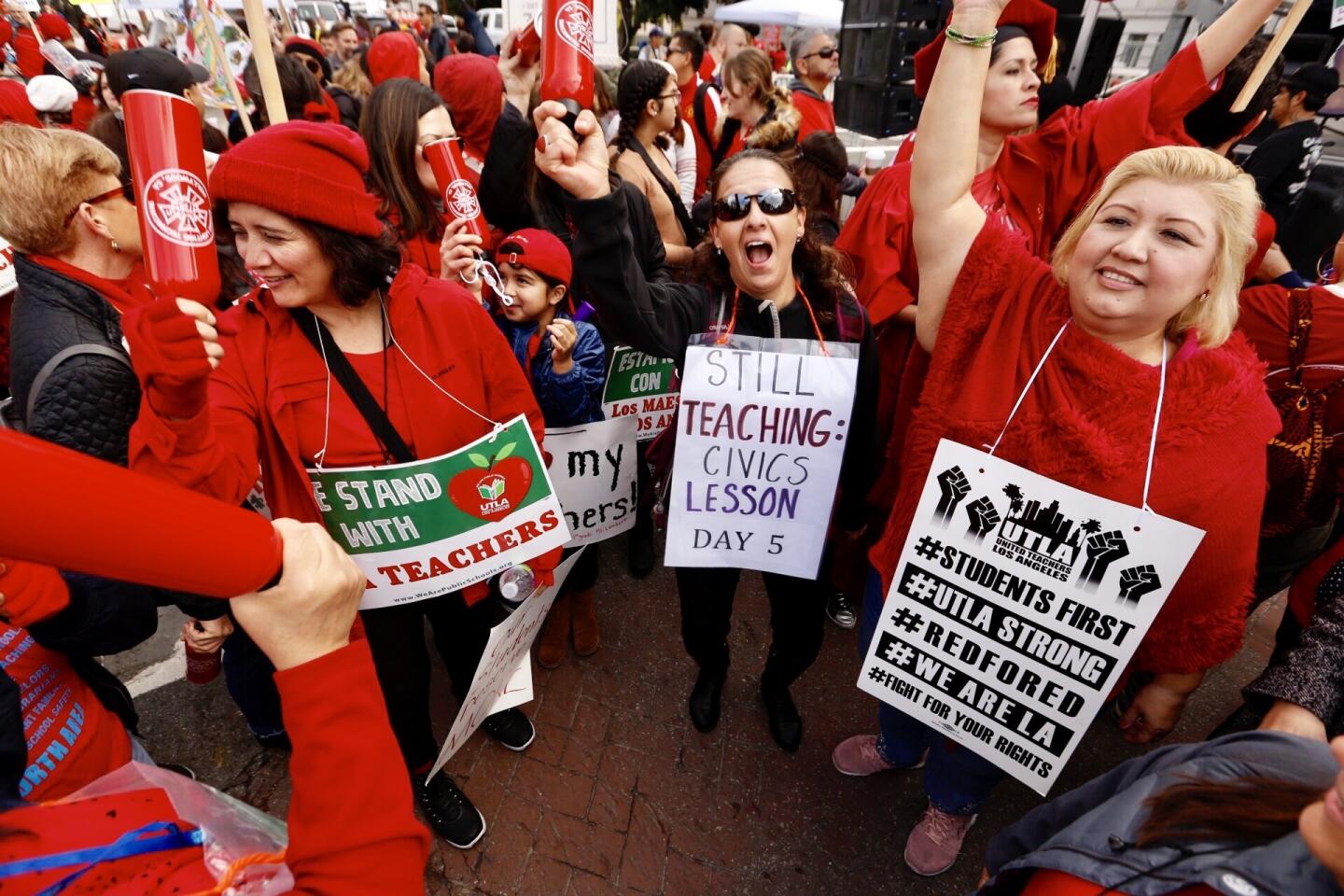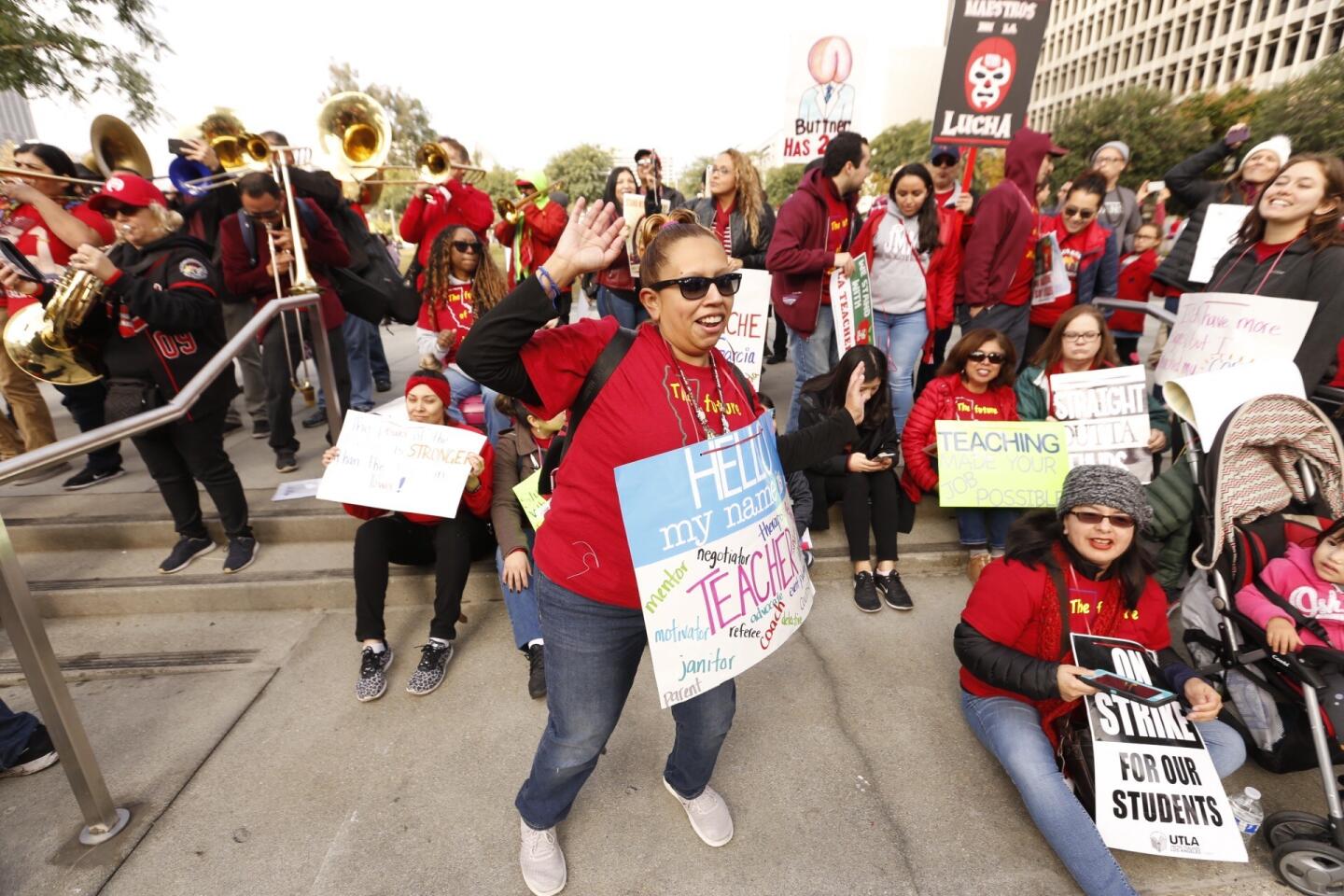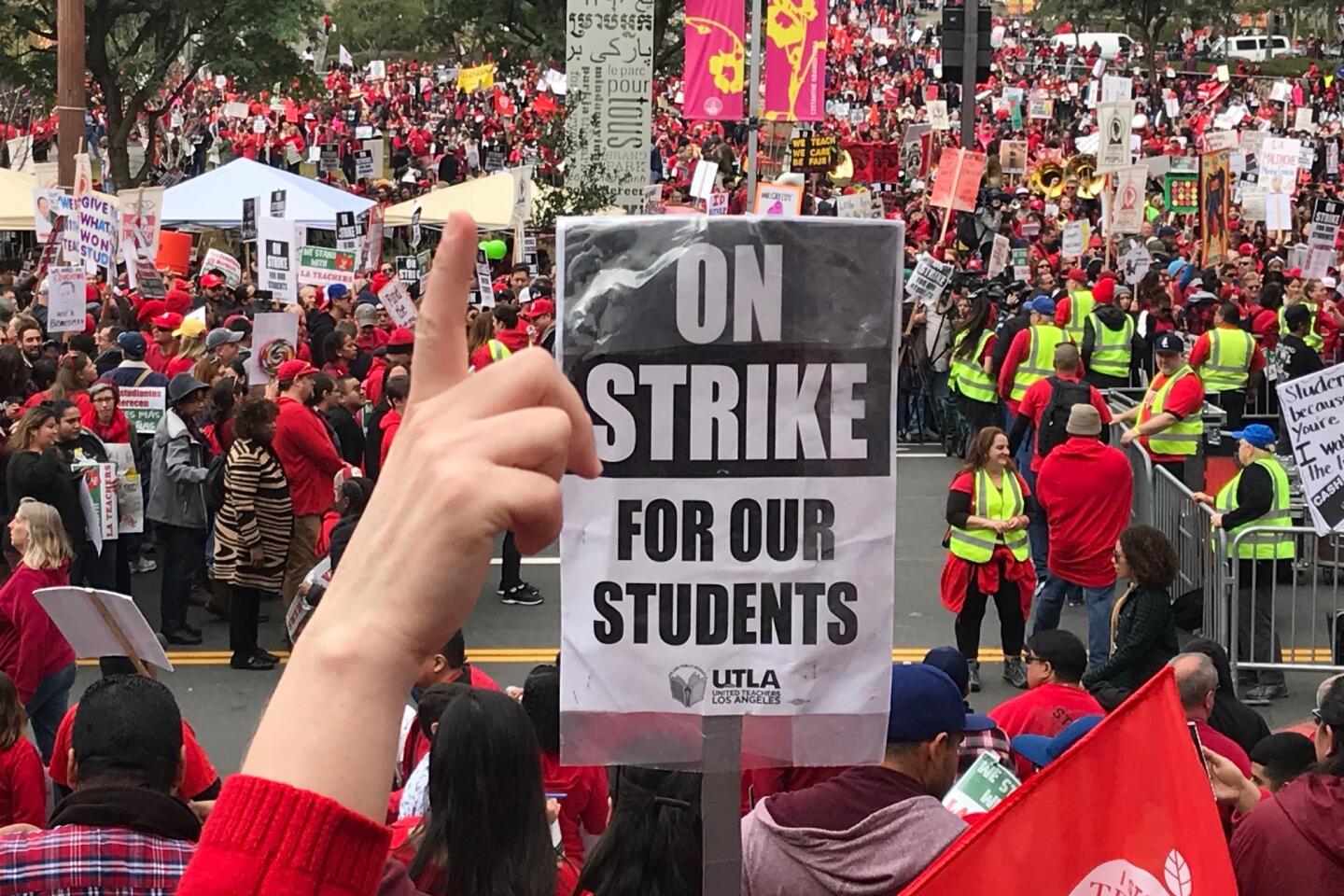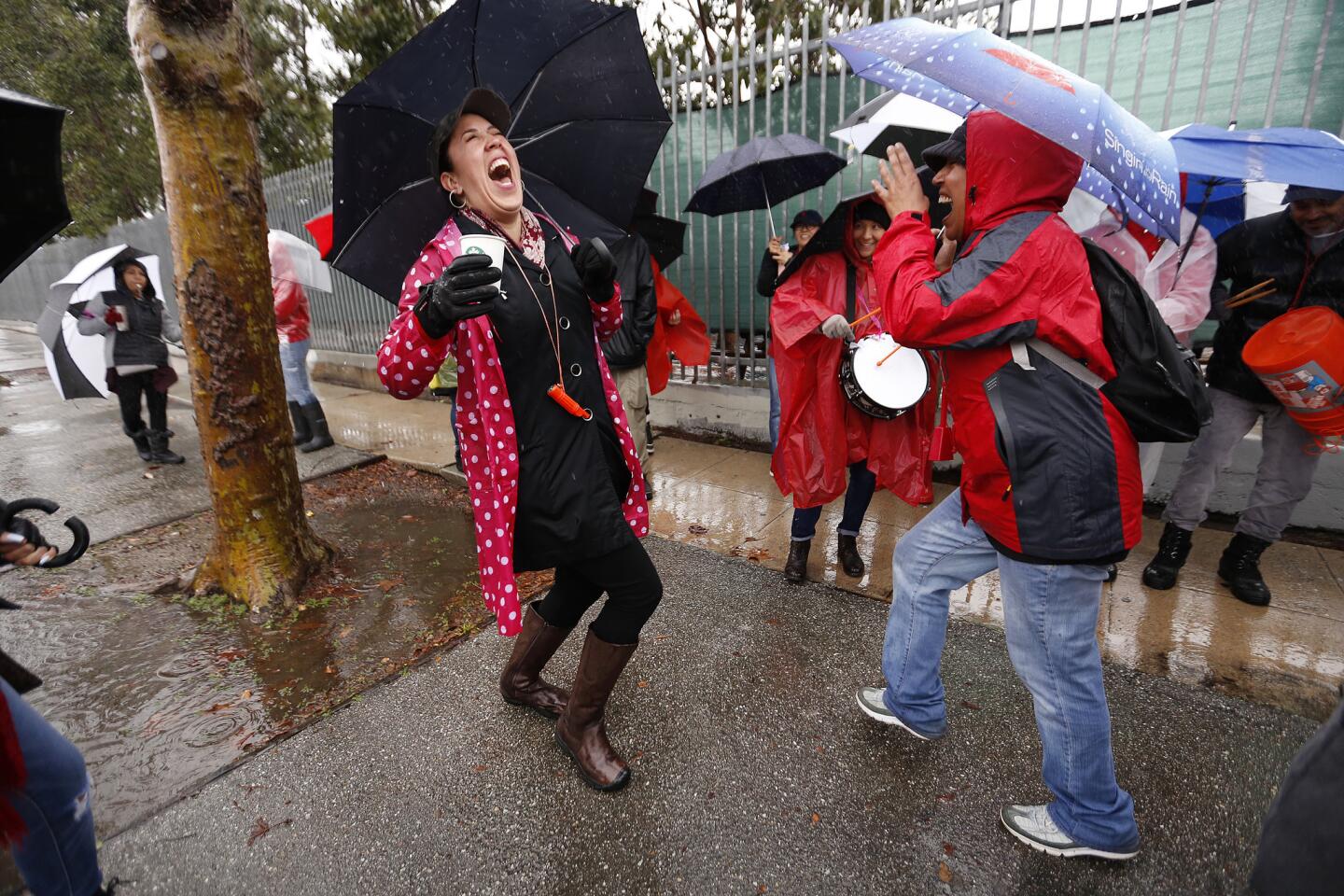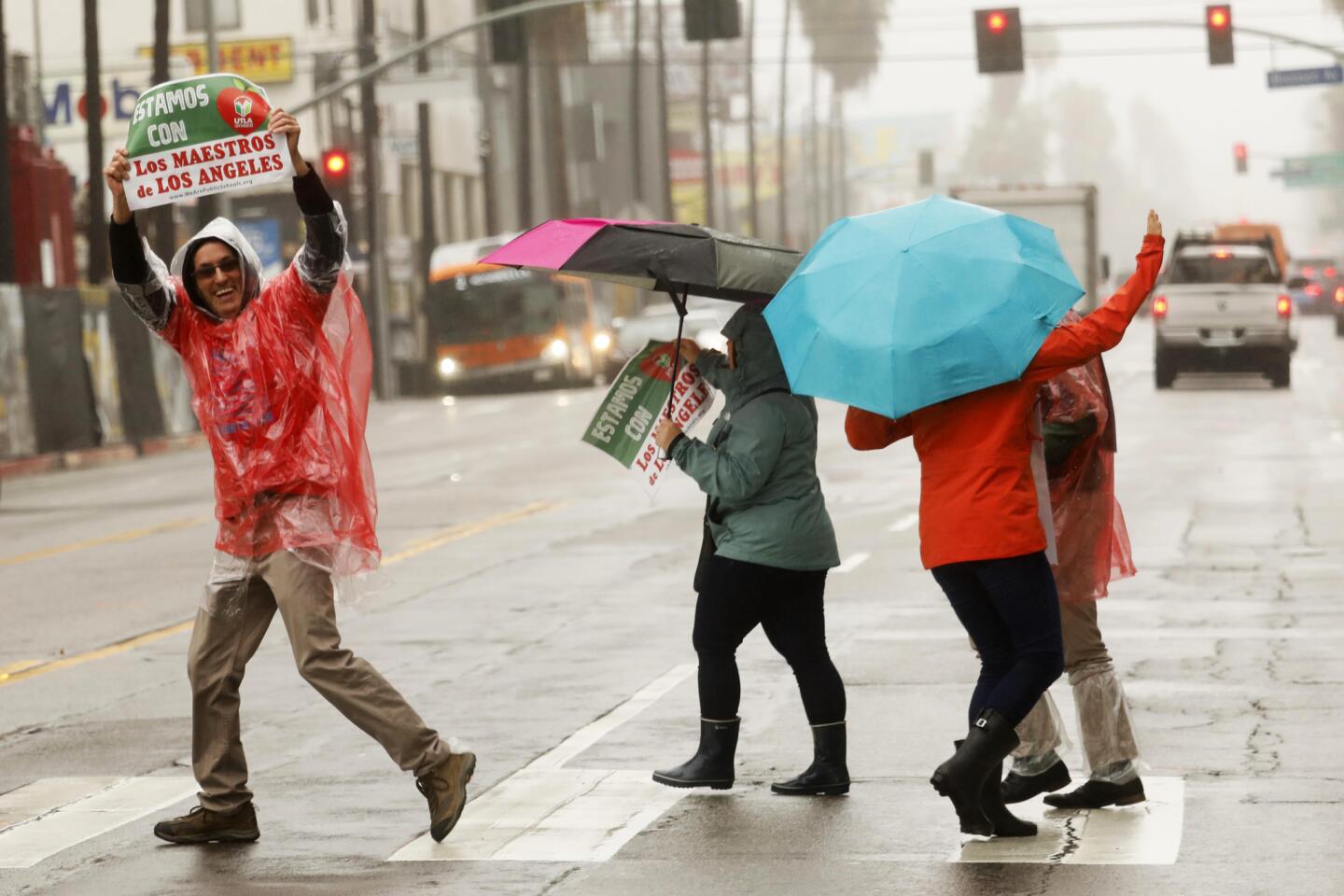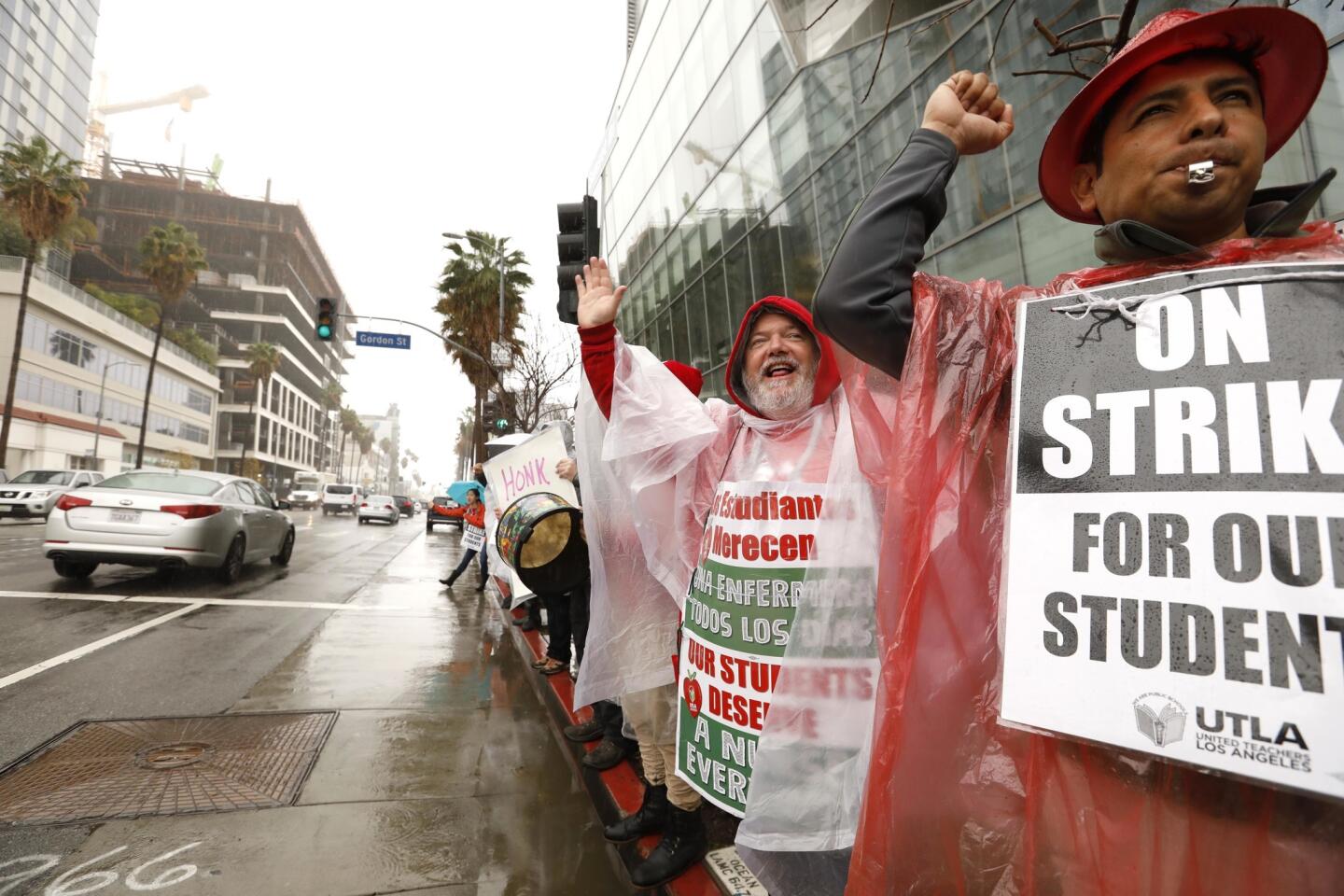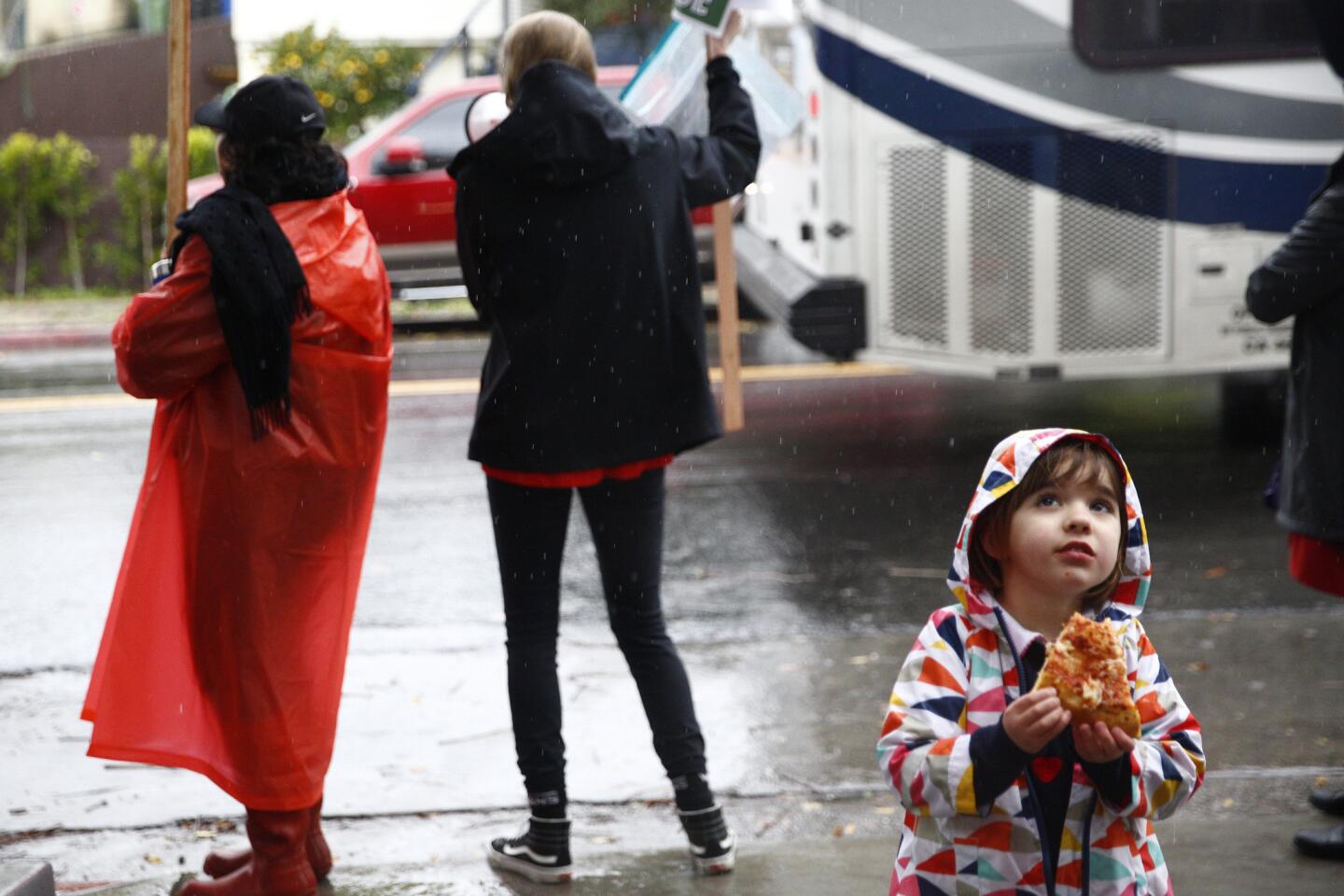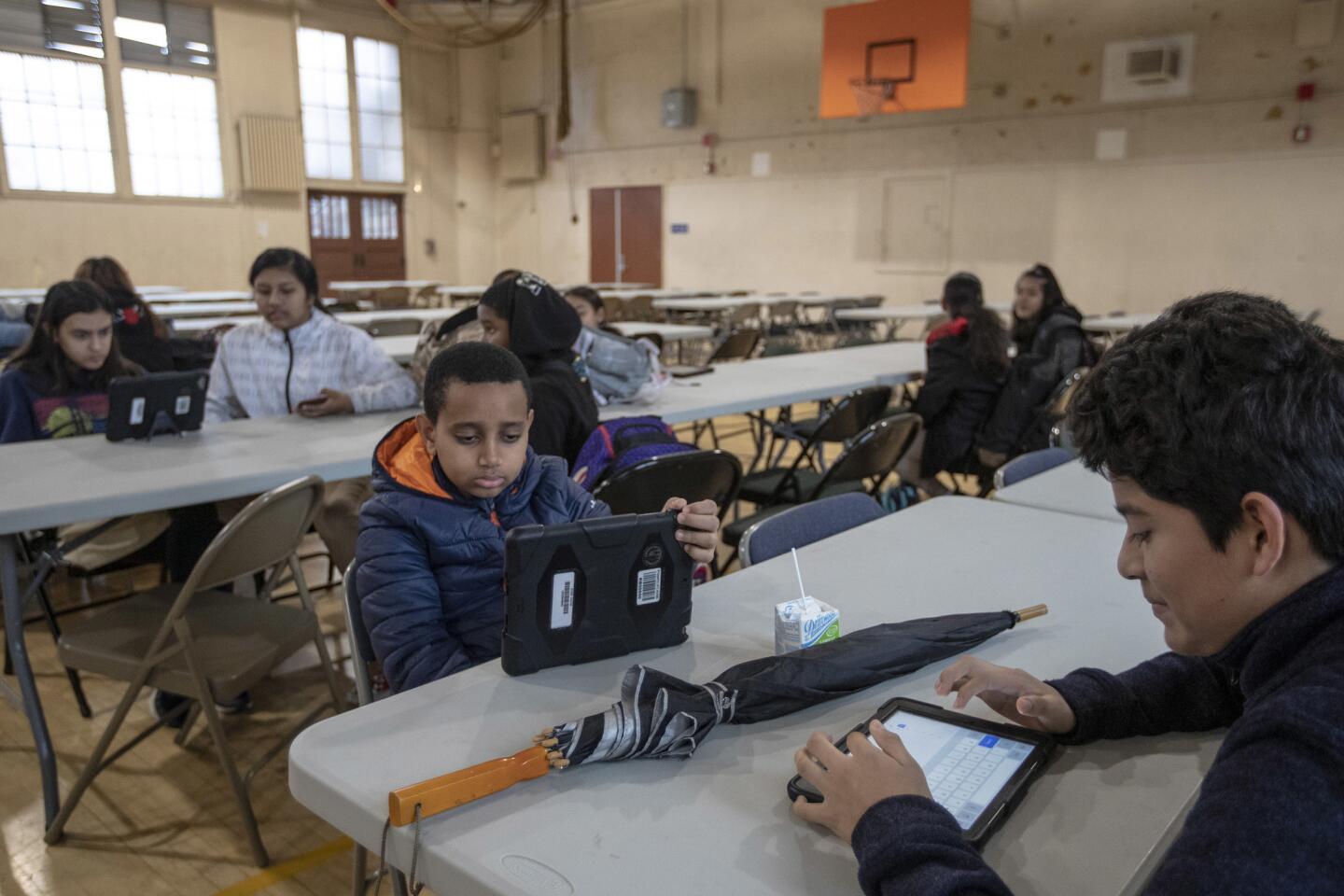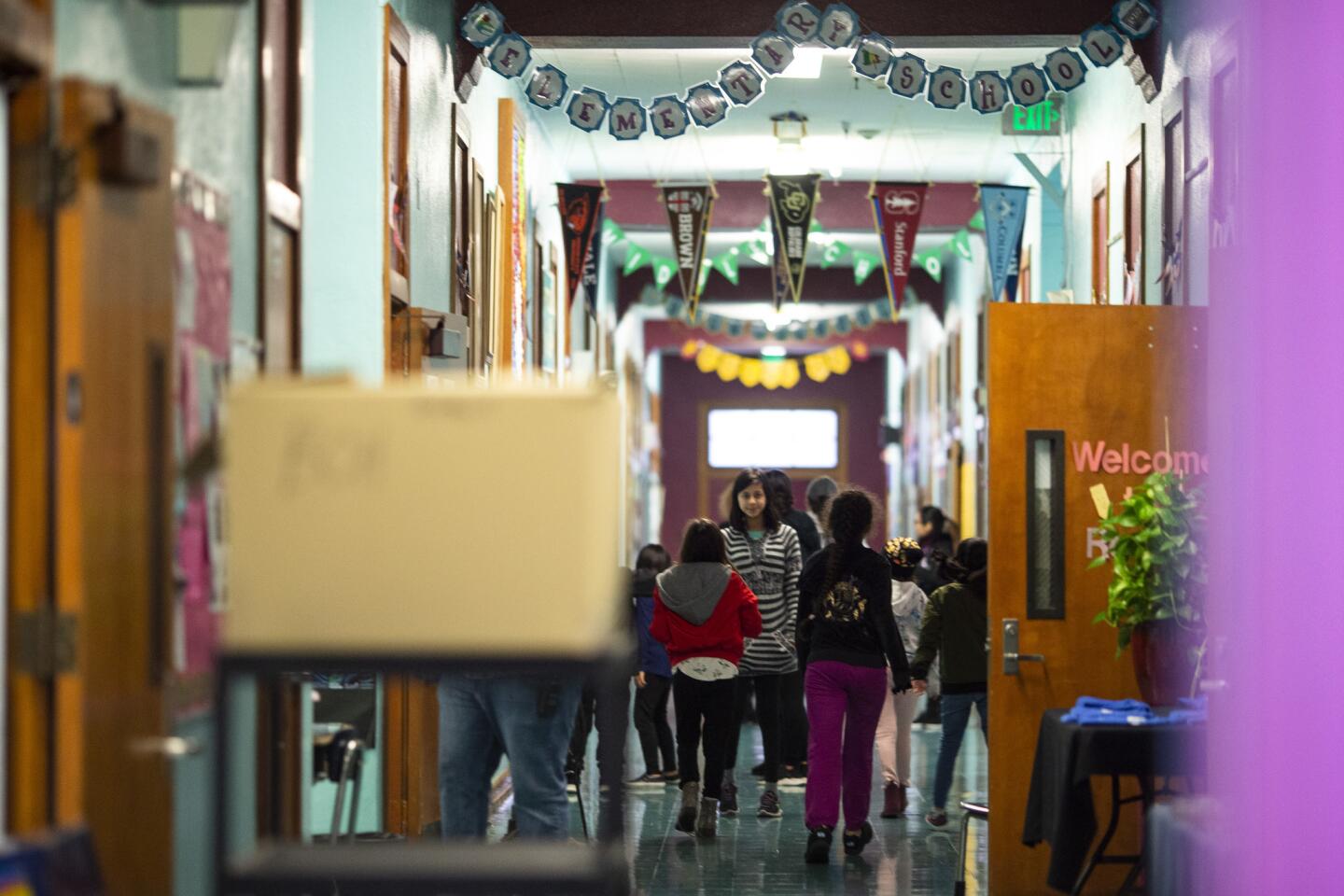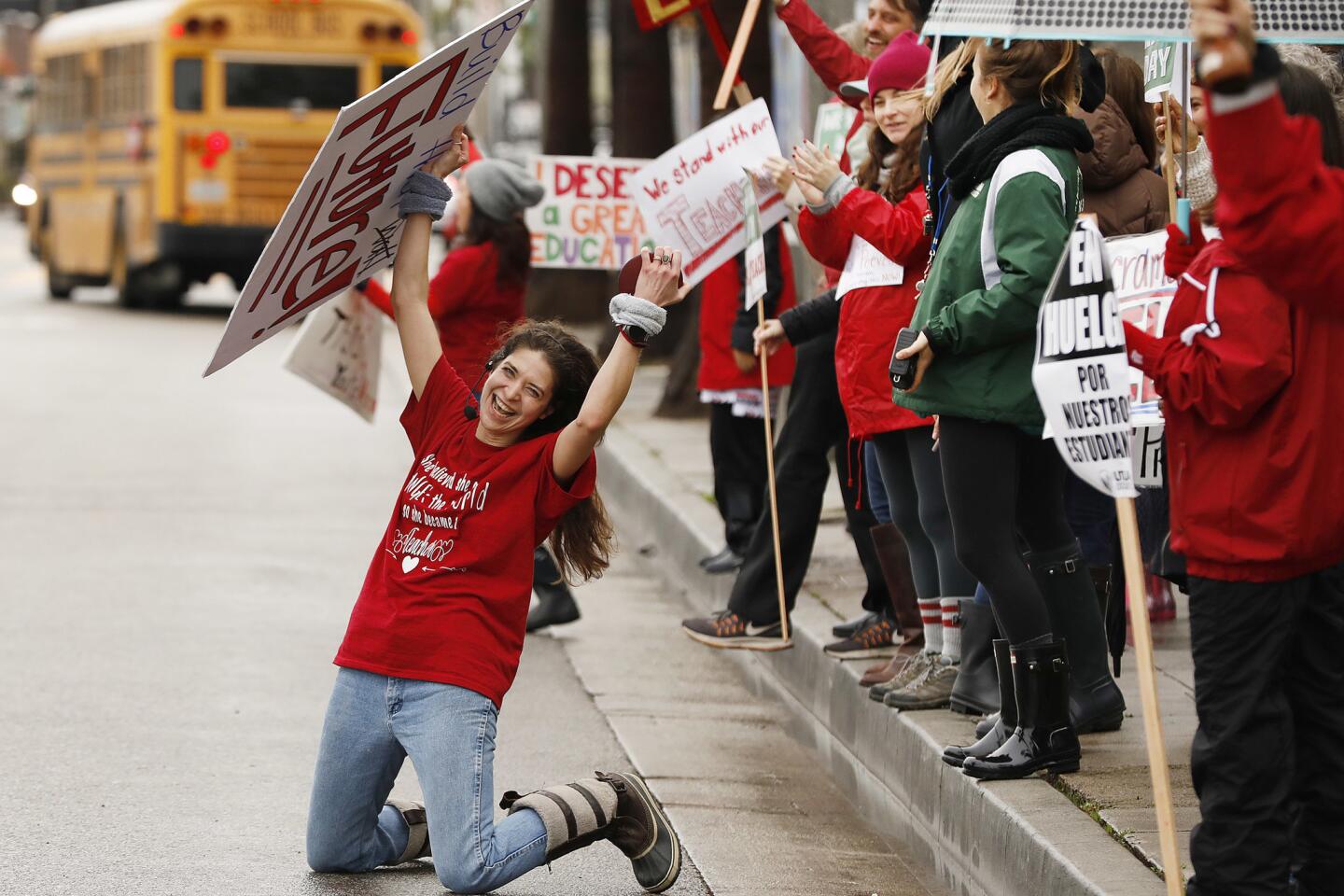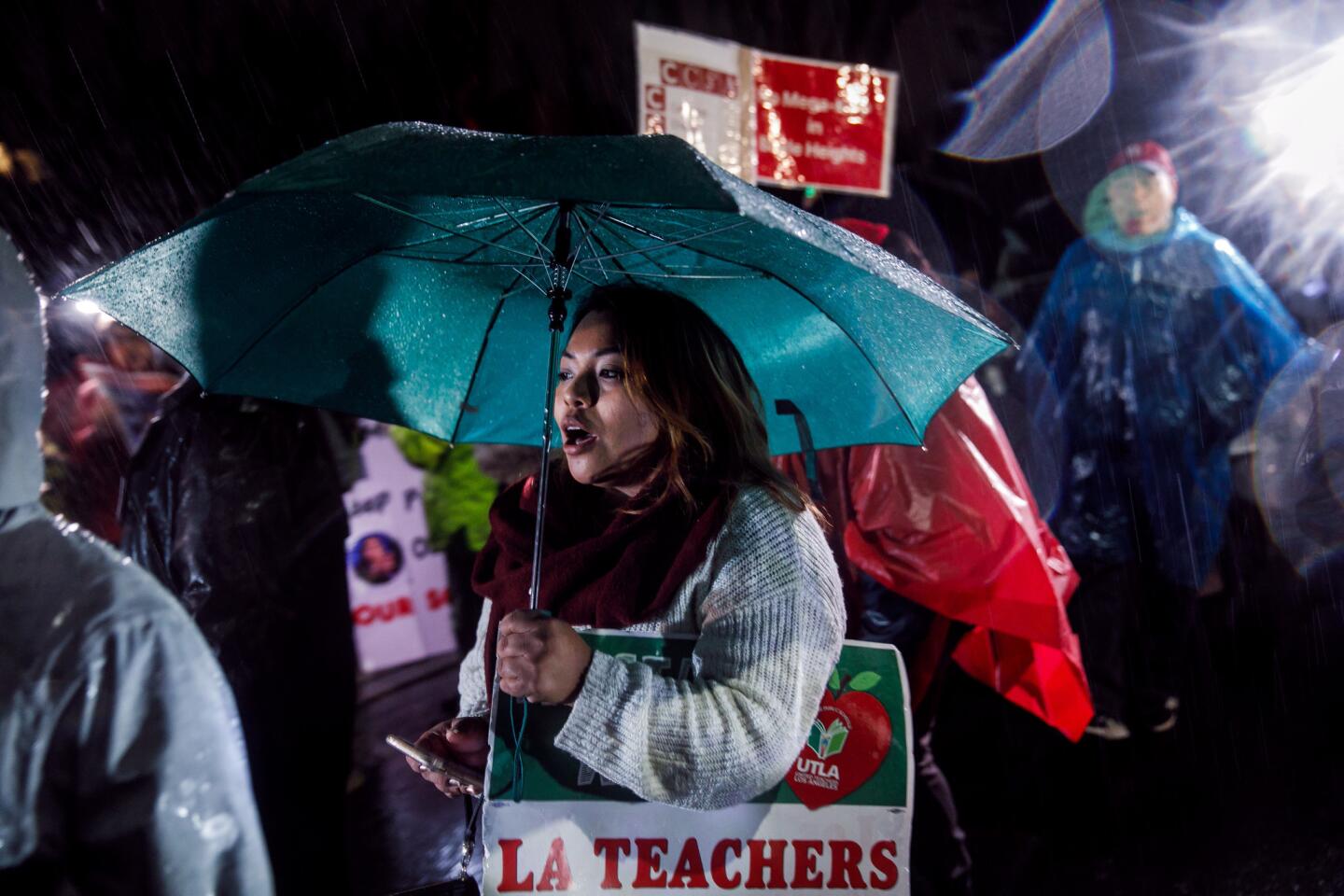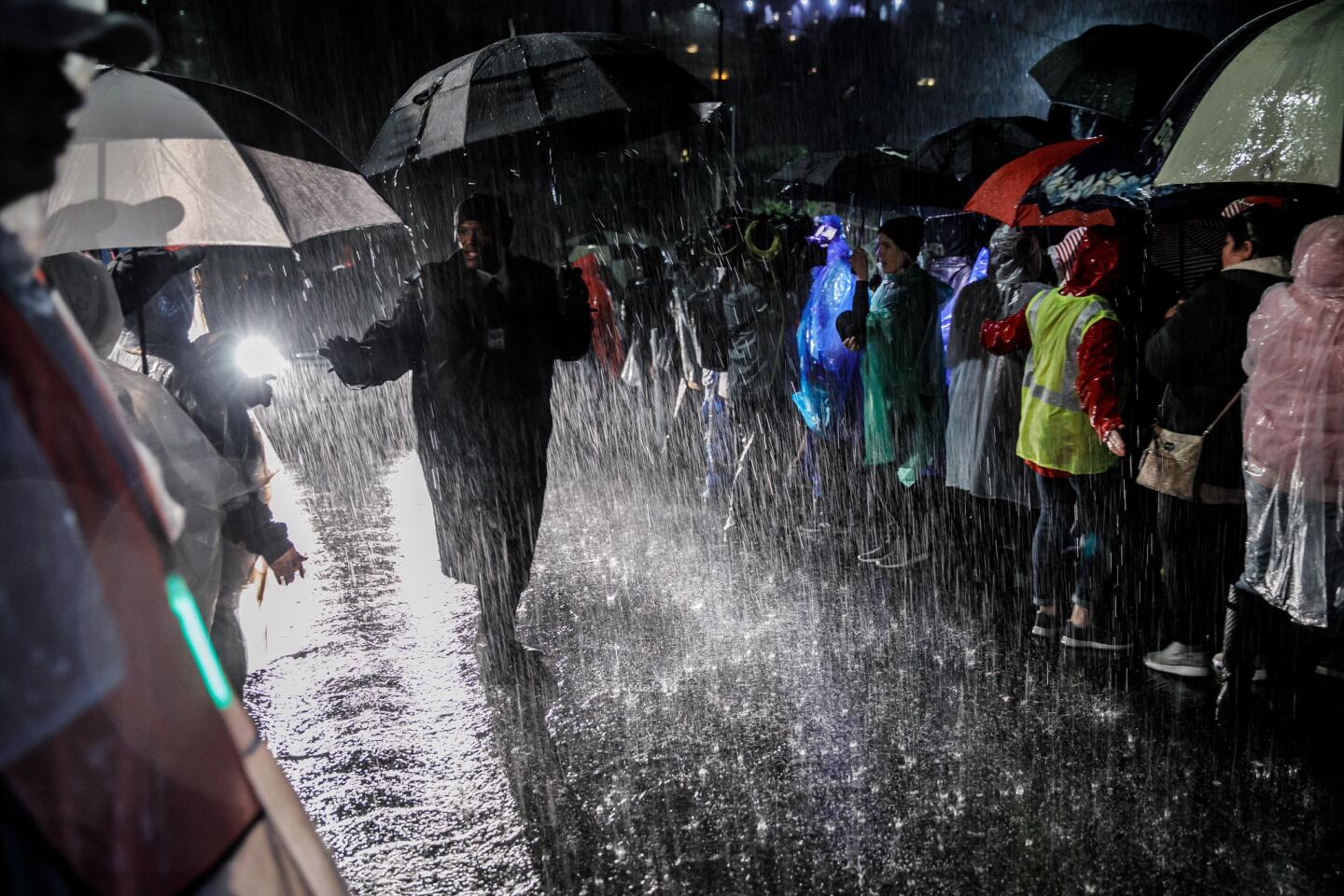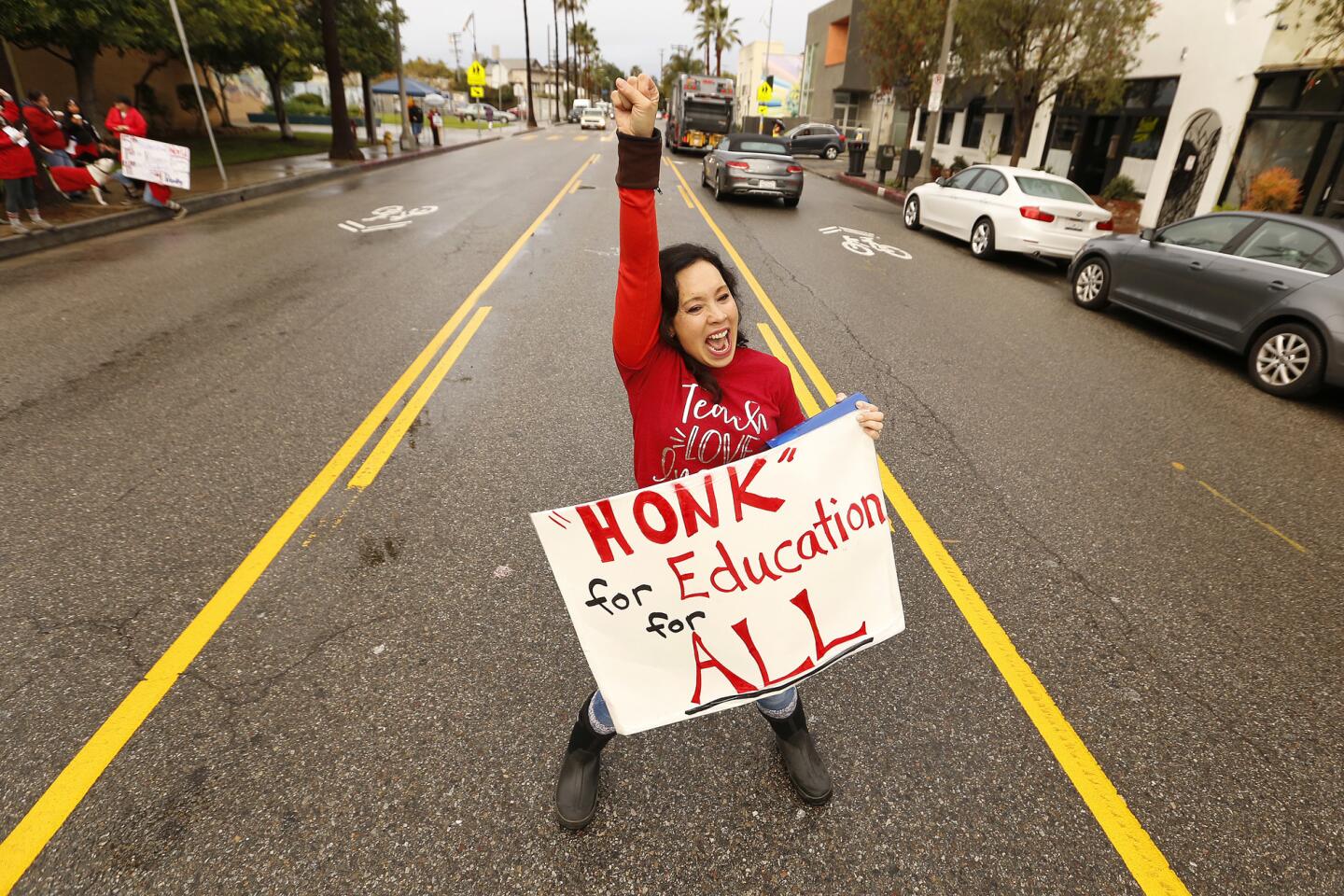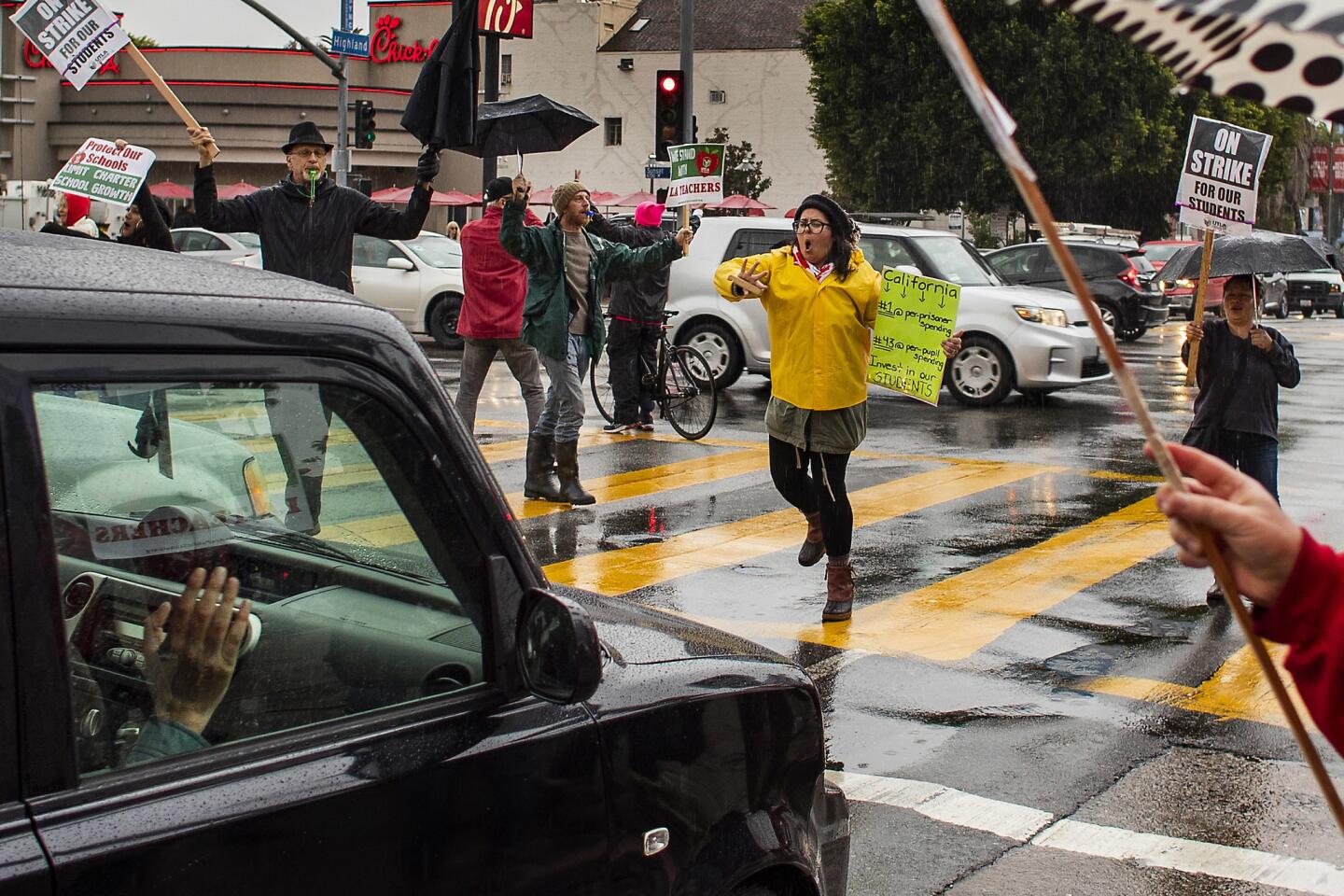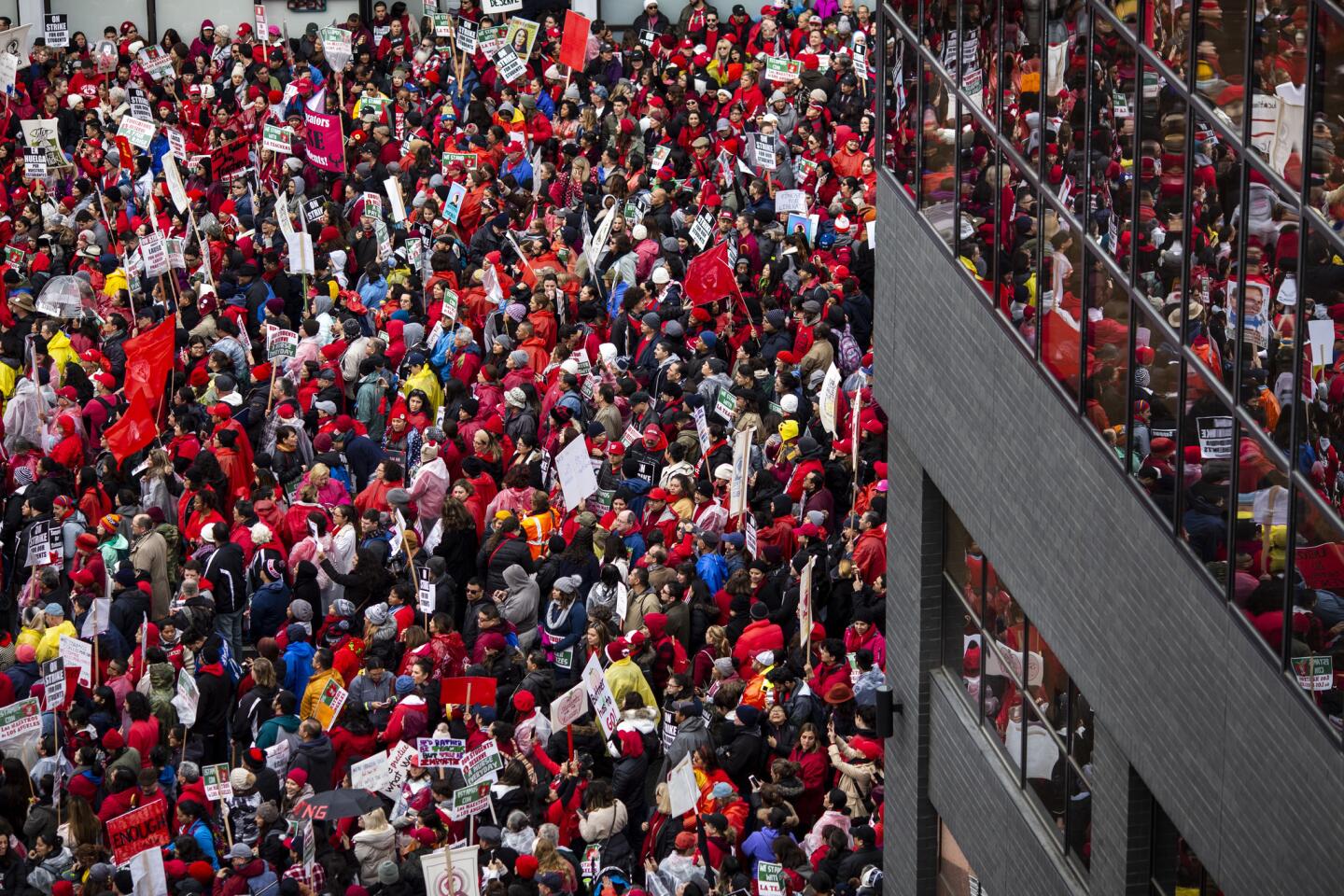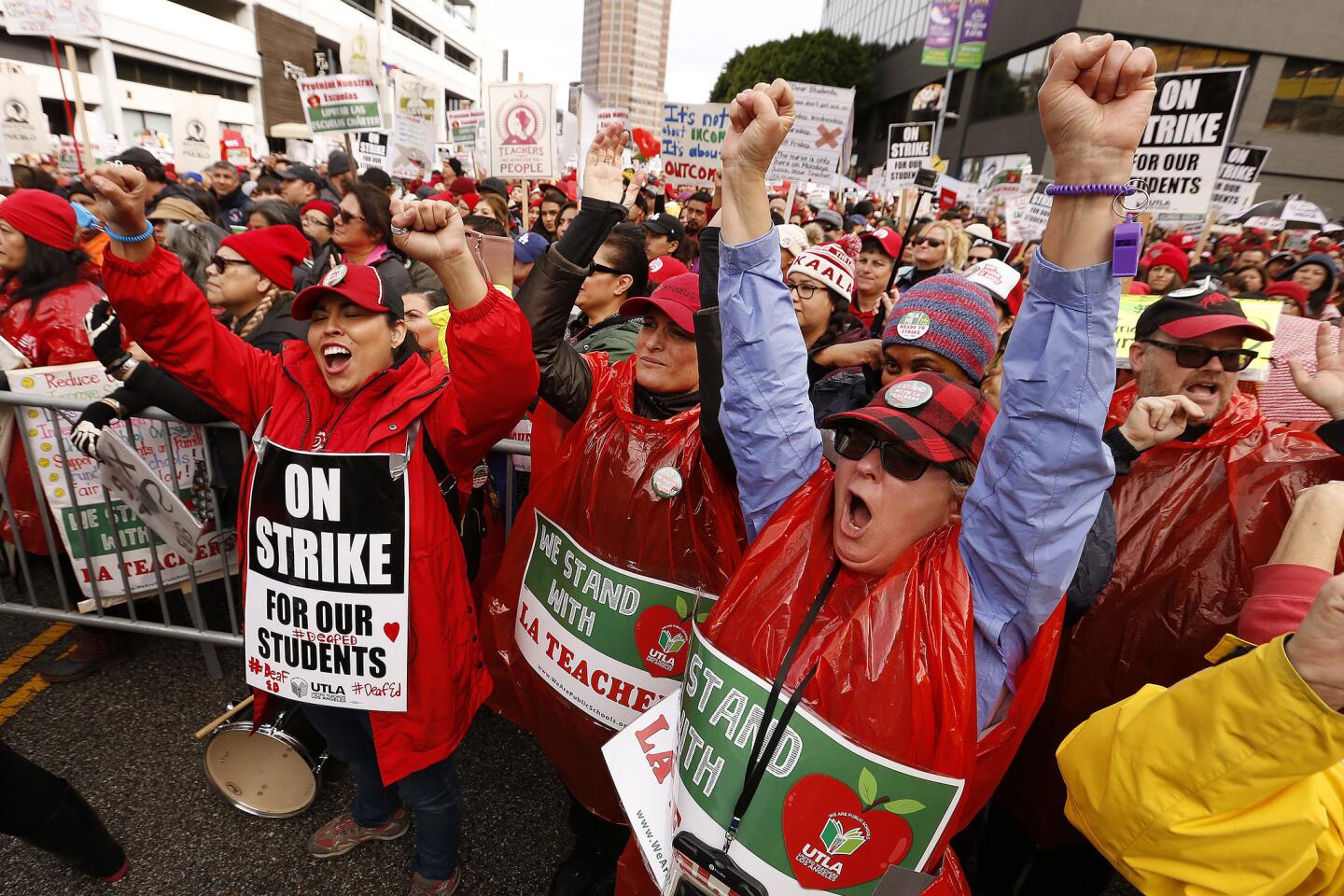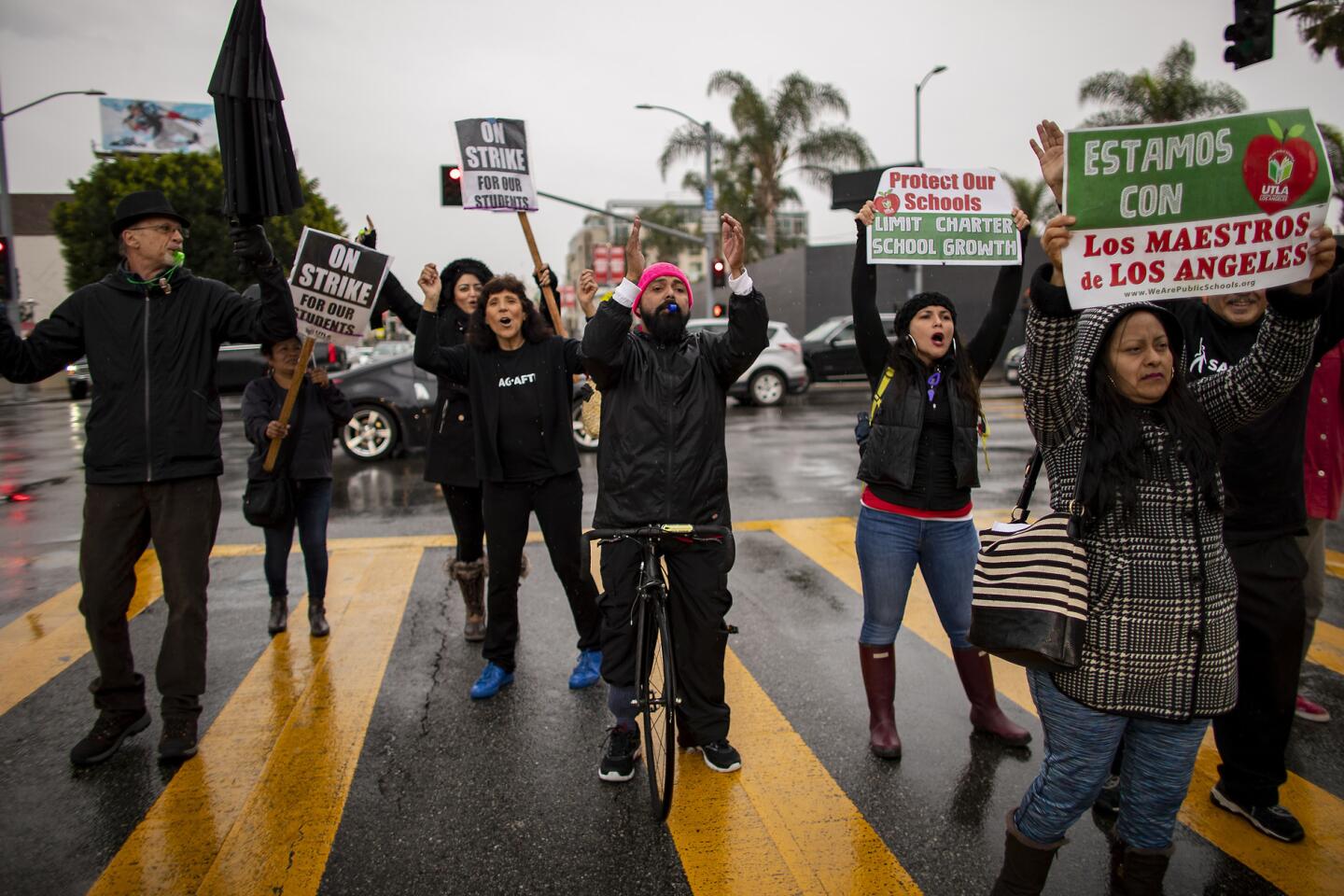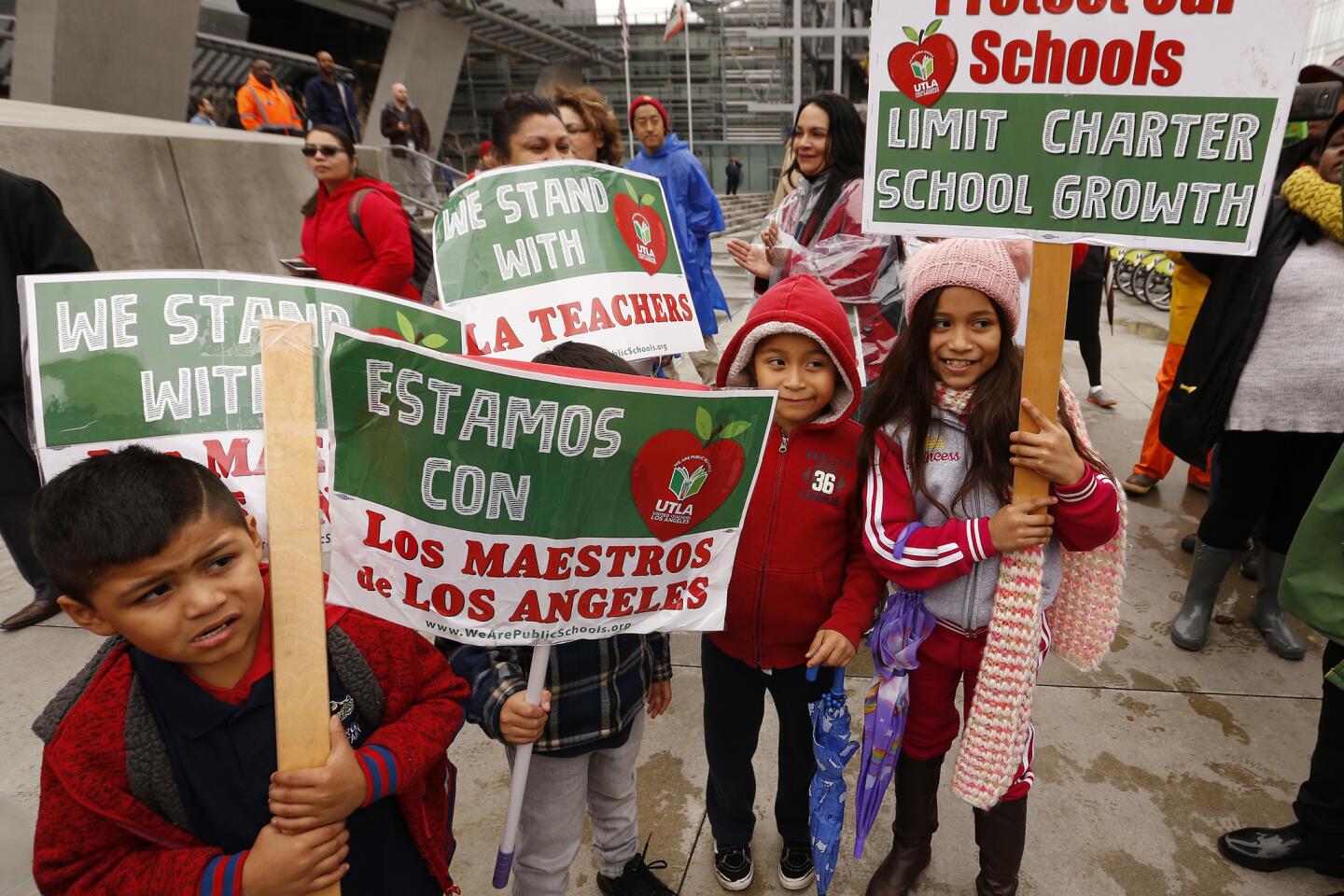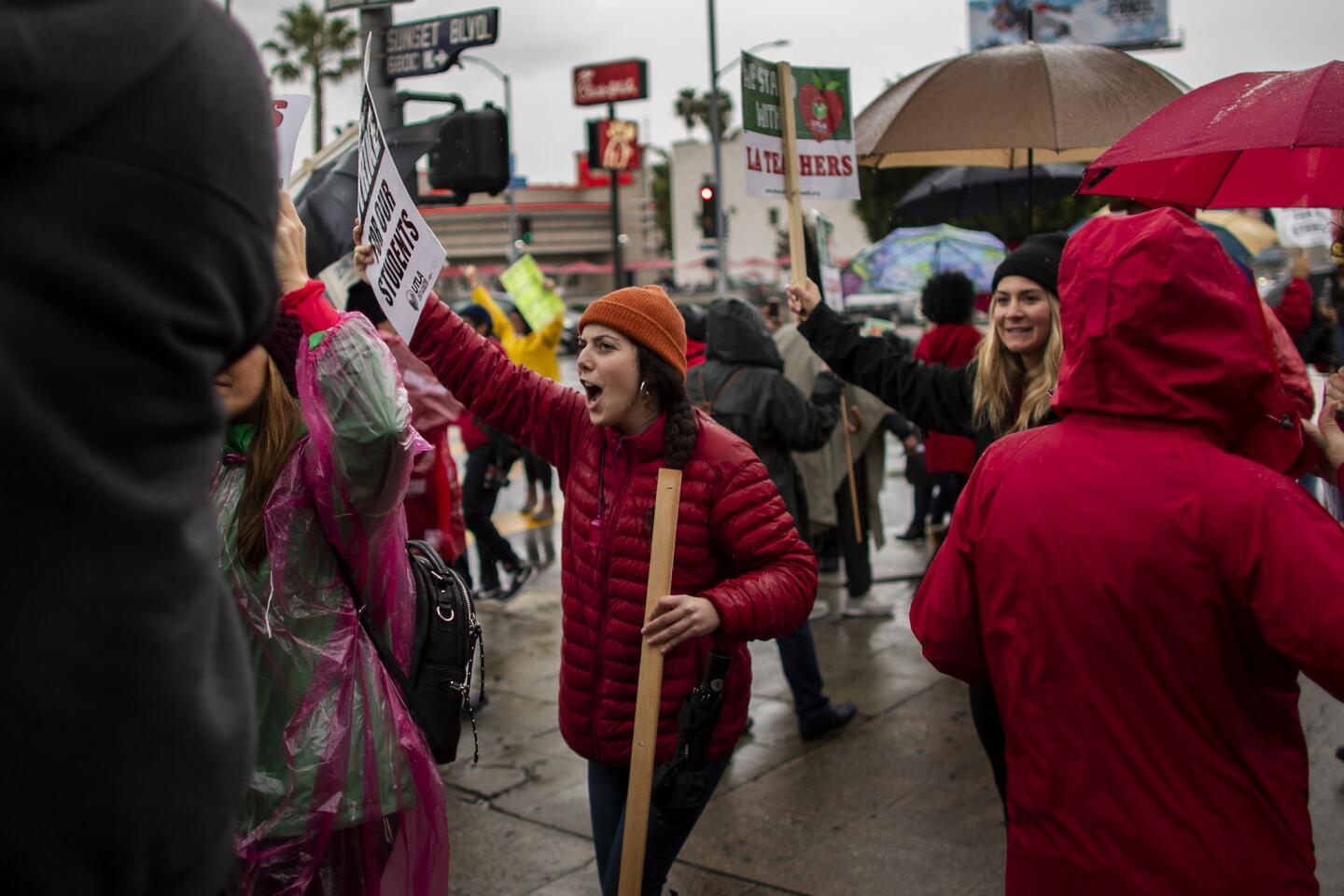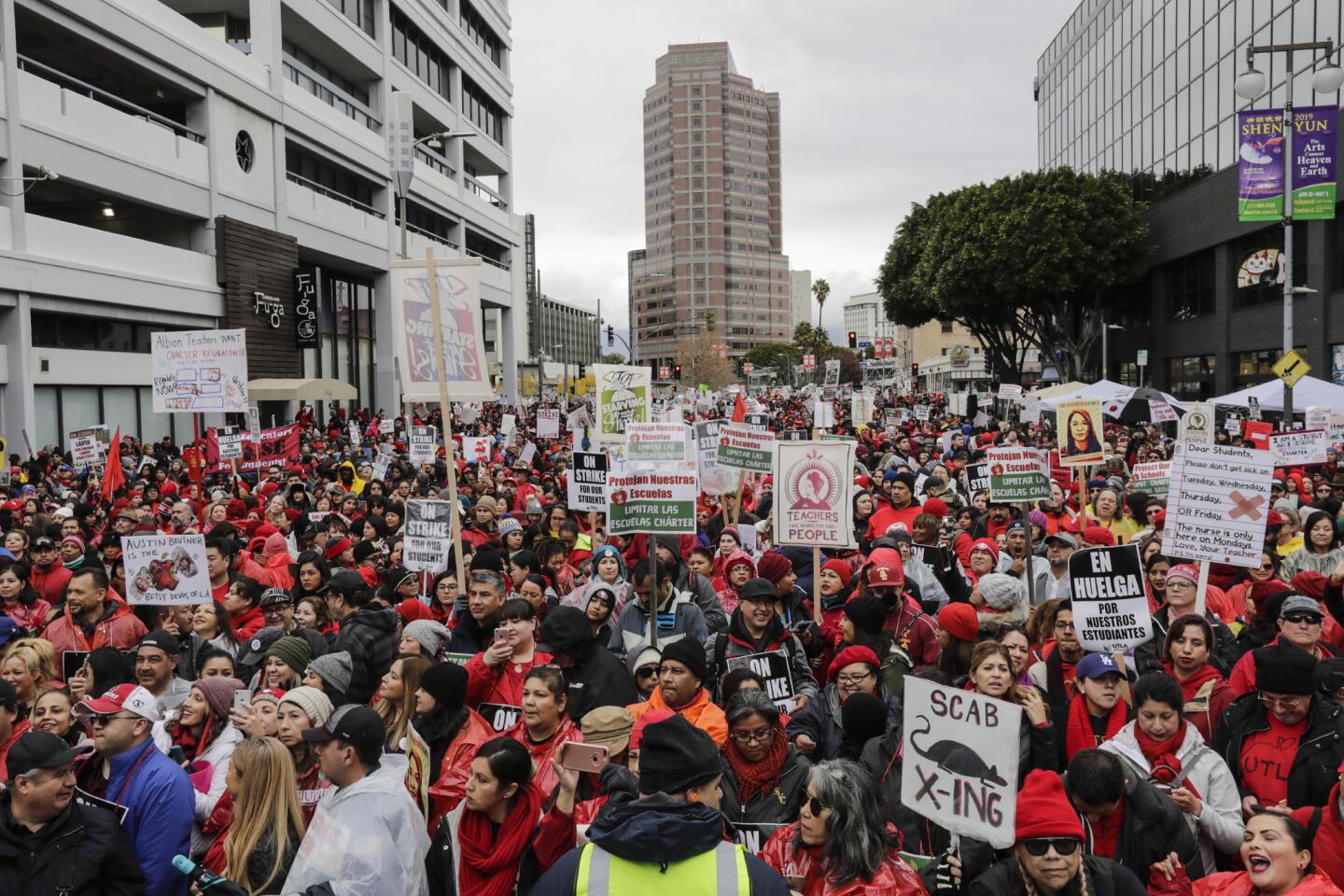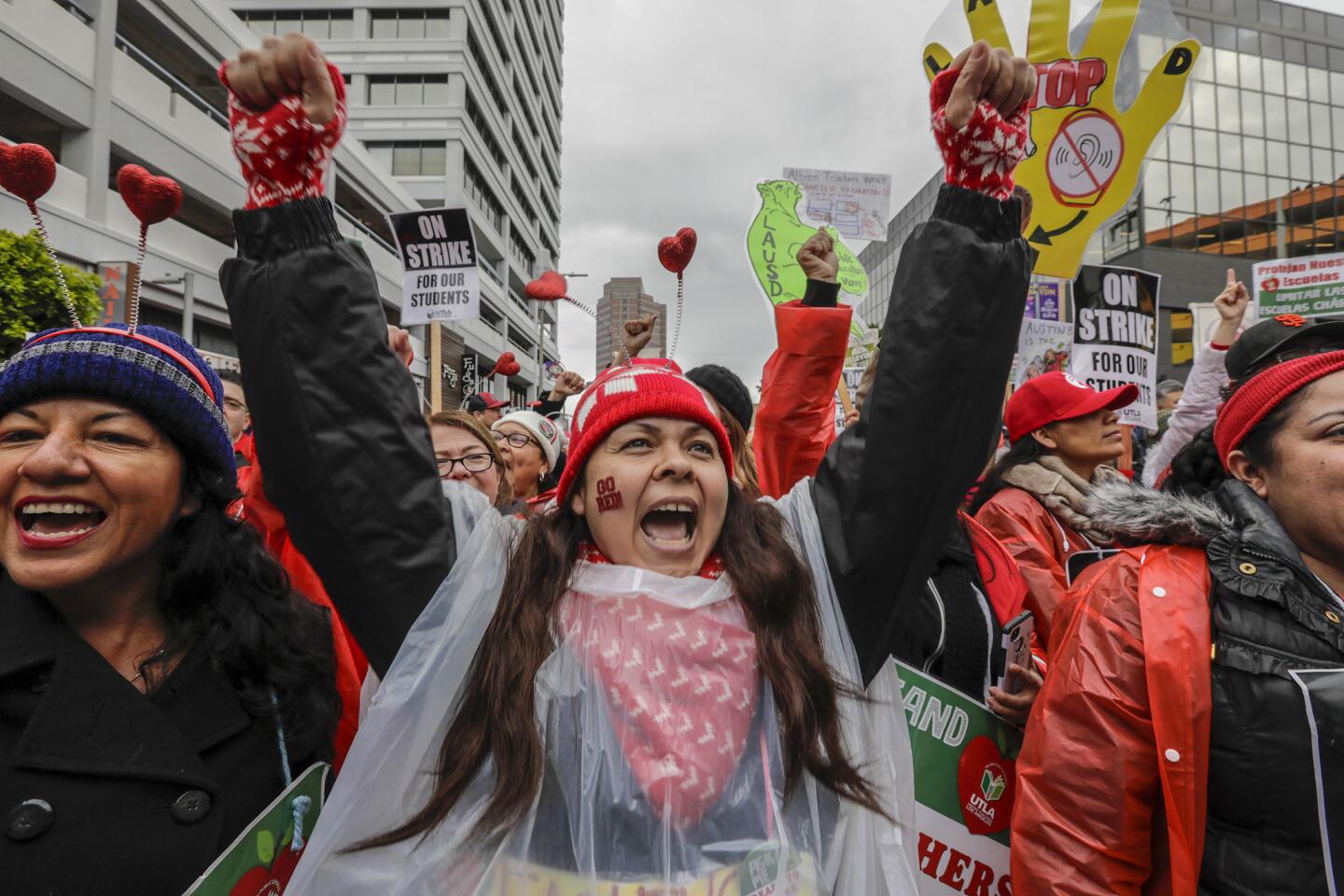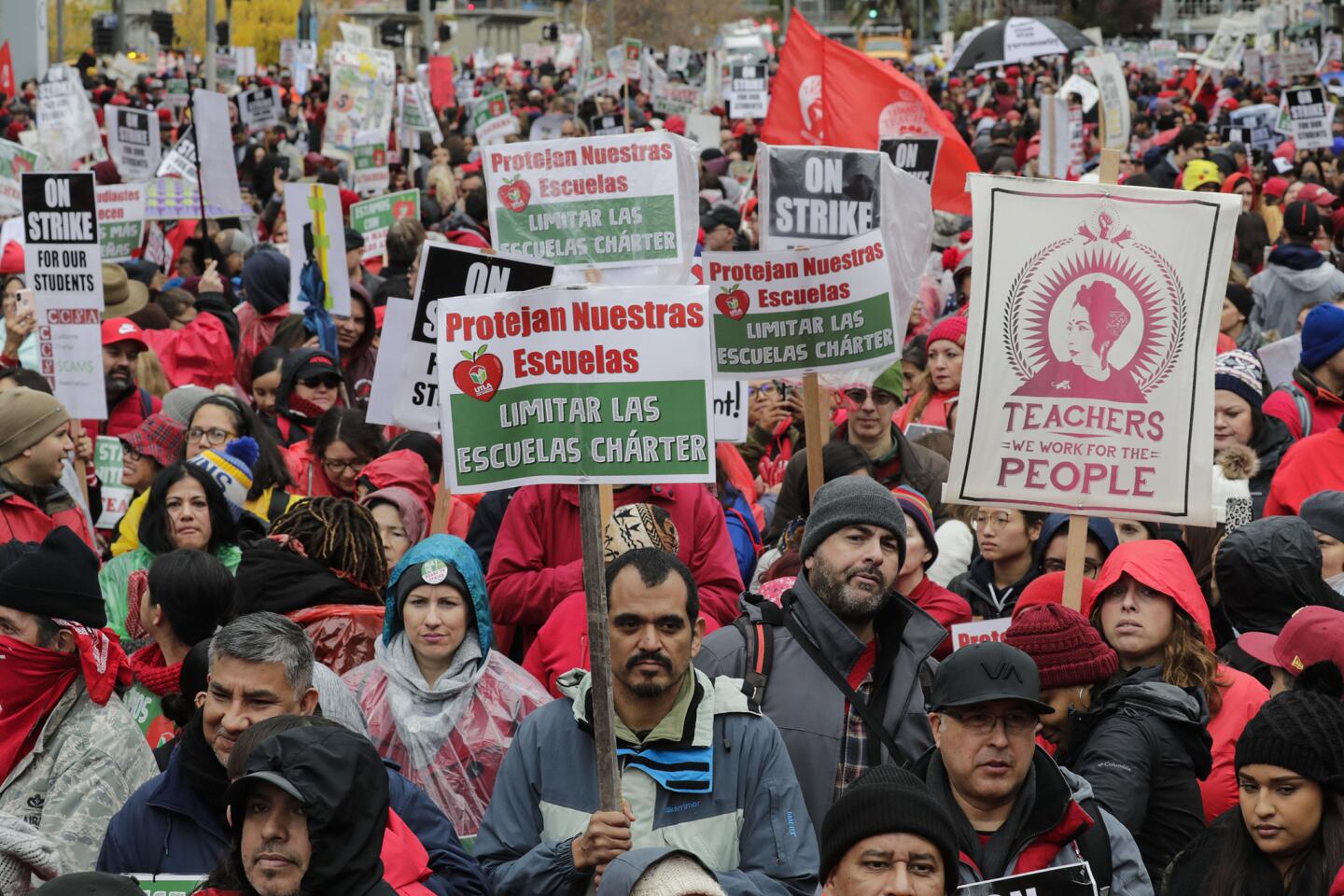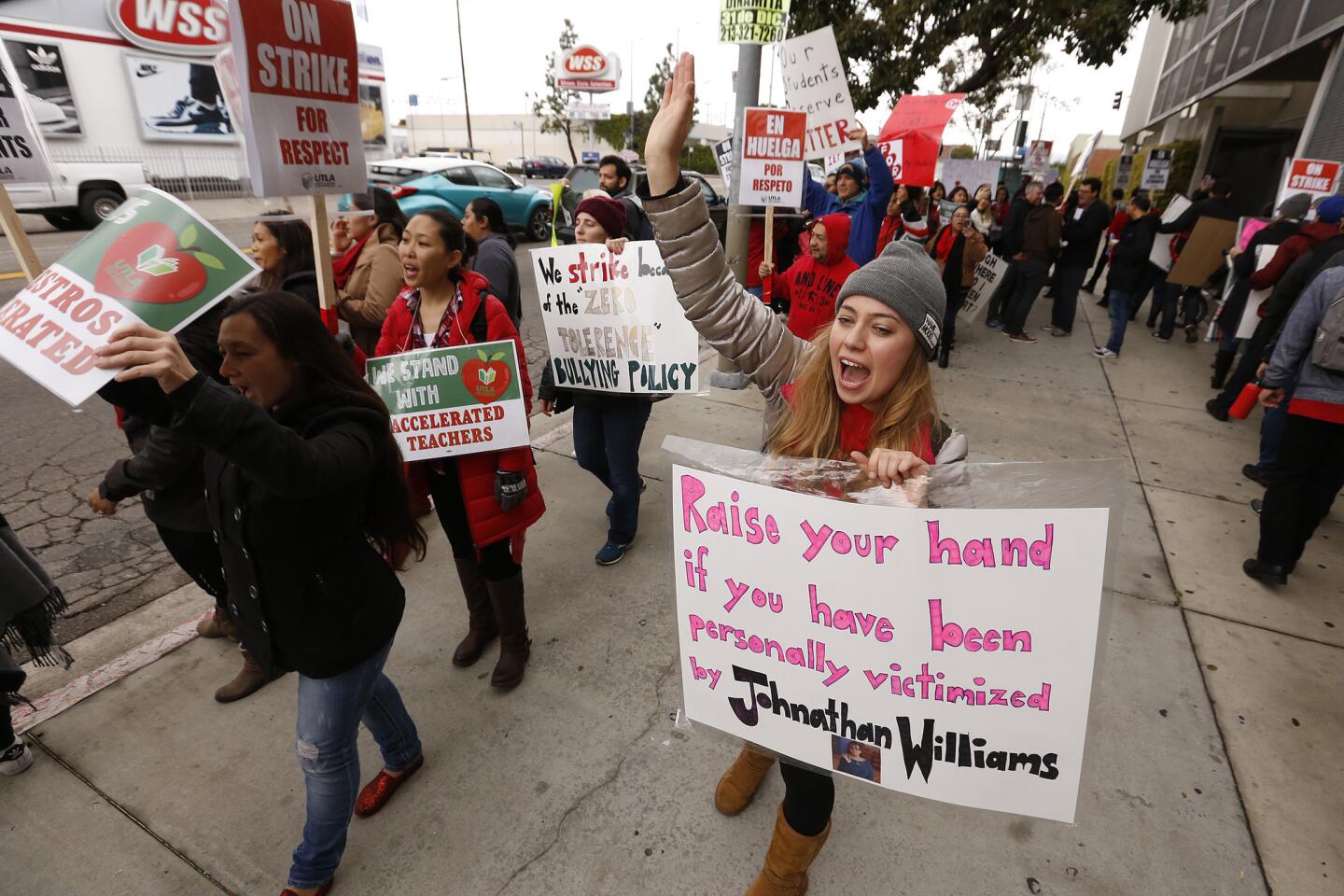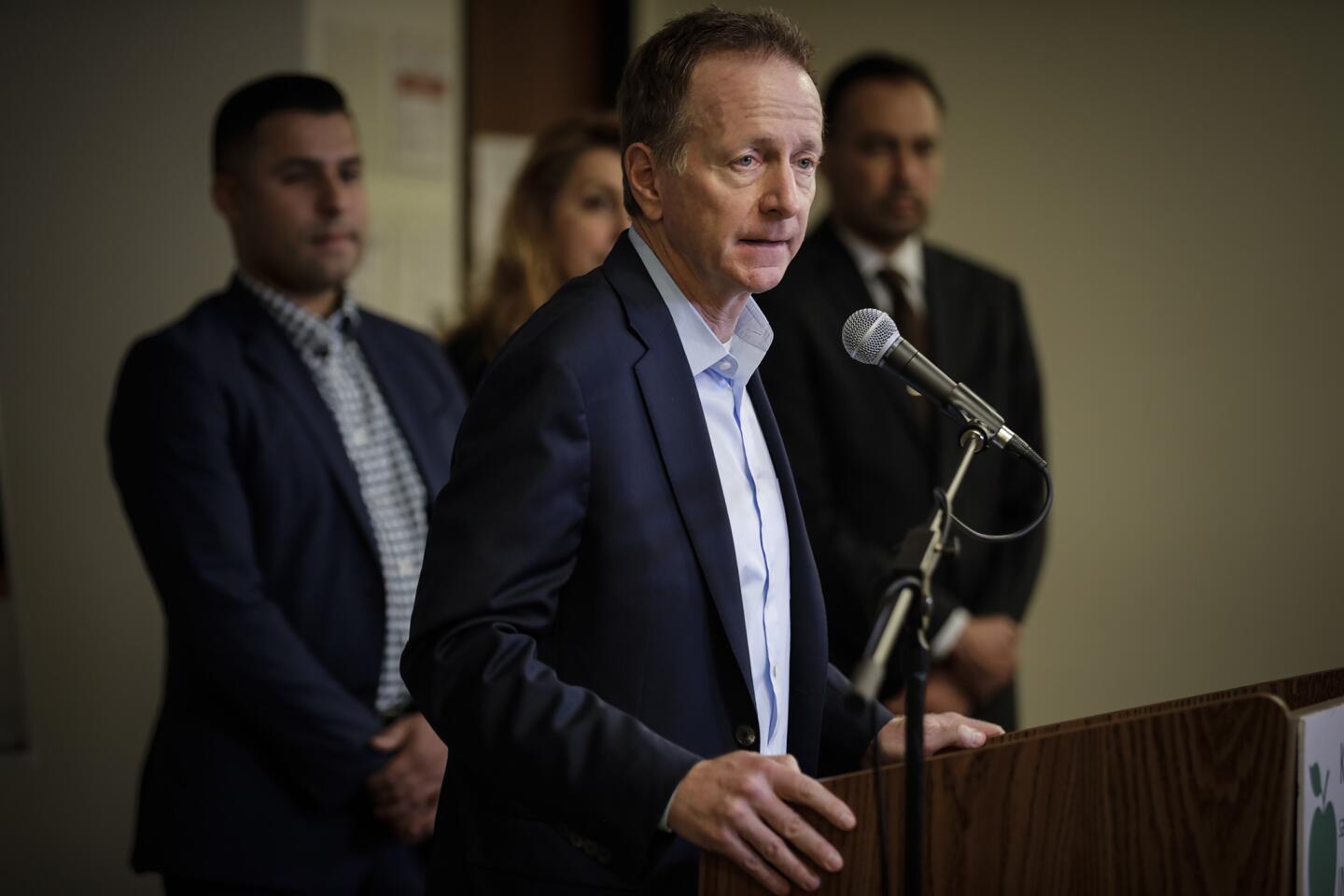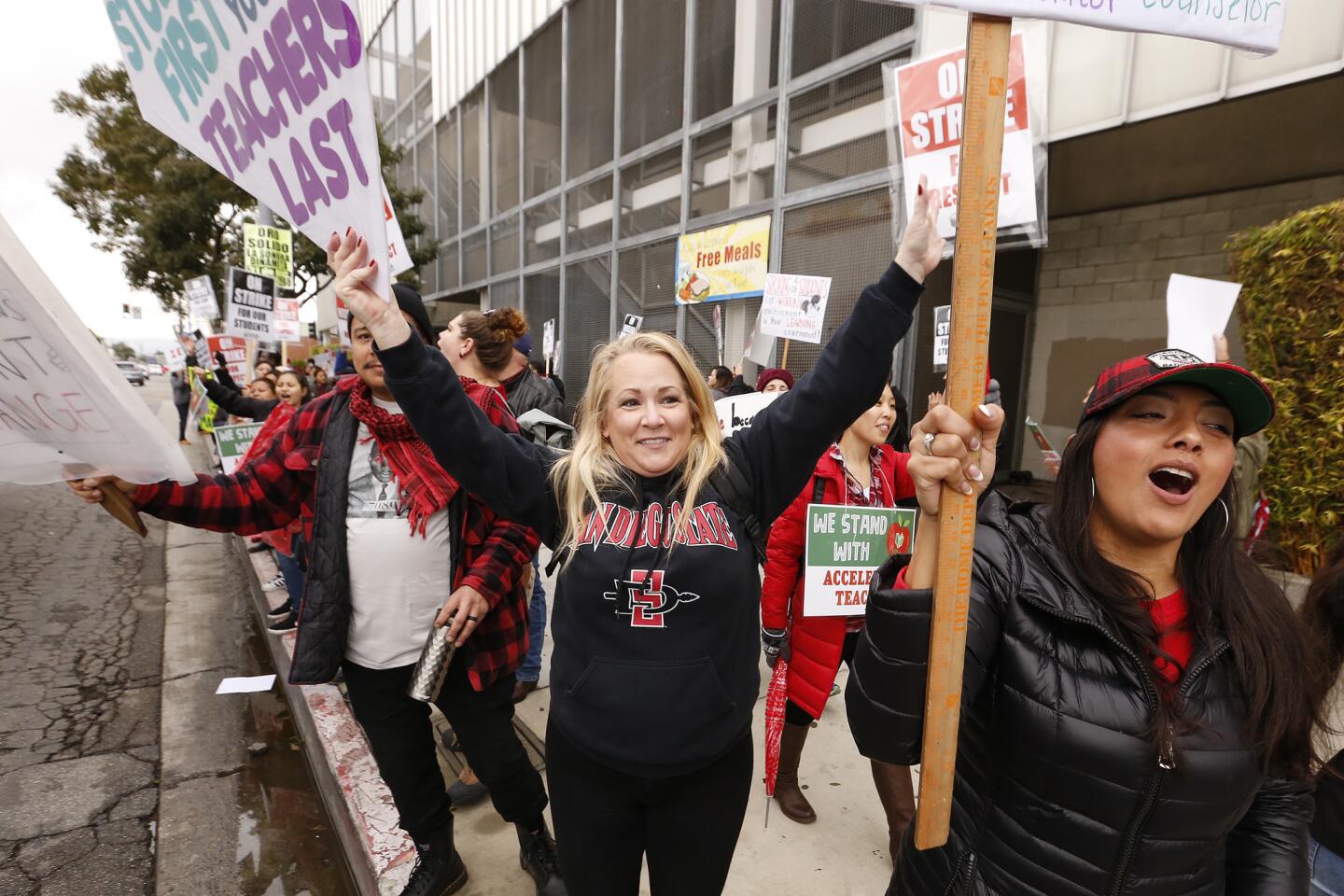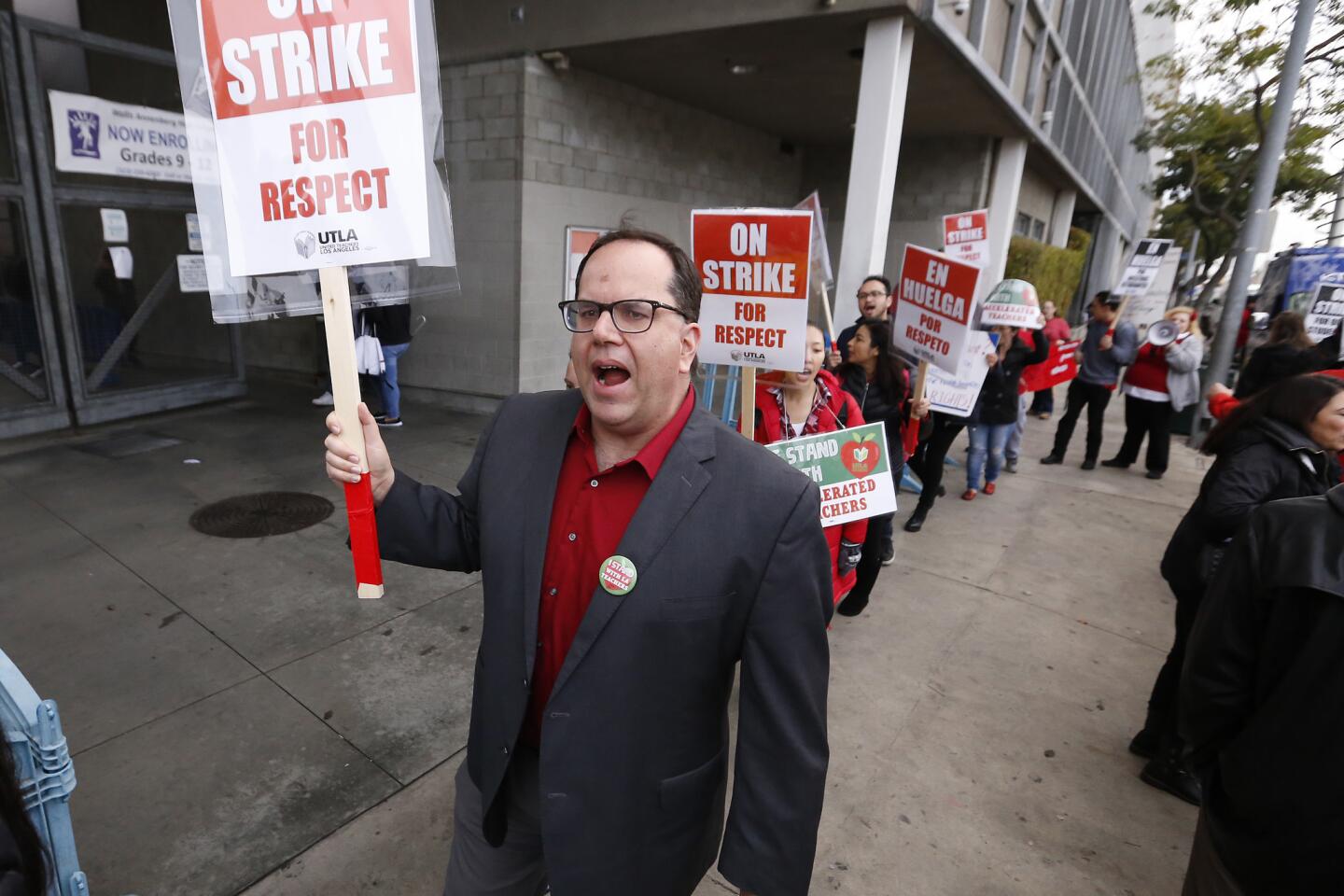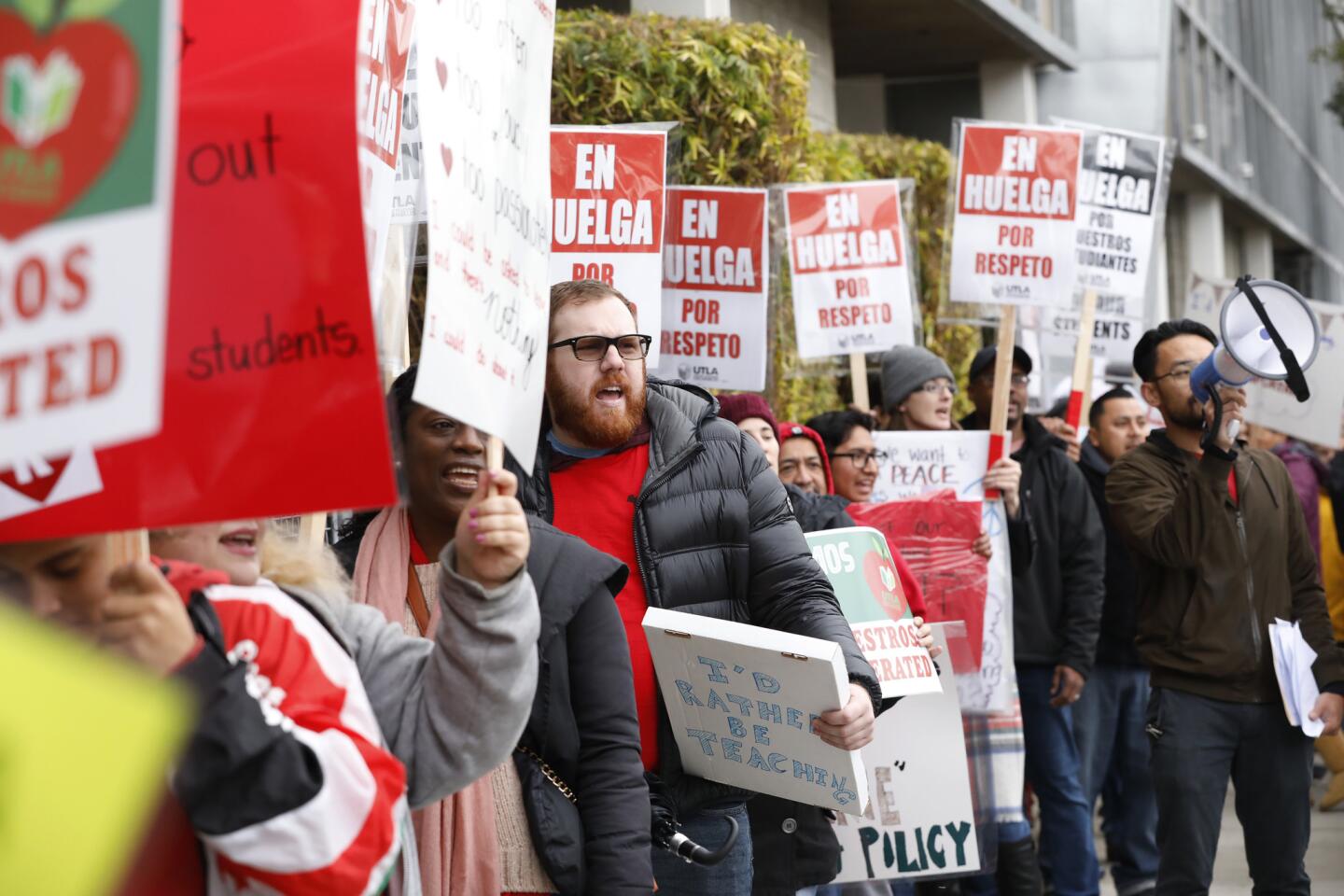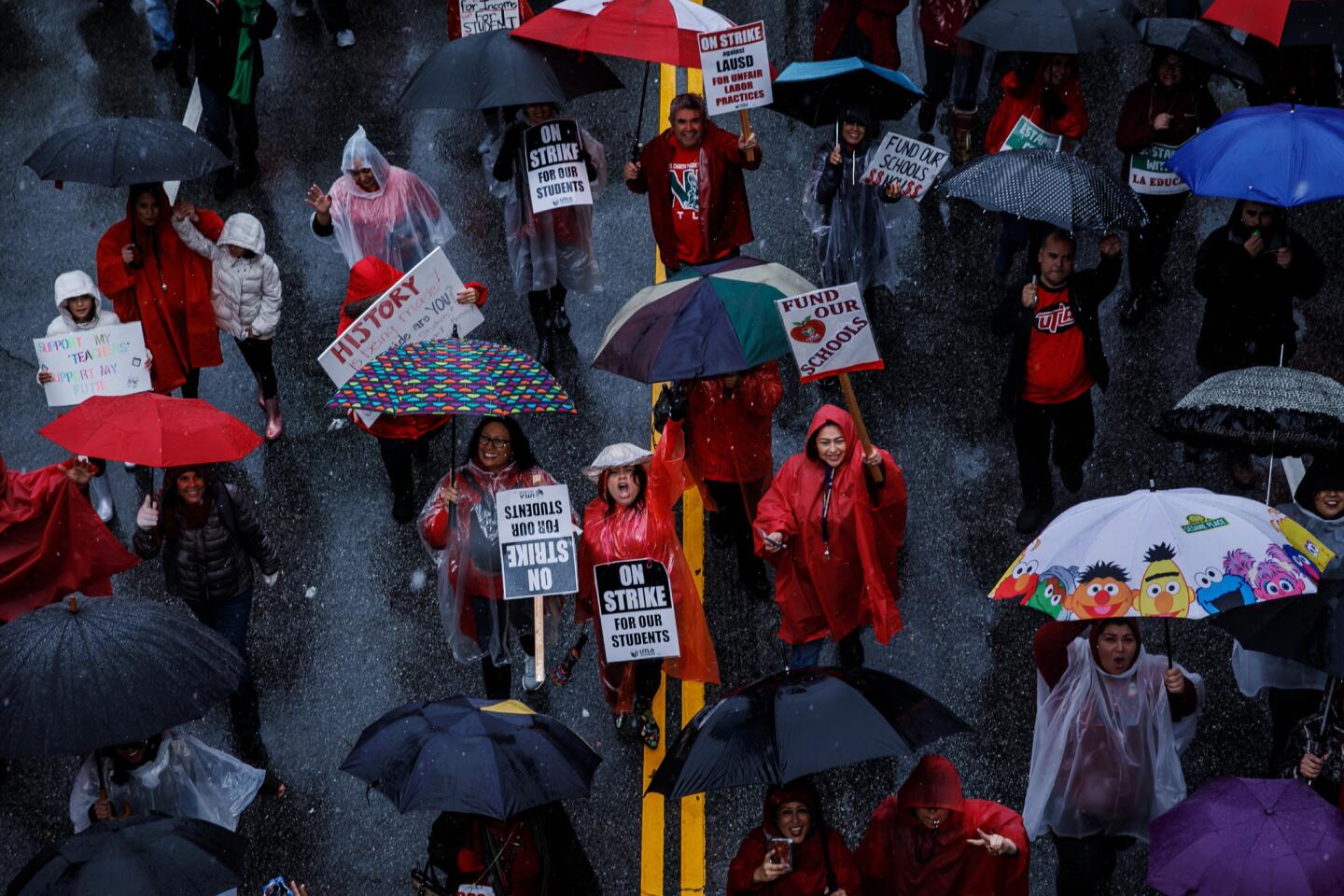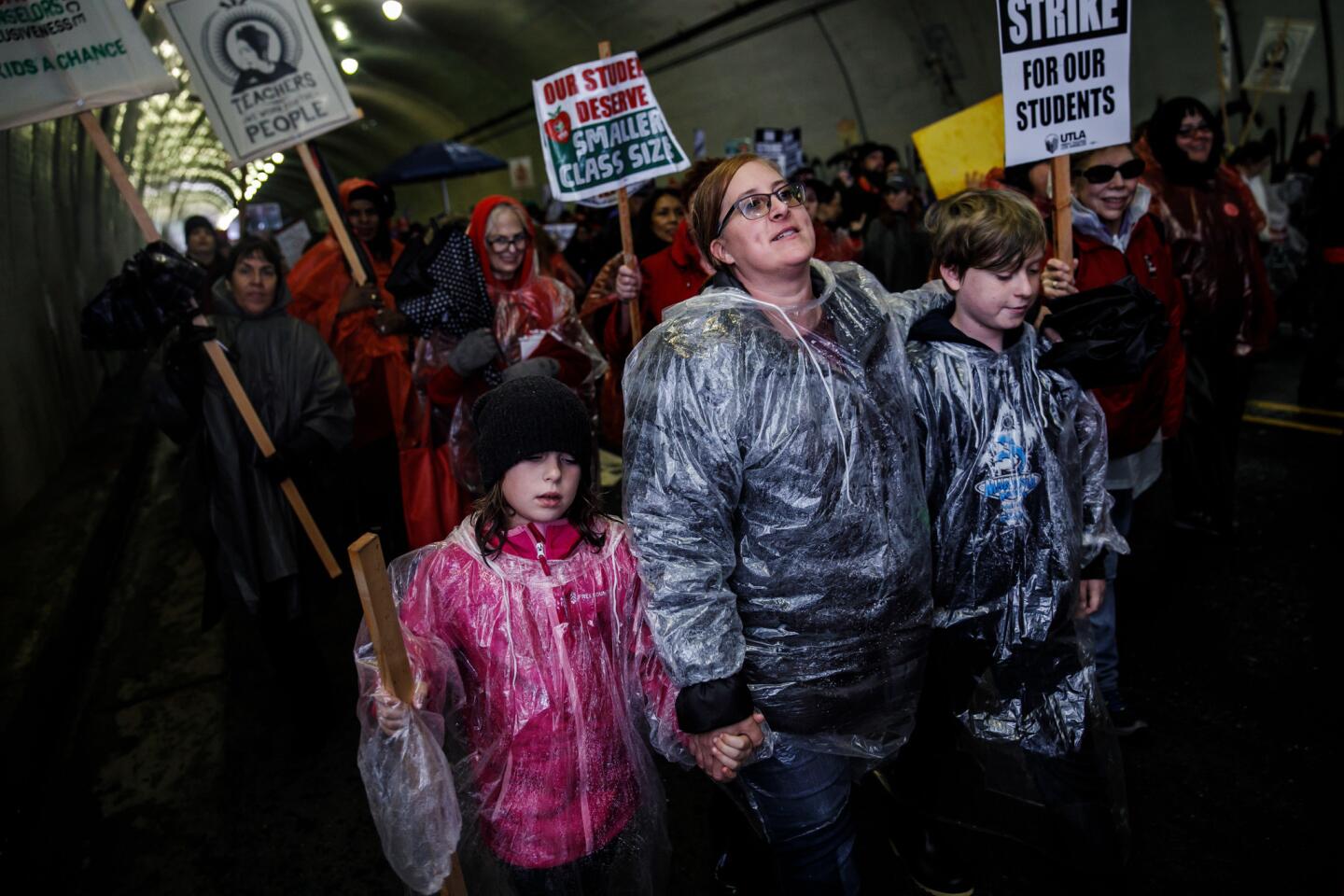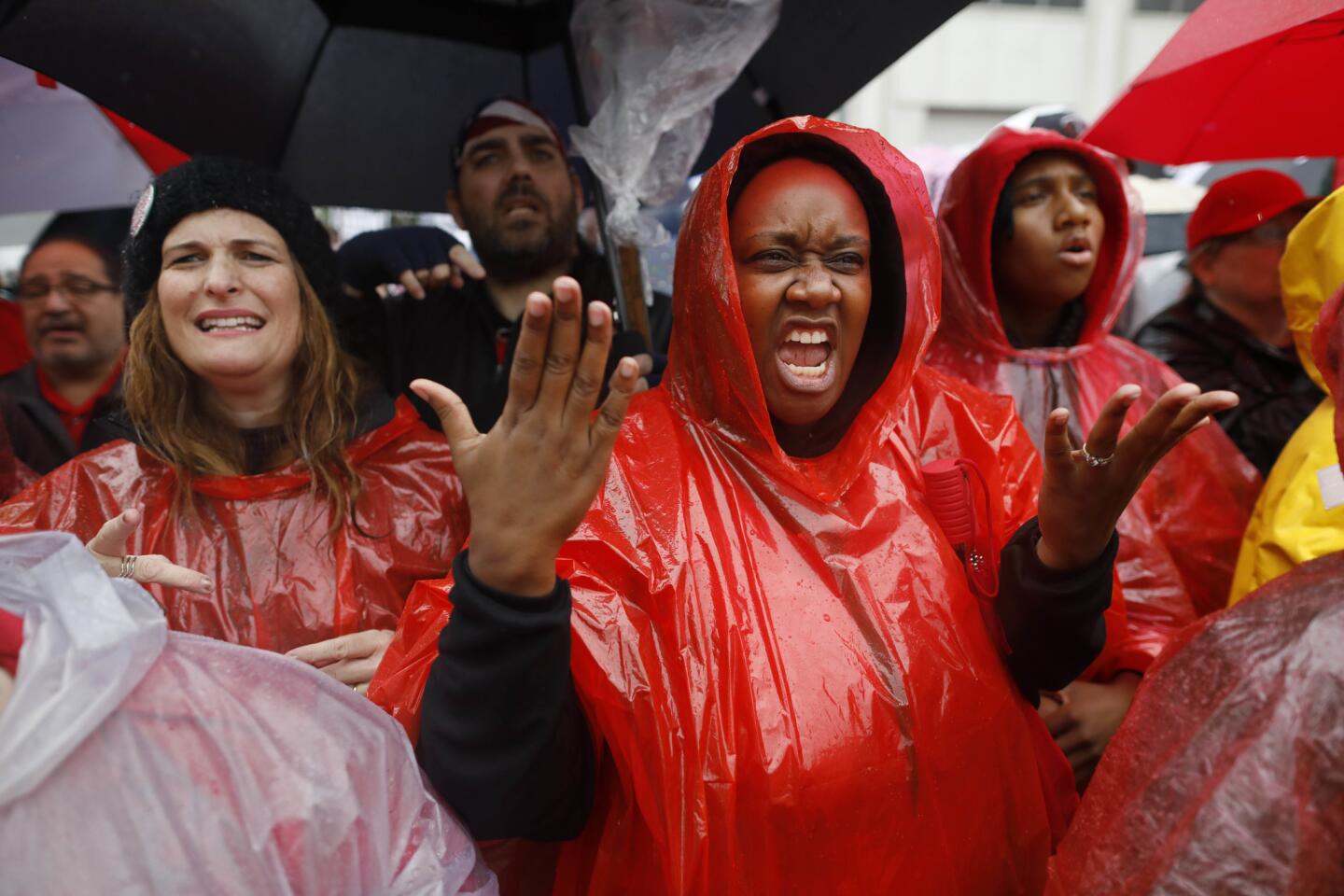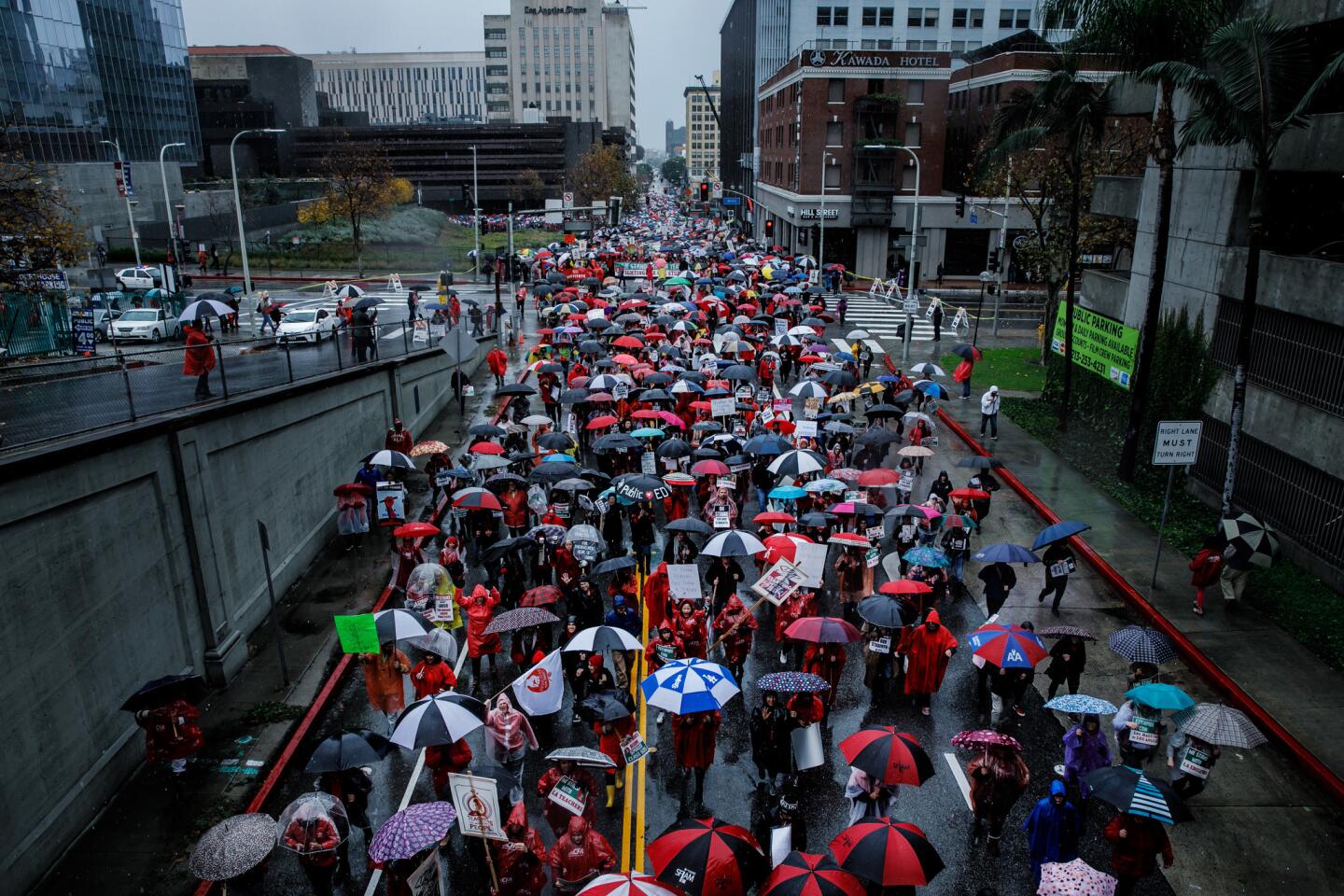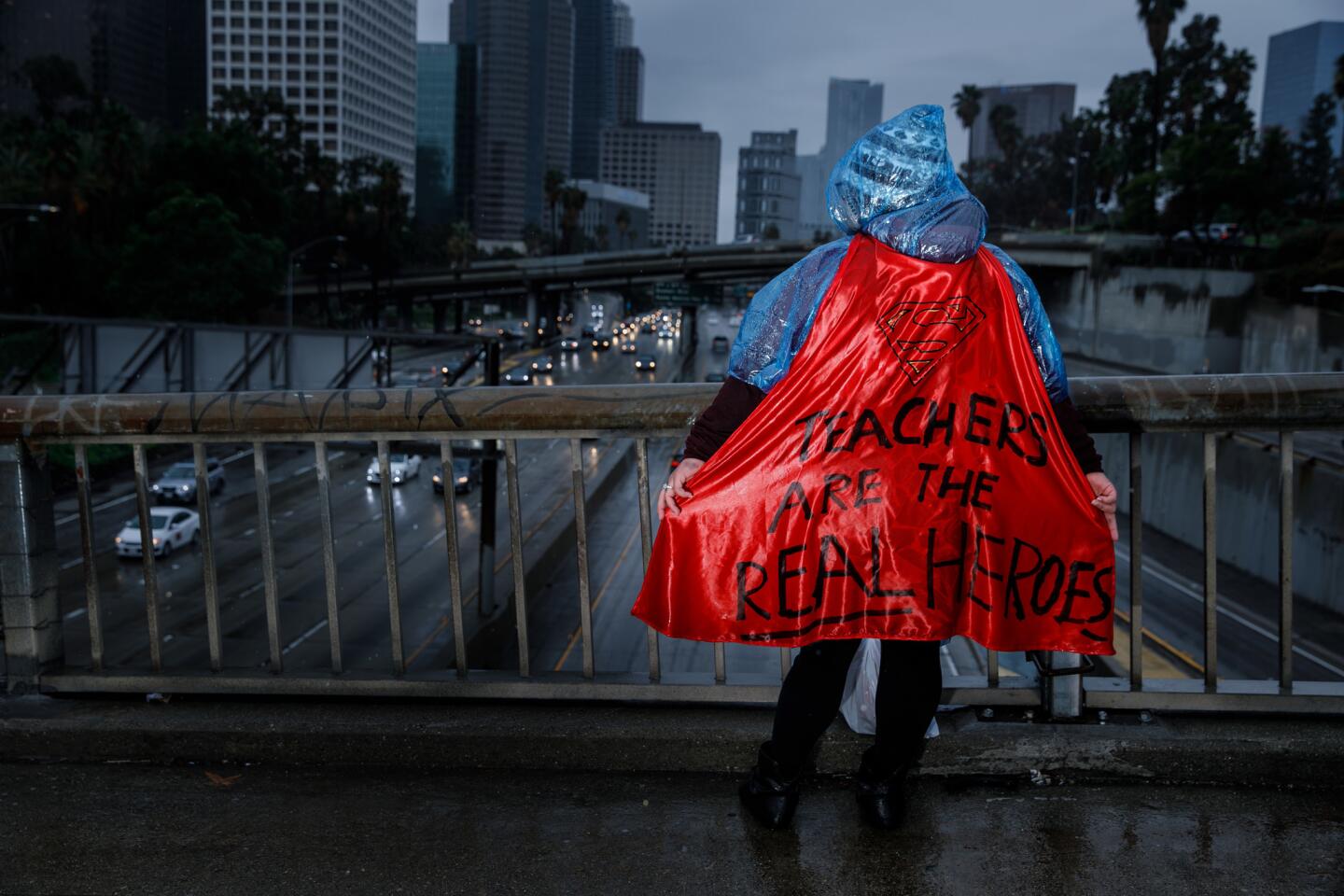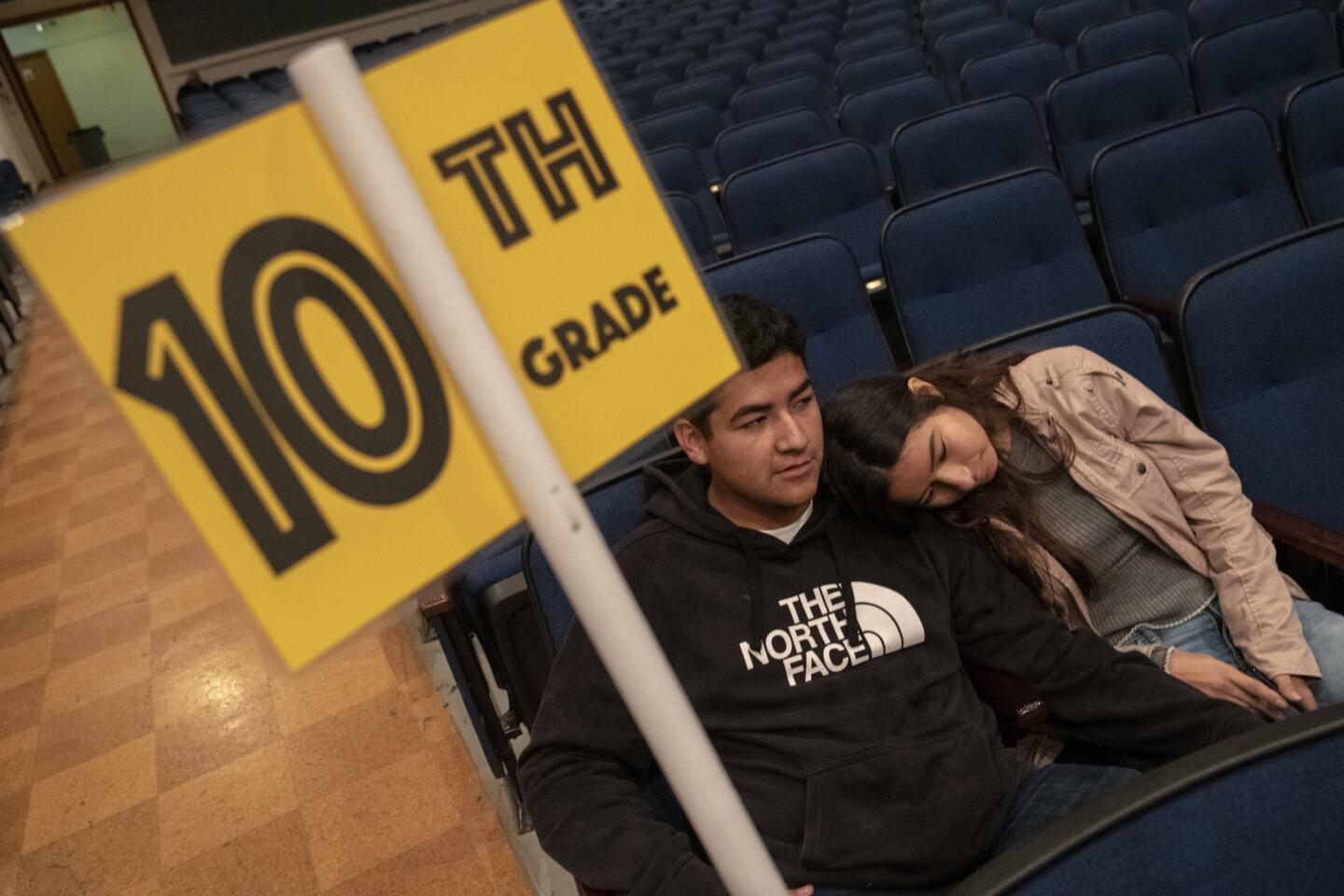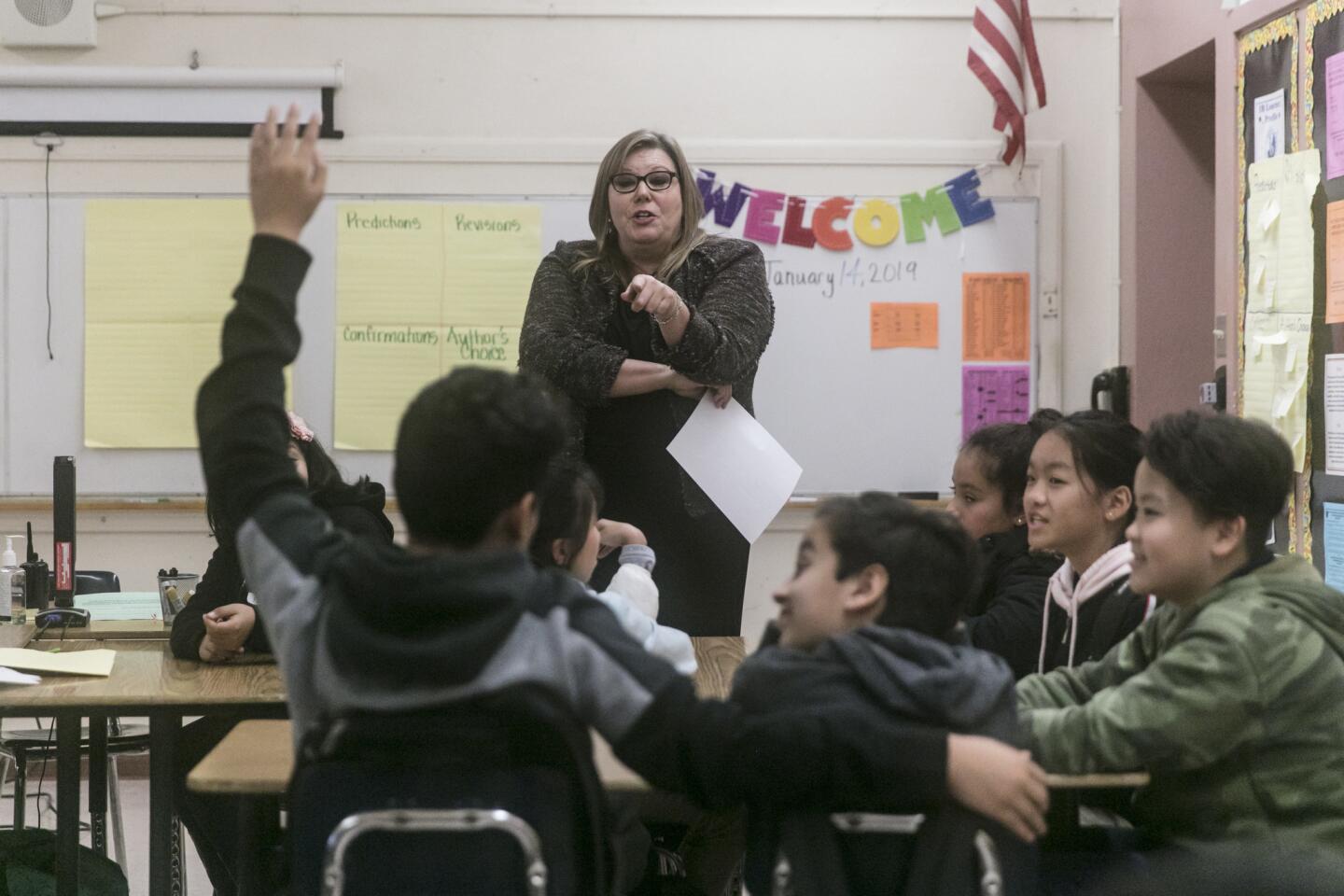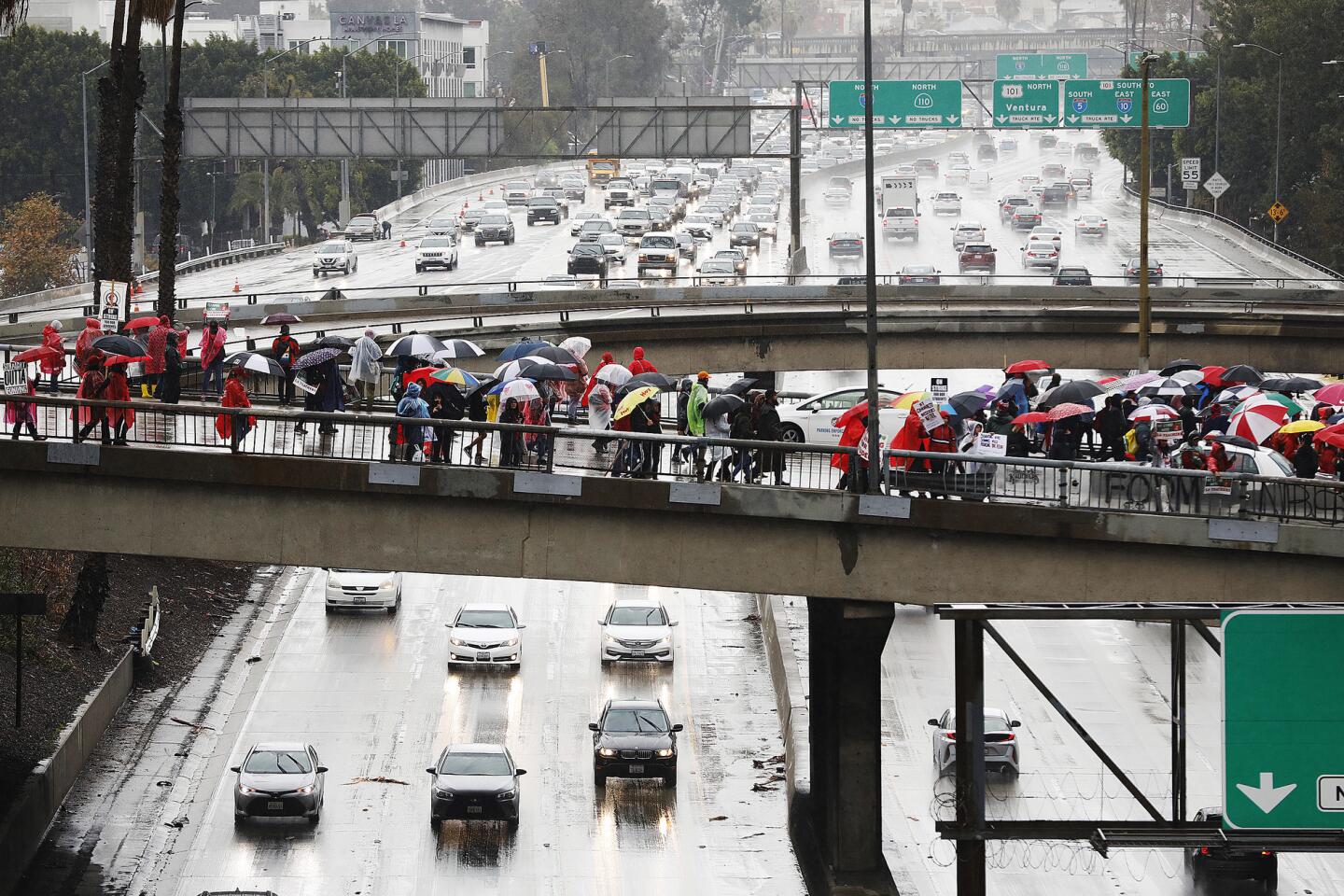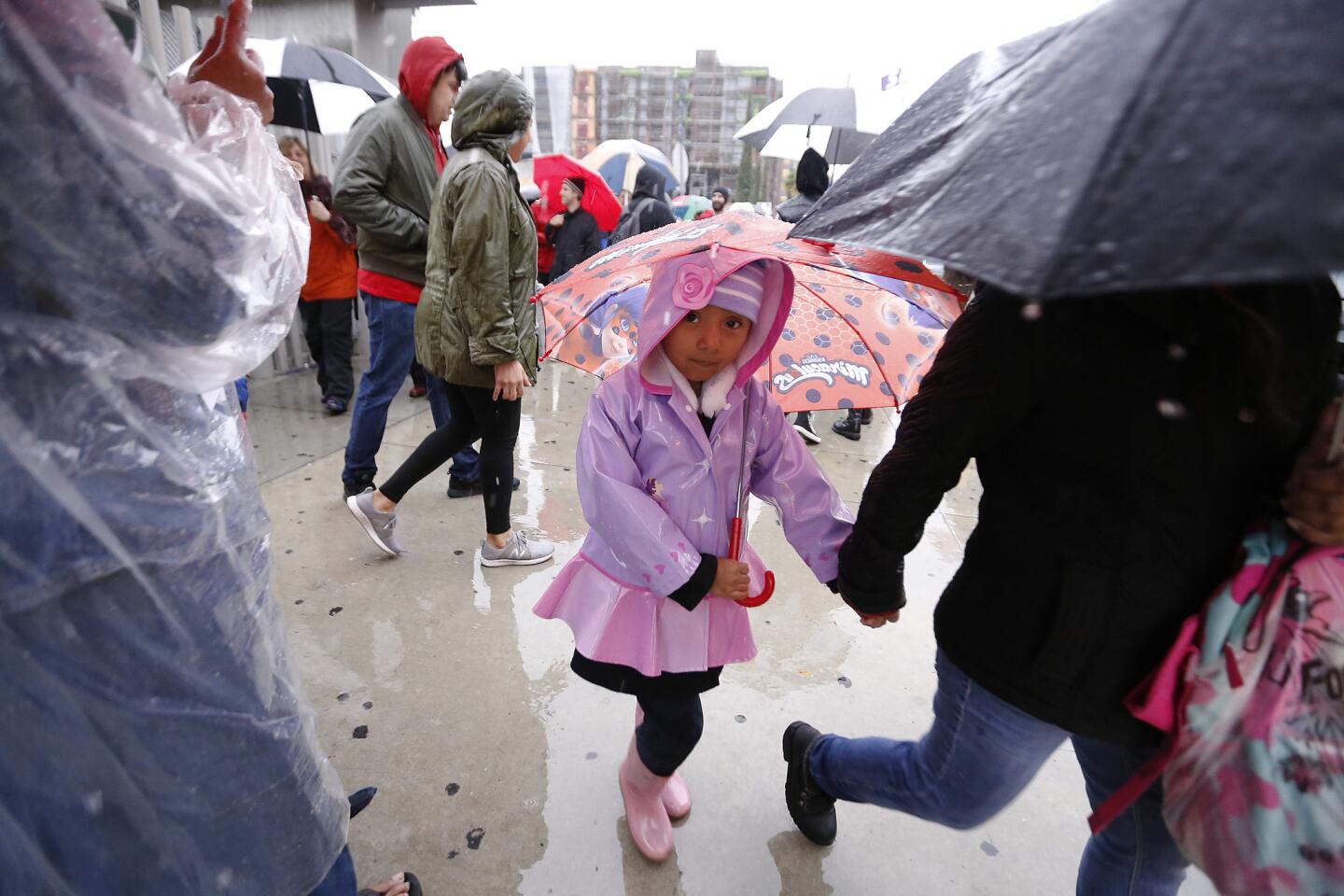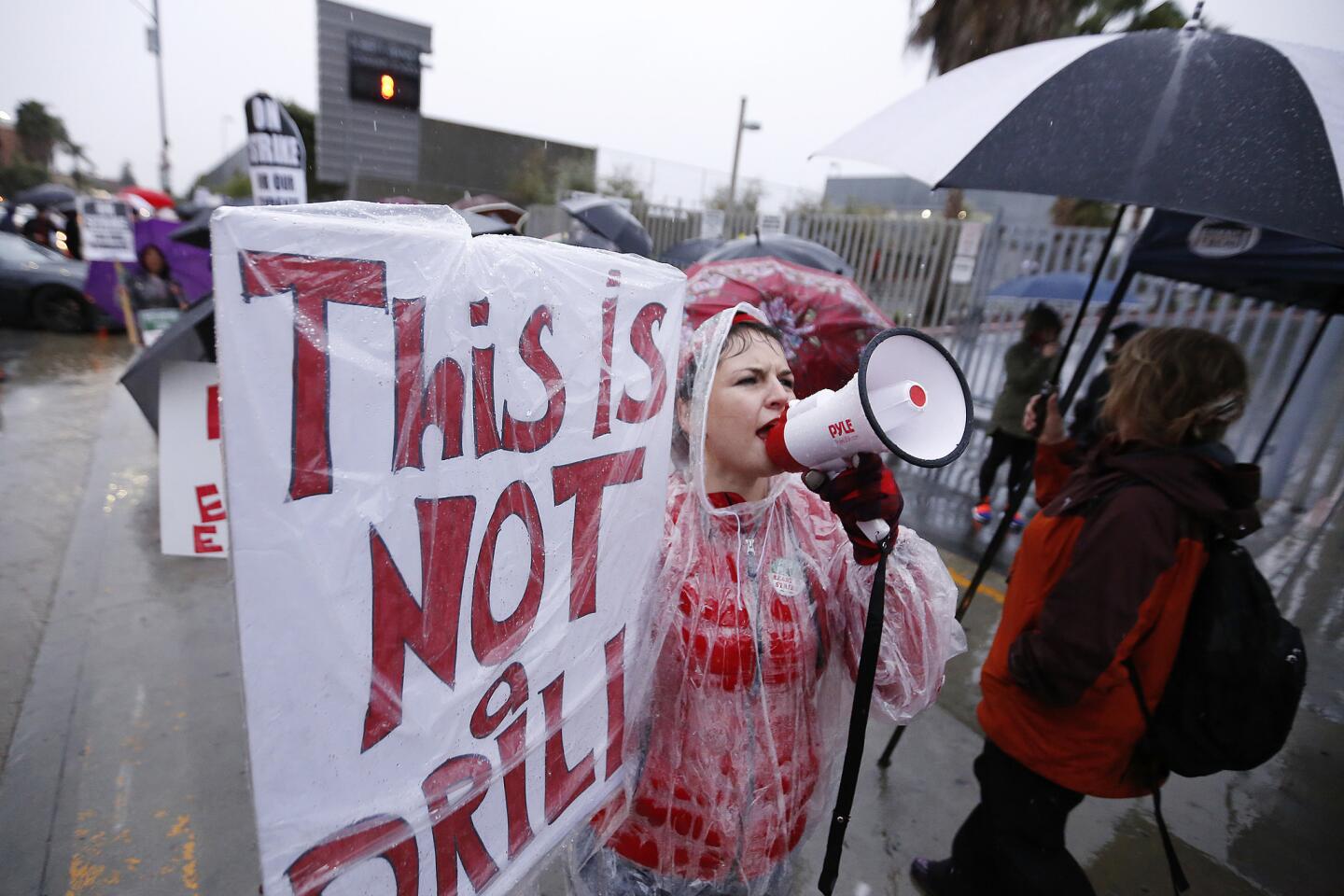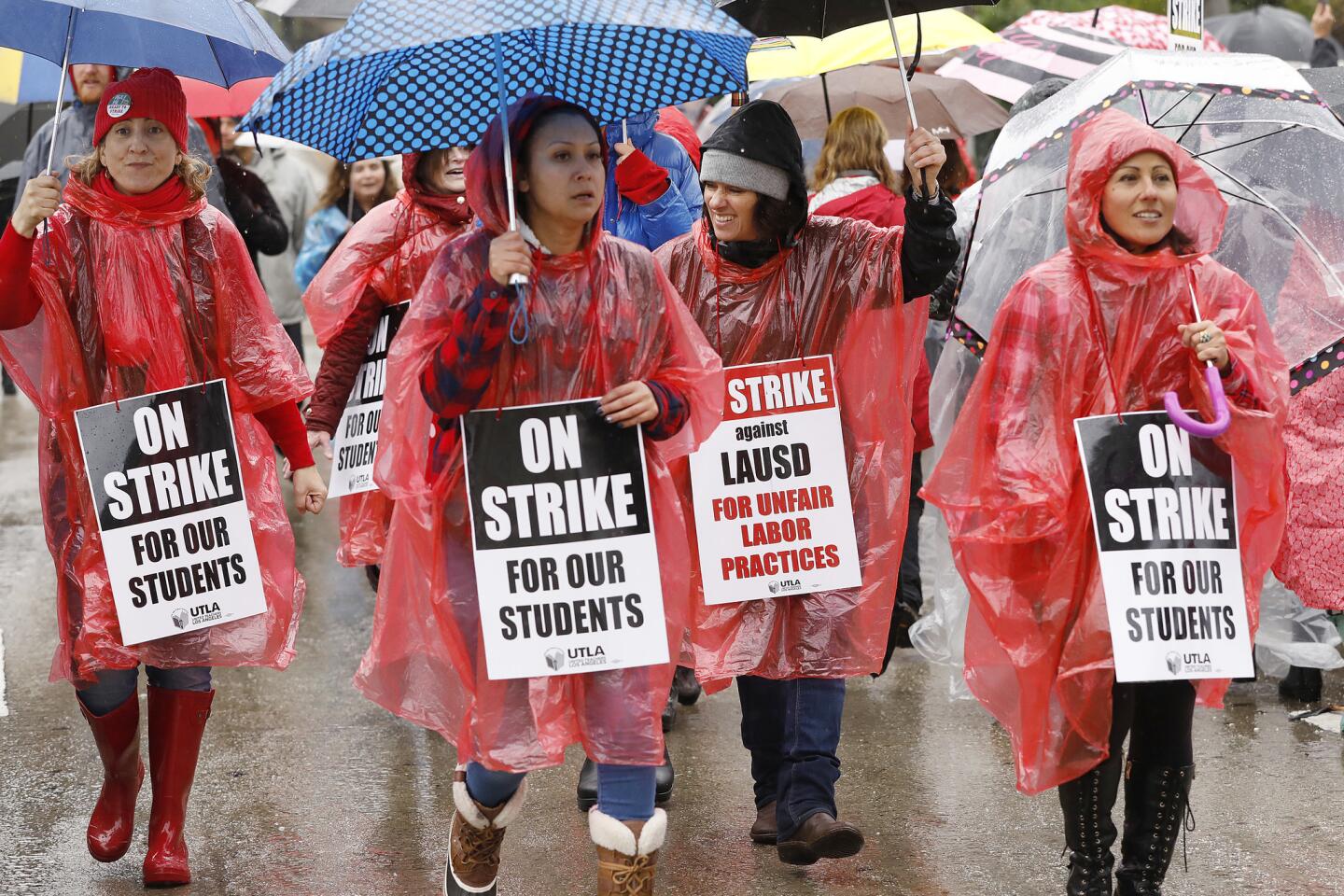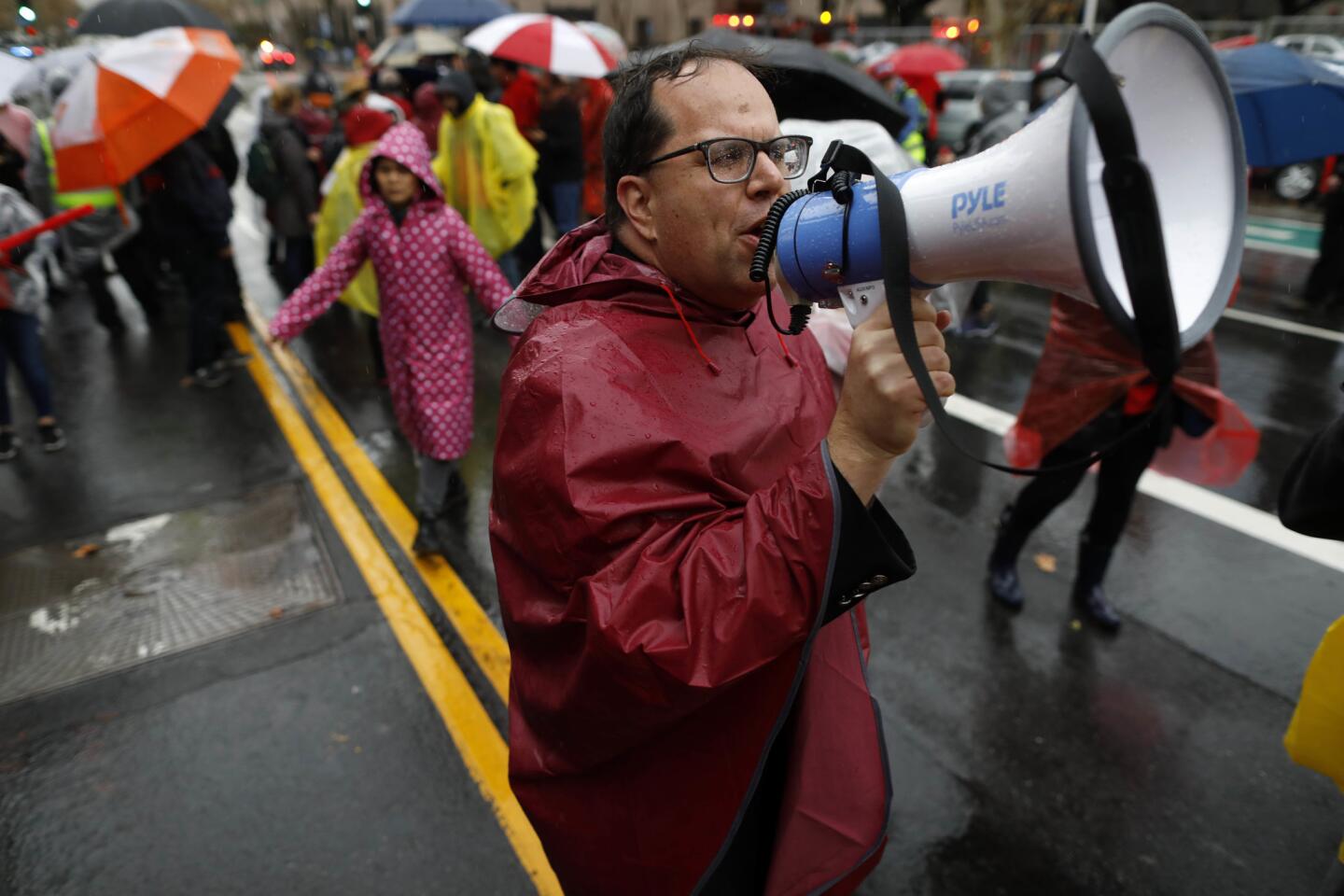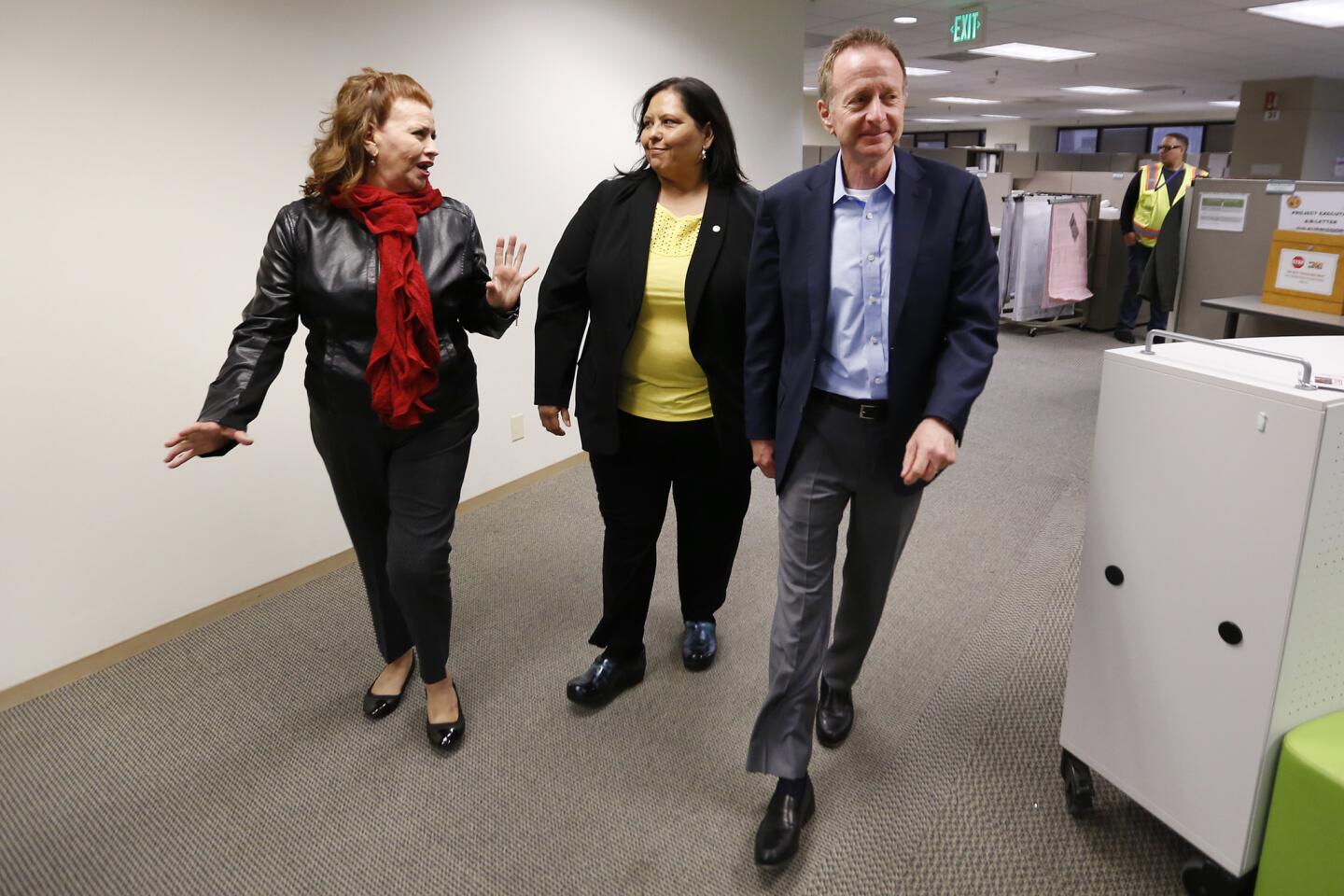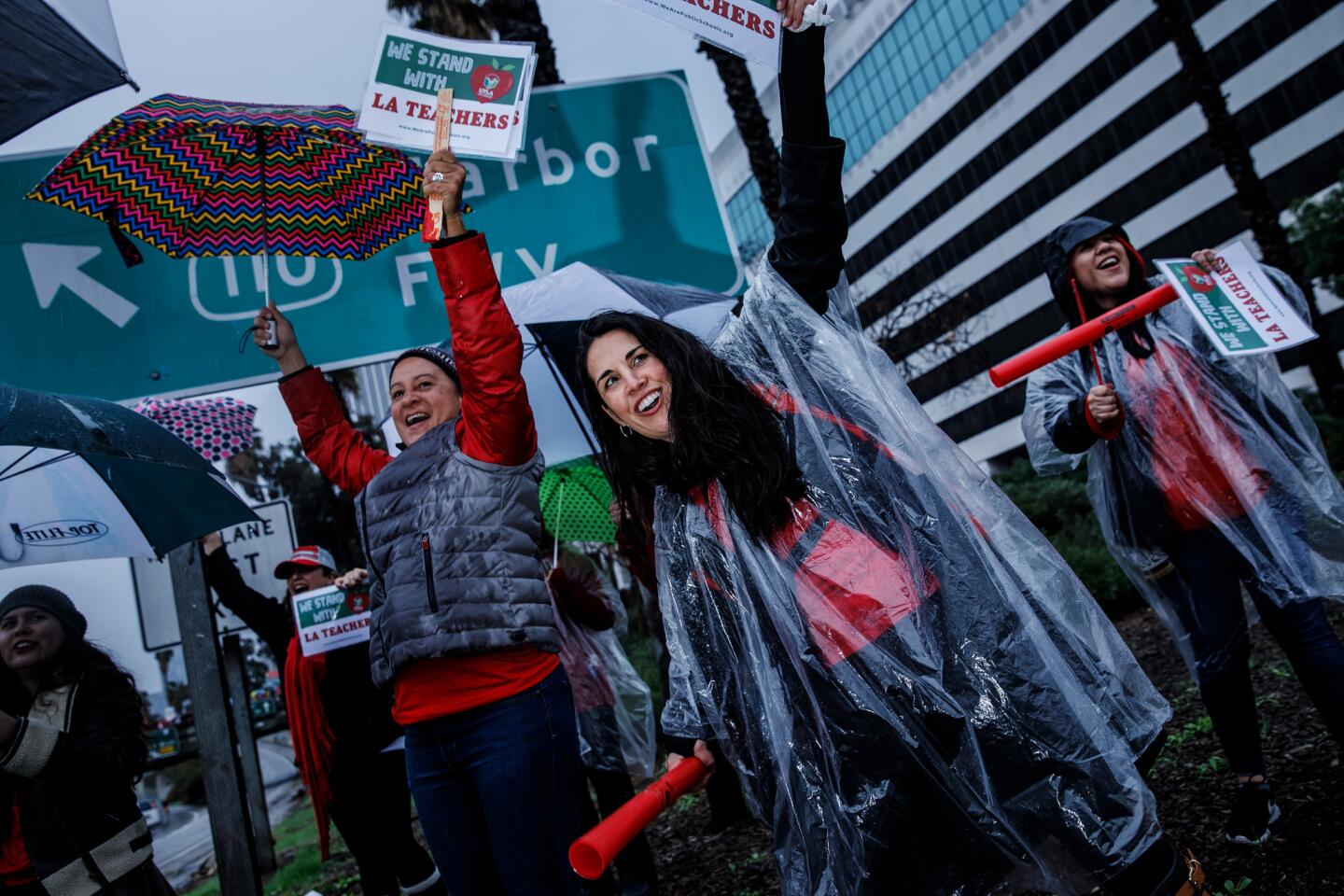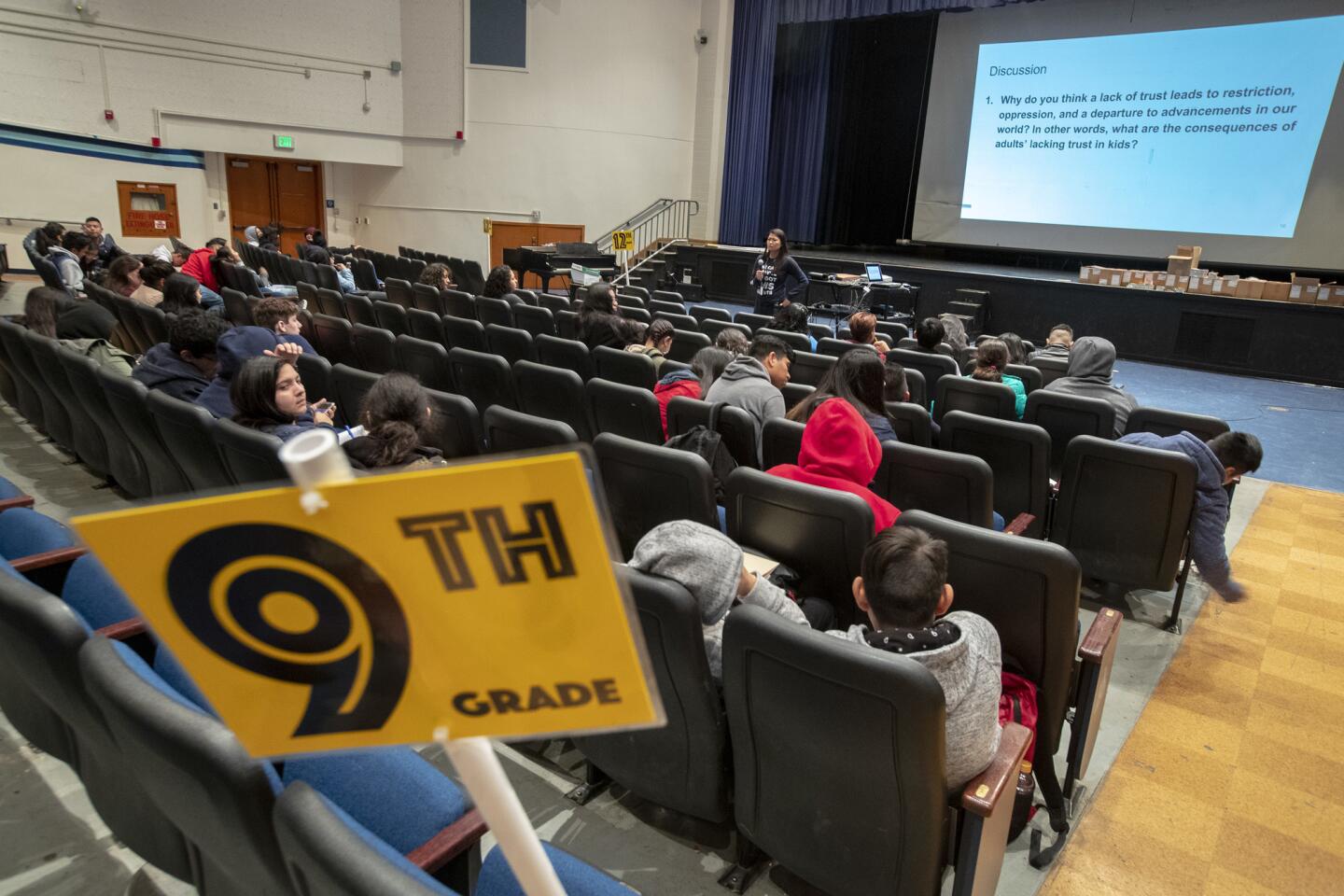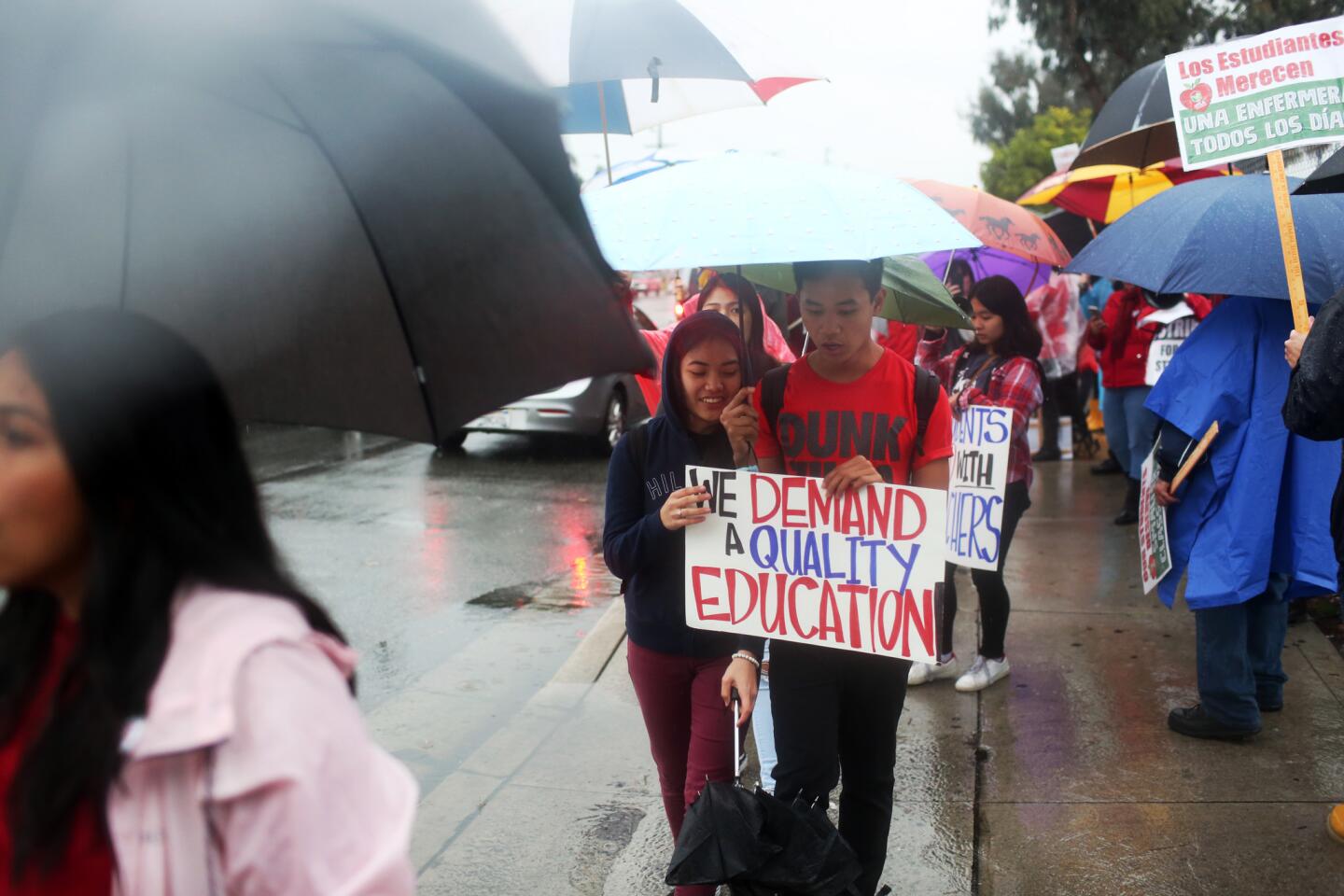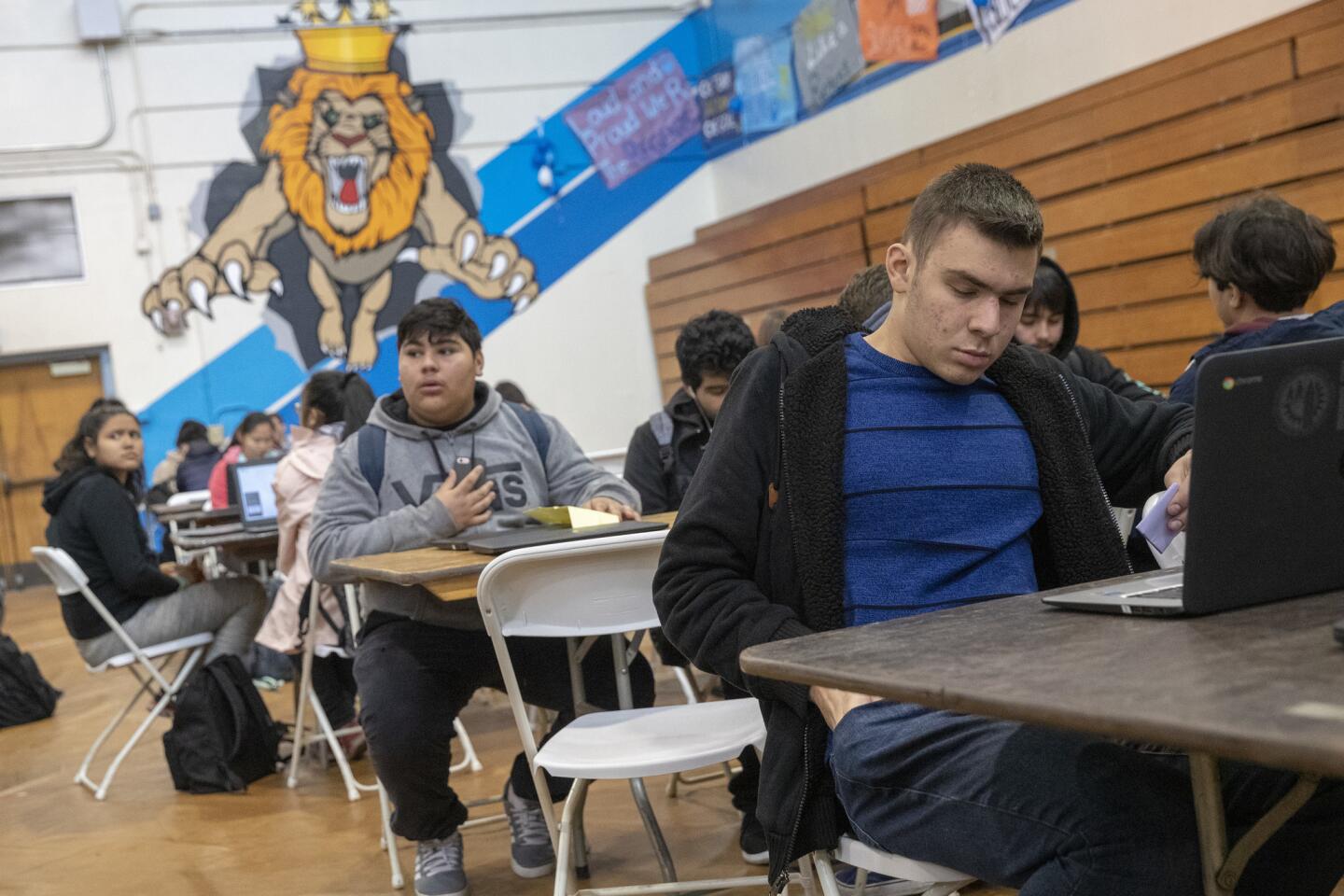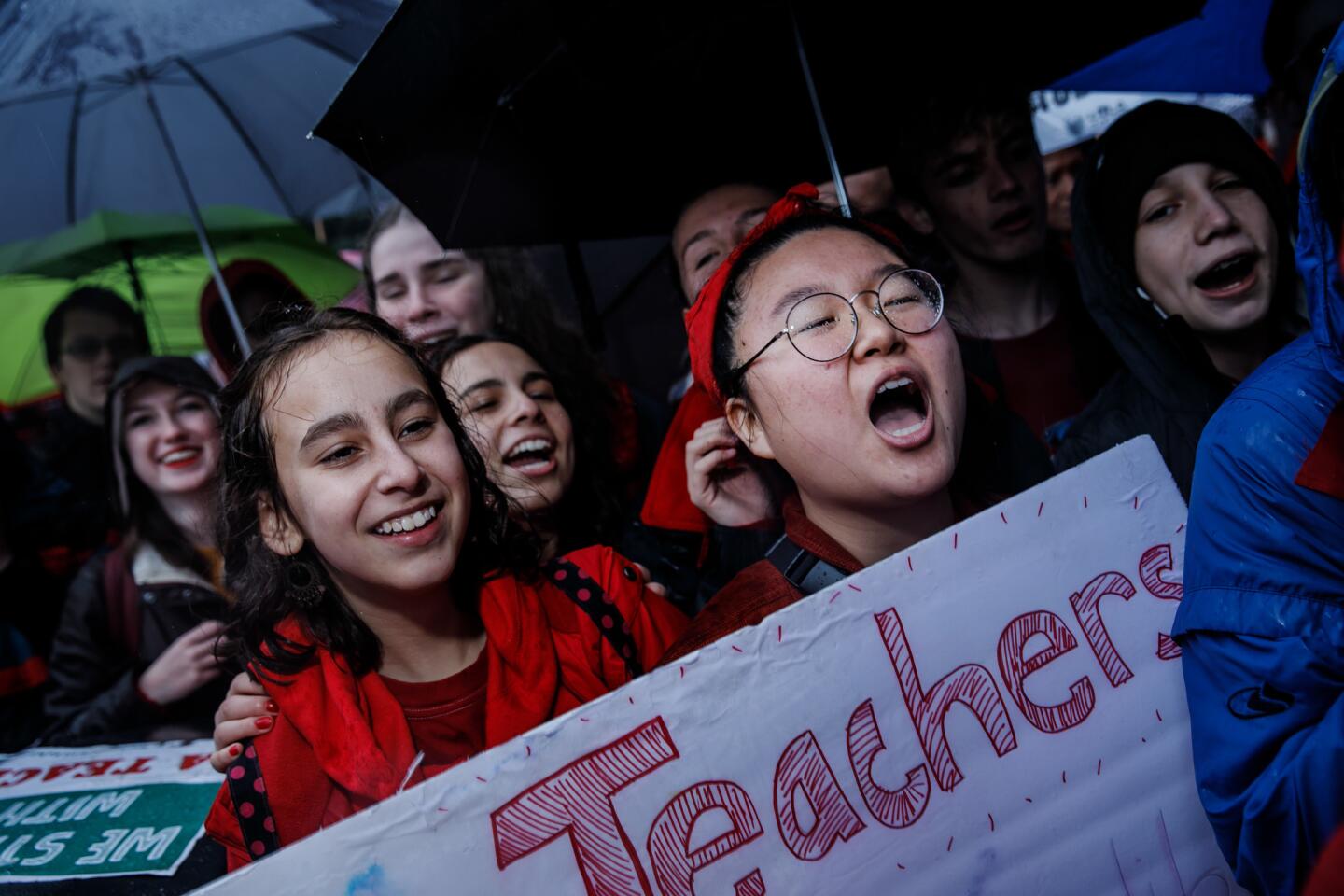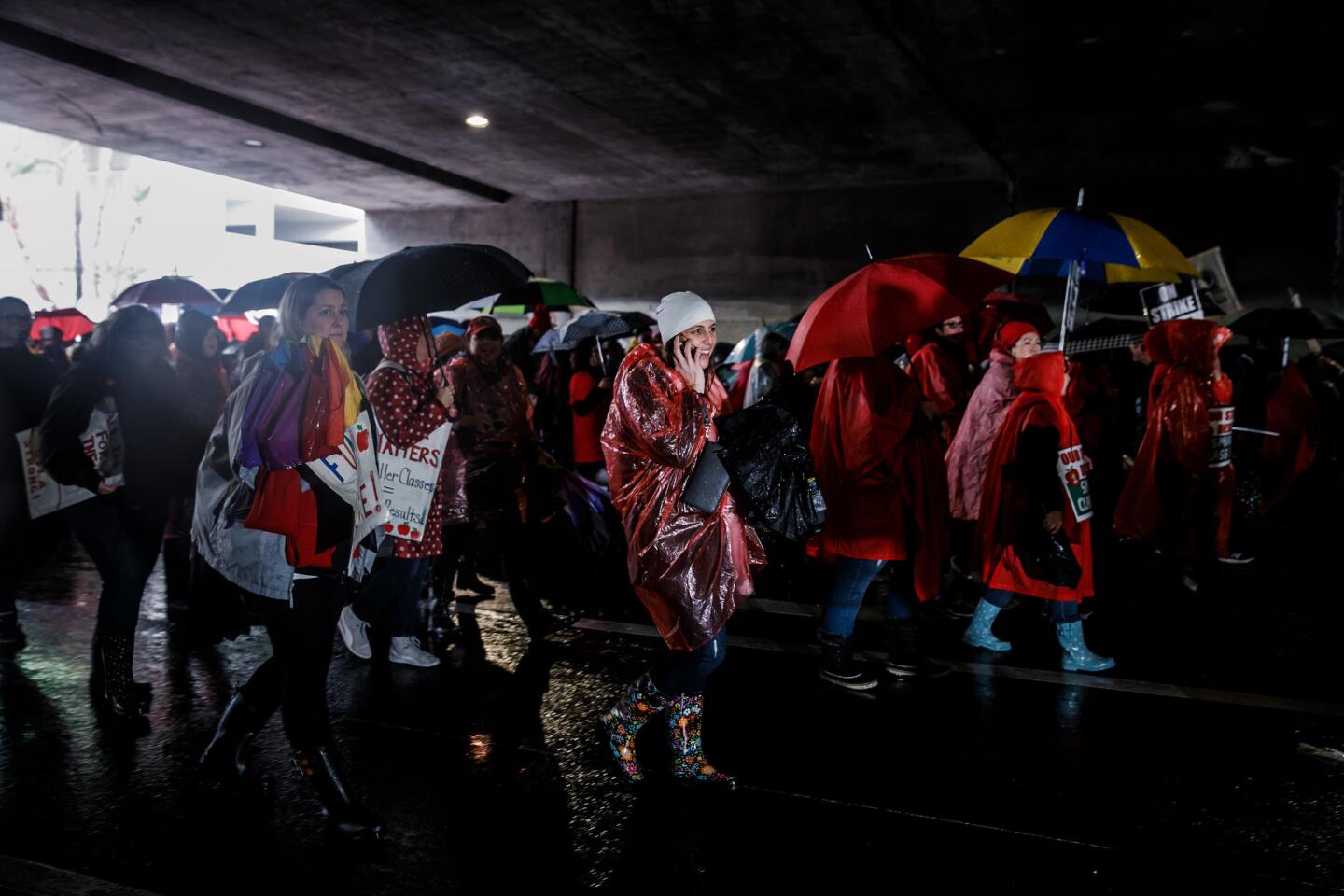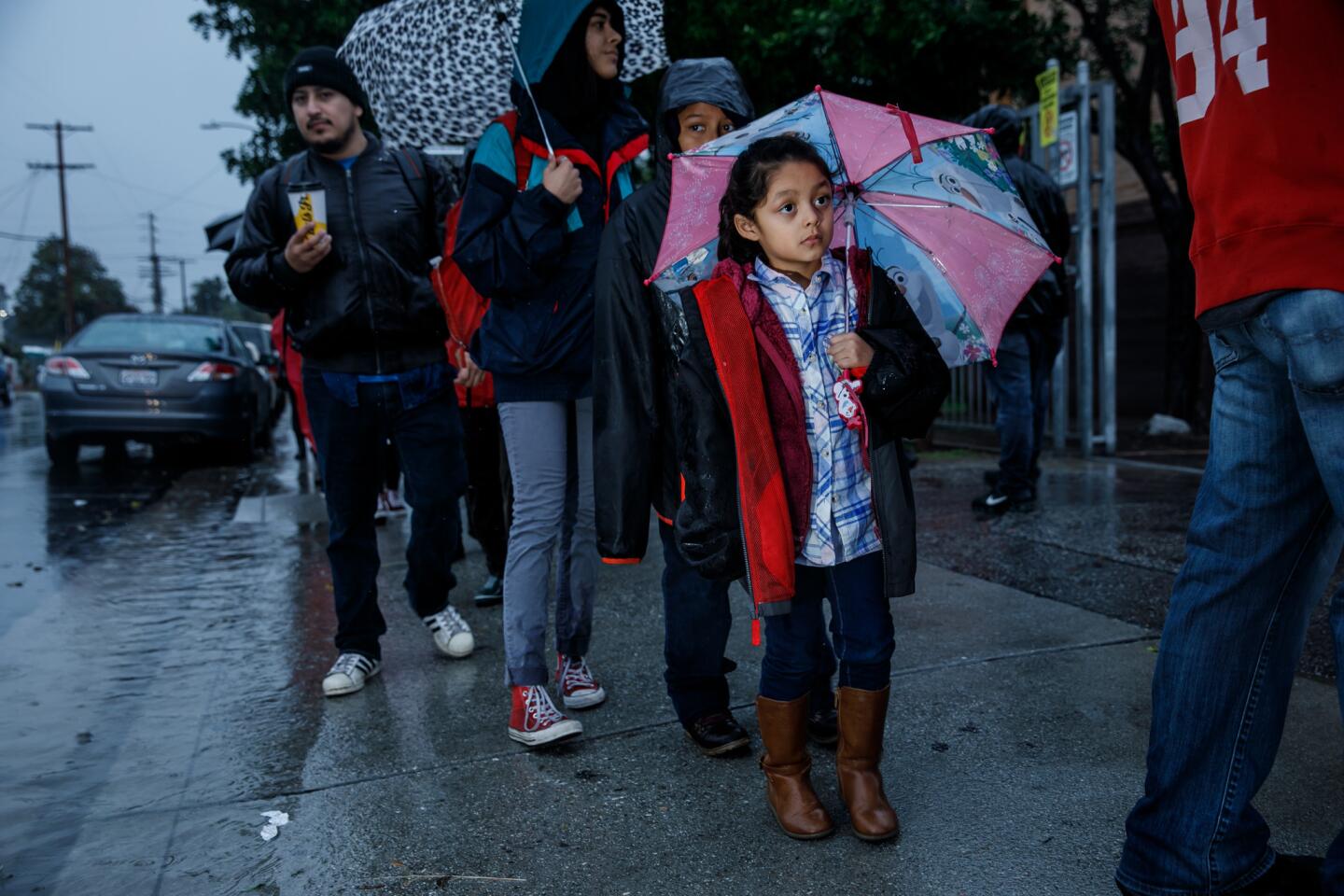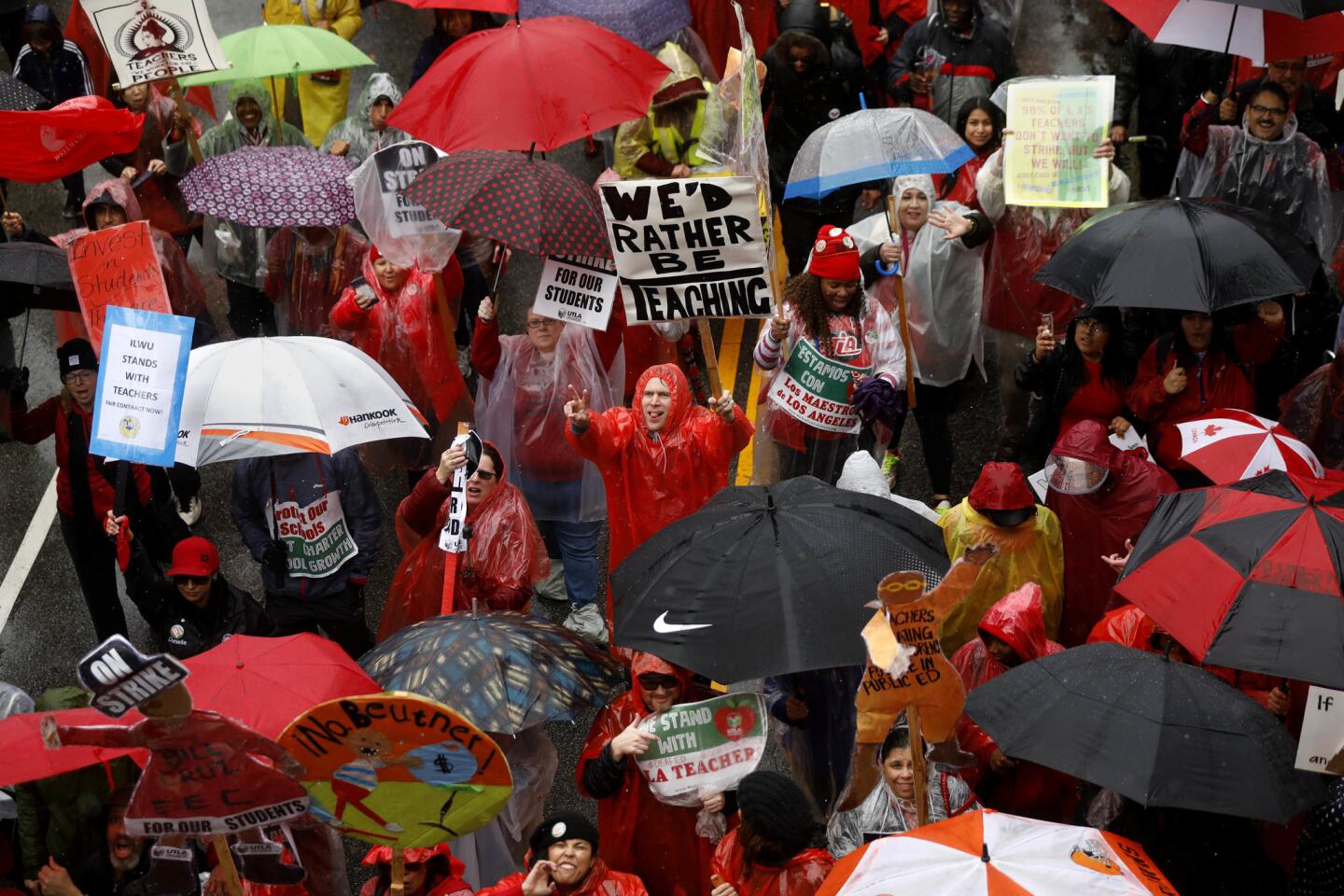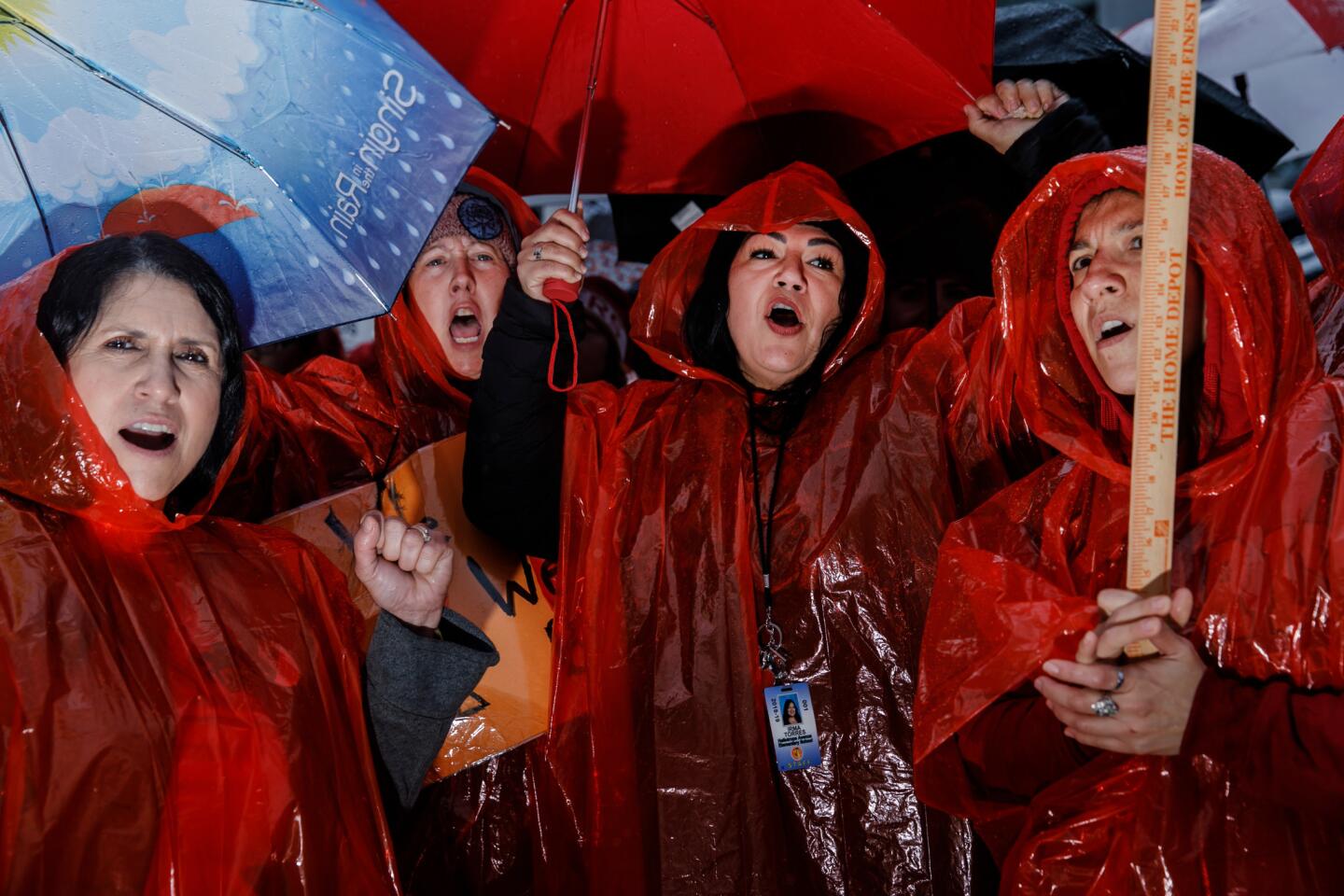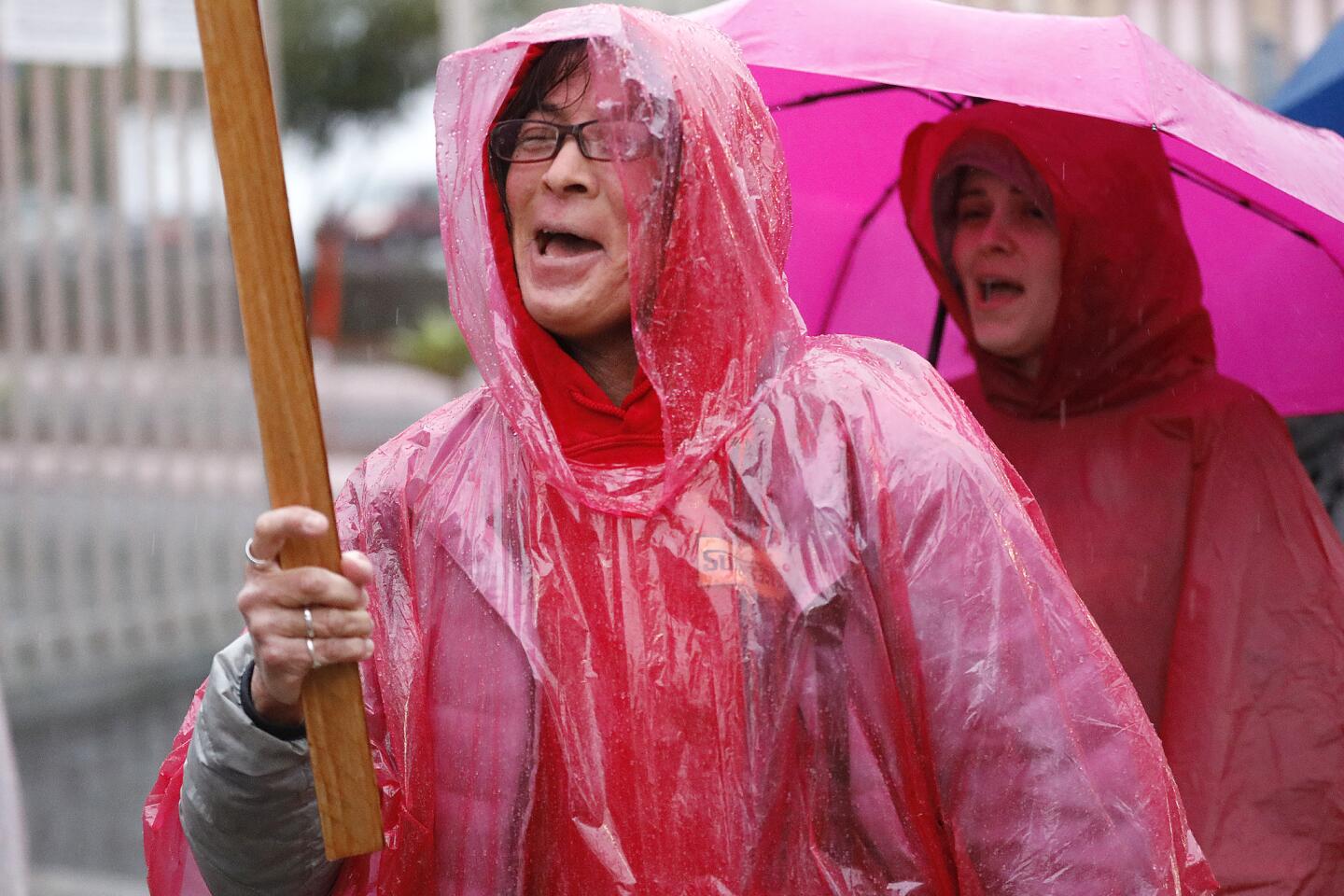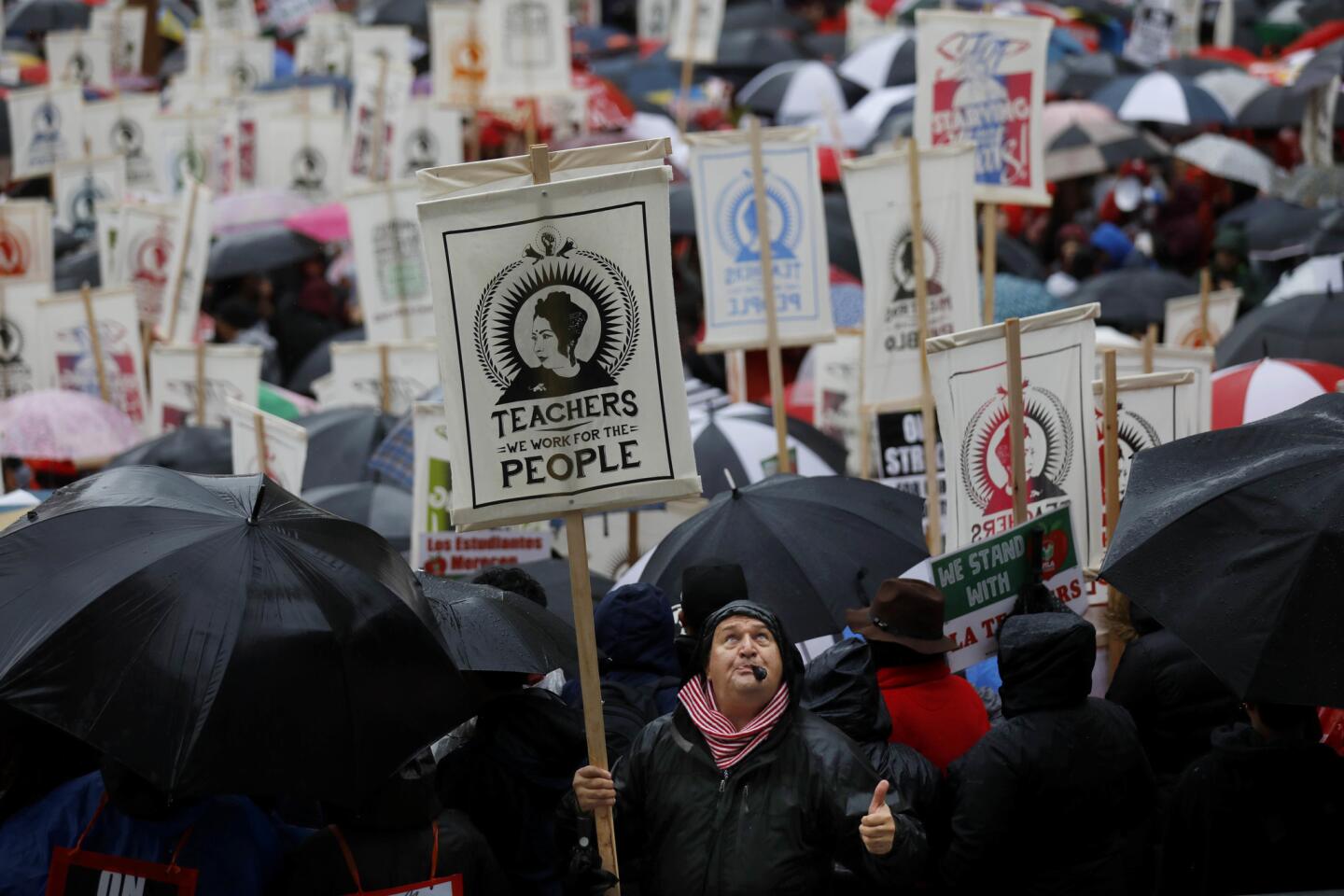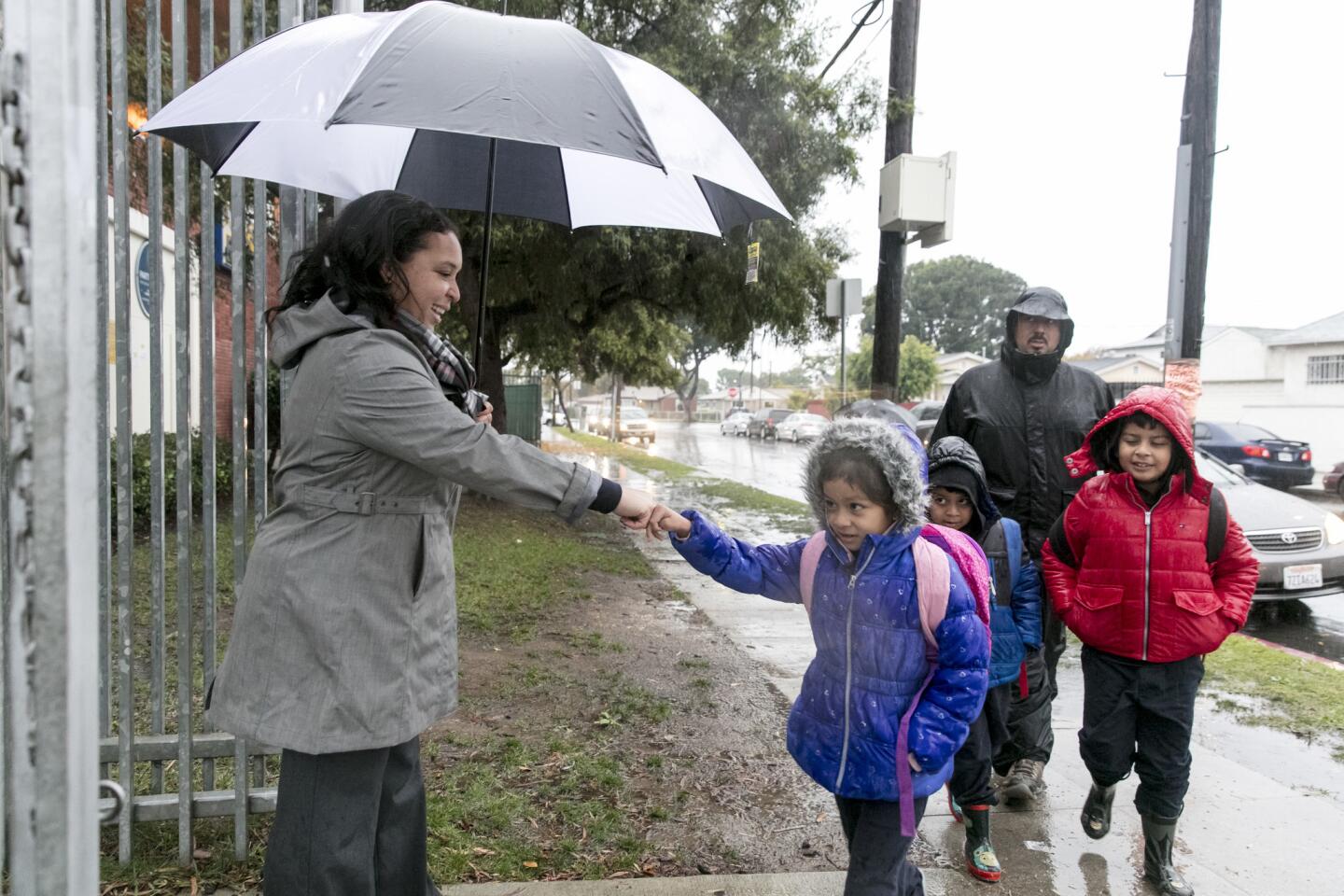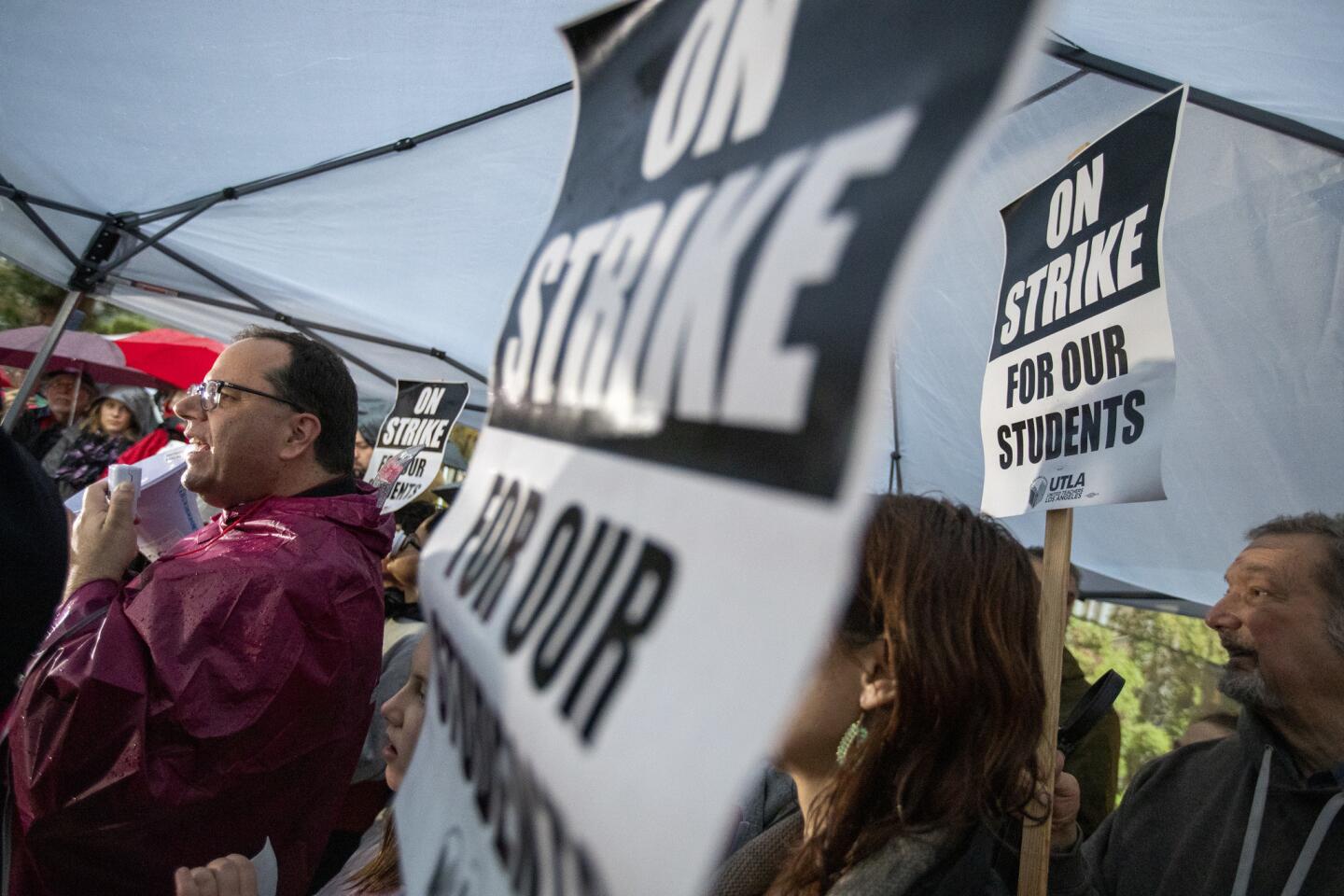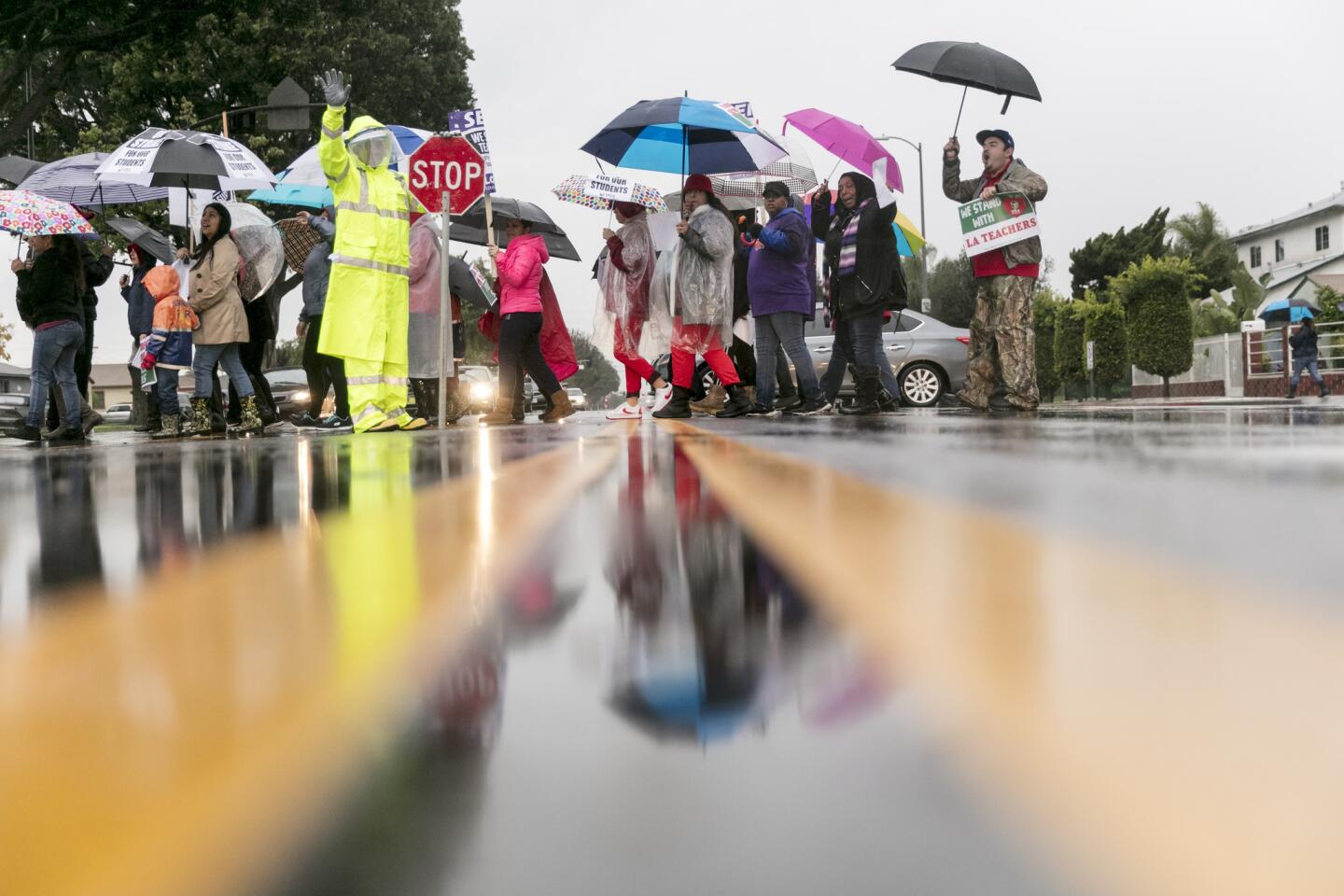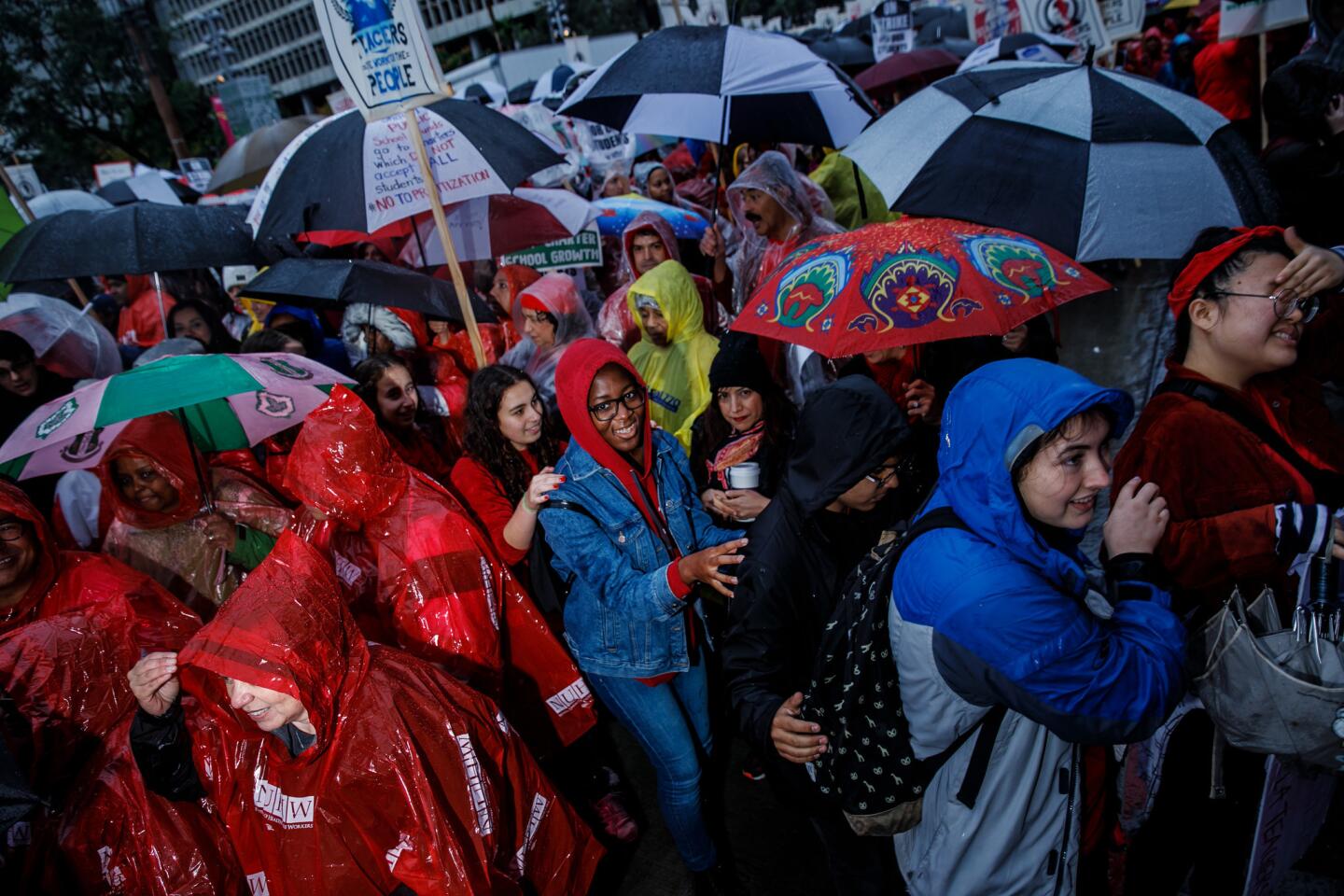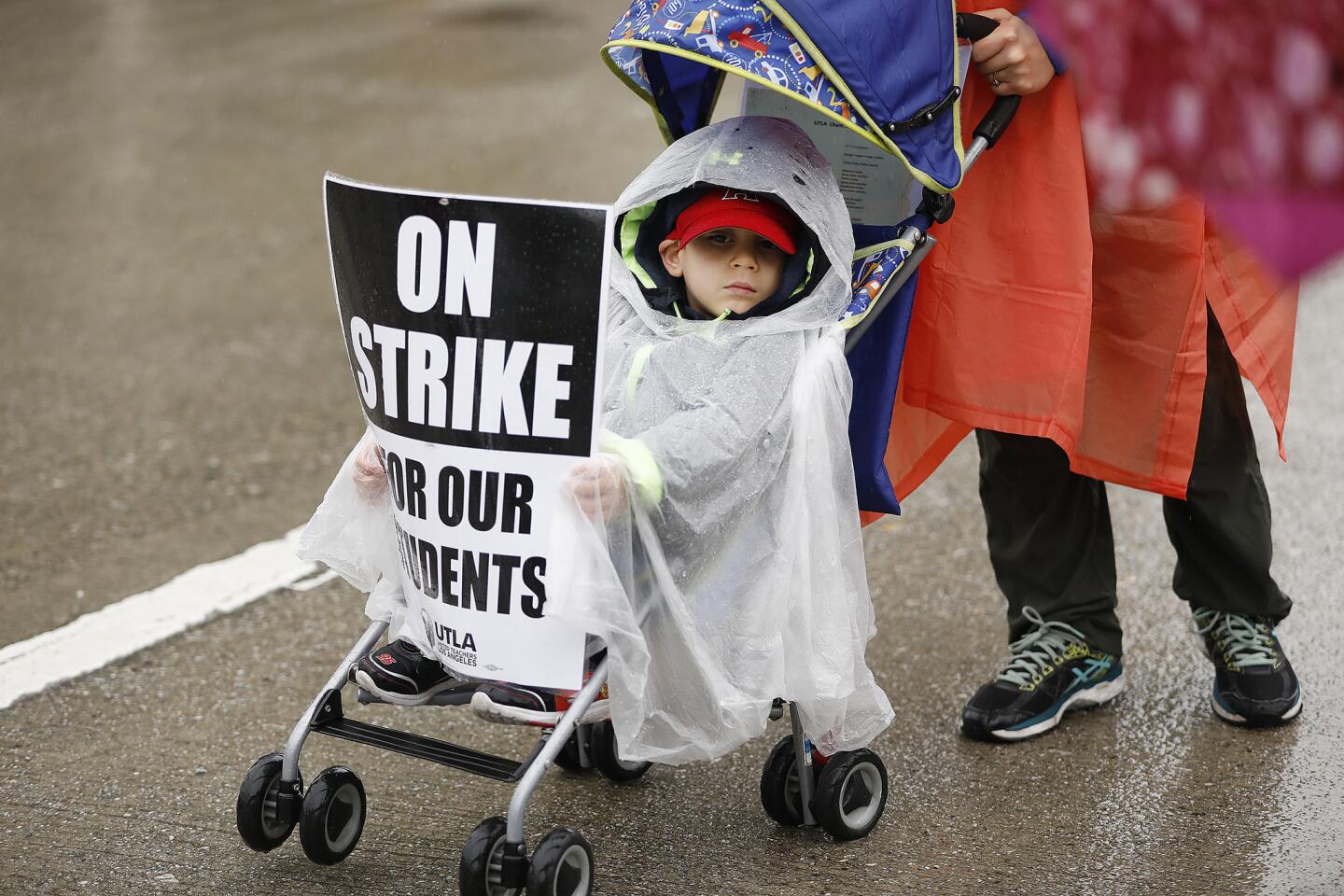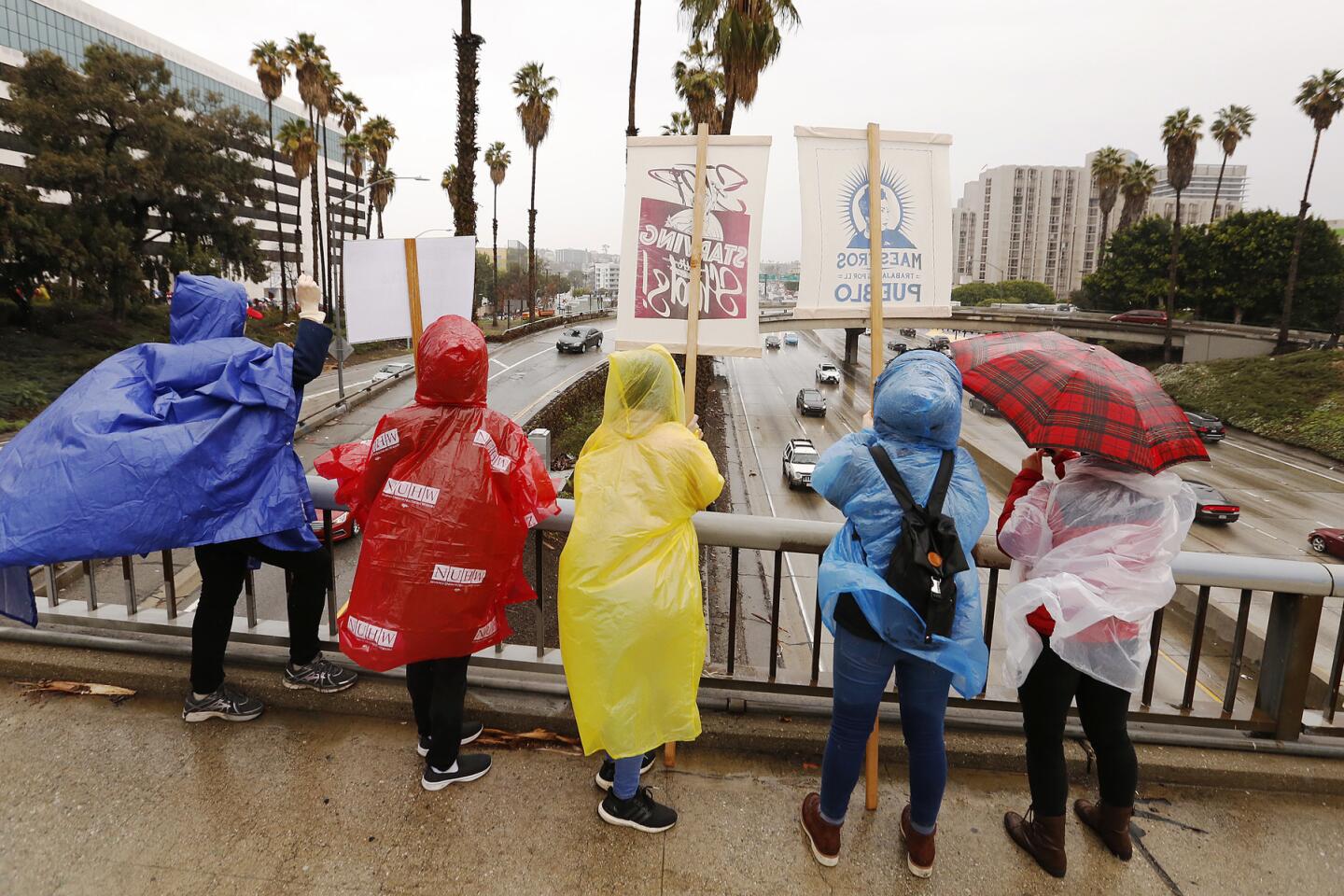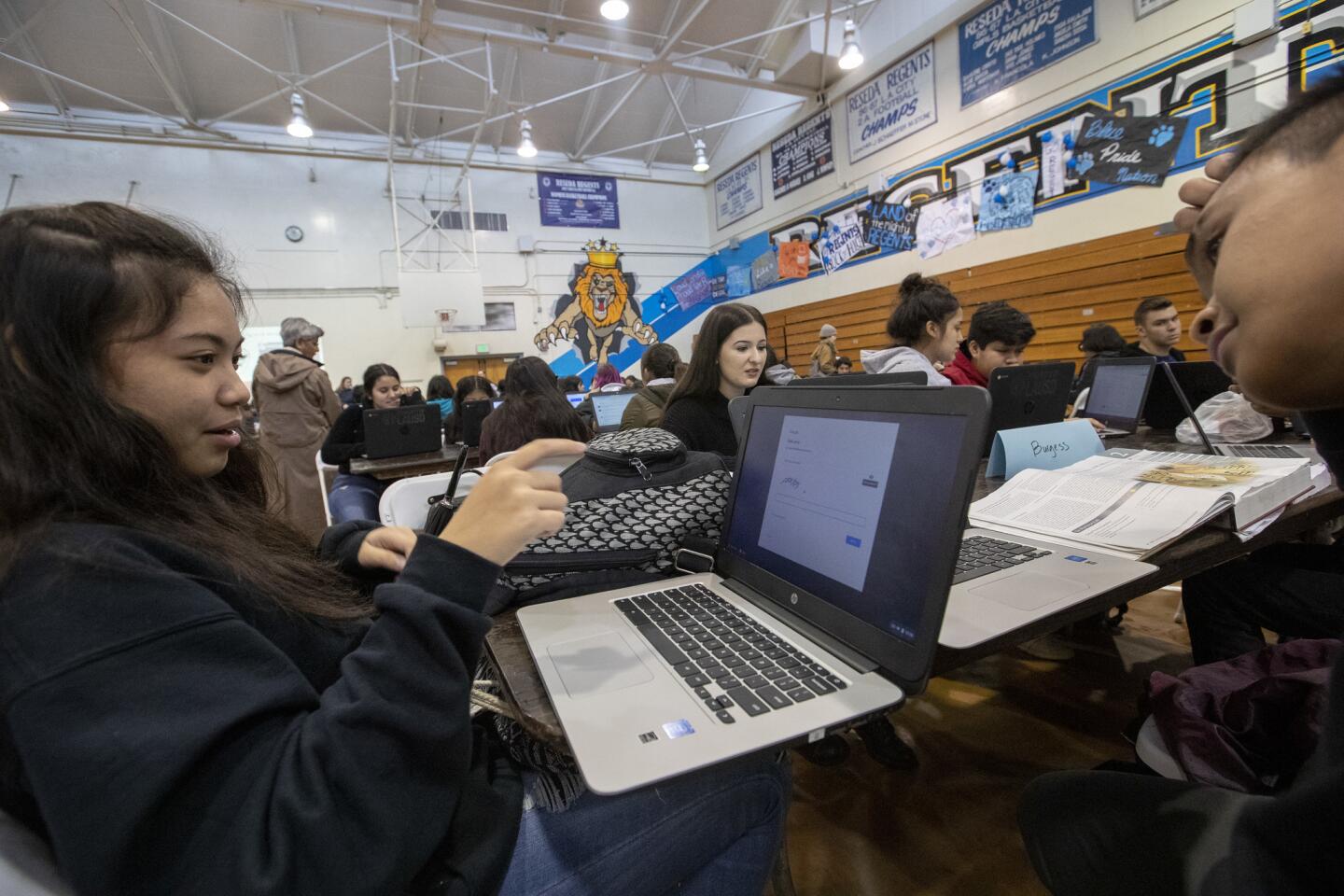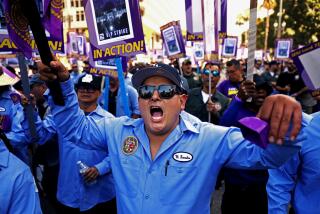A week ago, Los Angeles schools Supt. Austin Beutner went to Sacramento to nail down support for the school district if teachers decided to go on strike.
He came back sounding very optimistic that lawmakers understood the district’s finances were so perilous that it could not afford what the teachers were demanding.
But the images of teachers marching in the rain, often cheered by parents and students, have amounted to powerful politics in this blue state, and have weakened the district’s hand.
The teachers have told personal stories that many find hard to argue with: that too many students shouldn’t be crowded into classes, that schools should have nurses on hand every day. And that has up to now trumped Beutner’s grim financial diagnosis, even though it was largely endorsed by a county oversight agency.
Now, some lawmakers Beutner met with less than a week ago have scheduled a news conference Friday “in support of teachers and families to demand that LAUSD negotiate fairly.”
As the L.A. teachers’ strike enters its fifth day and a new round of negotiations begin, two realities are emerging: The tremendous enthusiasm over the walkout and the toll its taking on the school system.
Inside campuses, skeleton crews of supervisors, subs and remaining workers have herded students into large spaces, showing movies and plugging students into online coursework. About two-thirds did not show up, even though many working parents depend on schools to provide childcare and even meals.
The district estimates that each day of the strike is costing $10 million to $15 million, and Thursday’s student attendance was the lowest during the strike.
L.A. Mayor Eric Garcetti, whose possible entry into the 2020 presidential field has been challenged by the strike, is now trying to take a leadership role in ending it.
This was evident Thursday when he hosted negotiating teams from the school district and union at City Hall. They were the first talks in a week.
1/75
Teachers and their supporters fill Grand Park during a rally after a tentative agreement wath LAUSD on smaller classes, new community schools, nurses and a raise.
(Dania Maxwell / Los Angeles Times) 2/75
Erin Payne holds her daughter Olivia Johnson during a rally at Grand Park in downtown Los Angeles. LAUSD Superintendent Austin Beutner and United Teachers Los Angeles President Alex Caputo-Pearl announced a tentative deal today that could send teachers back to the classroom tomorrow, ending the first Los Angeles teachers strike in 30 years.
(Dania Maxwell / Los Angeles Times) 3/75
Maida Salido, Aurora Mireles and Stephanie Flores, left to right, celebrate during a rally at Grand Park in Los Angeles.
(Dania Maxwell / Los Angeles Times) 4/75
LAUSD Superintendent Austin Beutner and United Teachers Los Angeles President Alex Caputo-Pearl announced a tentative deal today that could send teachers back to the classroom tomorrow, ending the first Los Angeles teachers strike in 30 years.
(Dania Maxwell / Los Angeles Times) 5/75
Mallorie Evans, center, celebrates after an agreement between the teachers union and the LAUSD was reached Tuesday in downtown Los Angeles.
(Wally Skalij / Los Angeles Times) 6/75
Teachers celebrate after an agreement between the teachers union and the LAUSD was reached Tuesday in downtown Los Angeles.
(Wally Skalij / Los Angeles Times) 7/75
LAUSD Superintendent Austin Beutner, right, and United Teachers Los Angeles President Alex Caputo-Pearl, left, with Mayor Eric Garcetti announced a tentative deal that could send teachers back to the classroom, ending the first Los Angeles teachers strike in 30 years.
(Al Seib / Los Angeles Times) 8/75
Thousands of teachers attend a UTLA rally in Grand Park in downtown Los Angeles on Friday.
(Al Seib / Los Angeles Times) 9/75
Tom Morello, center, with guitar, is joined on stage by Perry Farrell, of Jane’s Addiction, and Wayne Kramer, with MC5, with tan jacket, as members of the UTLA Marching Band perform, “This Land is Your Land,” in Grand Park.
(Genaro Molina / Los Angeles Times) 10/75
From left, Lisa Ynfante, Iris Marin, Janis Nuno and Mireya Gutierrez, all LAUSD teachers join thousands at a rally in Grand Park.
(Al Seib / Los Angeles Times) 11/75
Ignacio Gordillo, Dean at Gage Middle School, shouts to the lawmakers at Los Angeles City Hall as thousands of educators rally in Grand Park.
(Genaro Molina / Los Angeles Times) 12/75
Xavi Moreno, center, gets ready for a rally in Grand Park.
(Al Seib / Los Angeles Times) 13/75
Jackie Goldberg, teacher, former school board member, who also served on the L.A. City Council and in the state Legislature visits with teachers attend rally in Grand Park.
(Al Seib / Los Angeles Times) 14/75
UTLA president Alex Caputo-Pearl, left, introduce himself to 5th grader Aryana Fields from Playa Del Rey Elementary School at the rally in Grand Park.
(Al Seib / Los Angeles Times) 15/75
Austin Beutner, LAUSD Superintendent, right, and Monica Garcia, LAUSD President, provide an update on the UTLA strike in Los Angeles on Friday.
(Genaro Molina / Los Angeles Times) 16/75
Thousands of educators with the United Teachers Los Angeles attend a rally on the fifth day of the teachers strike in Grand Park in downtown Los Angeles.
(Genaro Molina / Los Angeles Times) 17/75
From left, teachers Rosa Martinez, Maricela Chaidez and Lillian Garcia chant and cheer with fellow teachers preparing for a rally in Grand Park in front of Los Angeles City Hall Friday.
(Al Seib / Los Angeles Times) 18/75
Kimberly Barrera, a 6th grade teacher, joins fellow teachers preparing for a rally in Grand Park in front of Los Angeles City Hall Friday.
(Al Seib / Los Angeles Times) 19/75
Thousands of educators with the United Teachers Los Angeles attend a rally on the fifth day of the teachers strike at Grand Park in front of City Hall in downtown Los Angeles.
(Genaro Molina / Los Angeles Times) 20/75
Anavelia Valencia, left, and Courtney Moore, right, teachers at 99th Street Elementary school, perform a “rain dance” on the picket line in South Los Angeles.
(Al Seib / Los Angeles Times) 21/75
Teachers picket in the middle of Sunset Blvd., at Gordon Street in Hollywood.
(Genaro Molina / Los Angeles Times) 22/75
Antonio Solis, right, a teacher with Hollywood Primary Center, and Kevin Savage, center, a teacher at Vine Street Elementary, join fellow educators on the picket line along Sunset Blvd. in Hollywood.
(Genaro Molina / Los Angeles Times) 23/75
Louisa Stiles, 4, eats a slice of donated pizza on the picket line at Elysian Heights elementary school in Los Angeles.
(Kent Nishimura / Los Angeles Times) 24/75
School attendance fell again in the fourth day of the LAUSD teachers’ strike. Oscar Garcia, left, and Yacob Eyob work on their iPads at Burroughs Middle School.
(Brian van der Brug / Los Angeles Times) 25/75
The hallways of Elysian Heights Elementary were uncrowded on Thursday; outside, teachers and parents picketed.
(Kent Nishimura / Los Angeles Times) 26/75
Westminster Elementary kindergarten teacher Jessica Dunn makes her case to passing motorists on Abbot Kinney Boulevard in Venice on the third day of the LAUSD teachers’ strike.
(Al Seib / Los Angeles Times) 27/75
LAUSD teachers, parents and others protest in front of school board President Monica Garcia’s home in El Sereno.
(Marcus Yam / Los Angeles Times) 28/75
A police officer clears the road to allow a car to pass during a protest Wednesday night outside L.A. school board President Monica Garcia’s home.
(Marcus Yam / Los Angeles Times) 29/75
Kindergarten teacher Beth Clark is among picketers on Abbot Kinney Boulevard in Venice during Day 3 of the teachers’ strike Wednesday.
(Al Seib / Los Angeles Times) 30/75
Student counselor Sandra Santacruz-Cervantes, center, pickets in a crosswalk outside Hollywood High School on Tuesday.
(Gina Ferazzi / Los Angeles Times) 31/75
Educators and supporters pack San Pedro Street in downtown Los Angeles at a rally outside the headquarters of the California Charter Schools Association.
(Kent Nishimura / Los Angeles Times) 32/75
Janette Duran, from left, Lauren Maucere and Stephanie Johnson, all specialists at Marlton School for the deaf, cheer at a rally at the California Charter Schools Assn. in downtown Los Angeles.
(Al Seib / Los Angeles Times) 33/75
Student counselor Edwin Deleon, on a bicycle, joins parents, teachers and students in a crosswalk to picket outside Hollywood High School during the second day of the United Teachers Los Angeles strike.
(Gina Ferazzi / Los Angeles Times) 34/75
Students from Main Street School hold signs as teachers and supporters make their way through downtown Los Angeles to attend a rally at the California Charter Schools Assn.
(Al Seib / Los Angeles Times) 35/75
Parents, teachers and students picket outside Hollywood High School during the second day of the United Teachers Los Angeles strike.
(Gina Ferazzi / Los Angeles Times) 36/75
On the second day of teachers strike, the United Teachers Los Angeles rally outside California Charter Schools Assn. offices in Los Angeles.
(Irfan Khan / Los Angeles Times) 37/75
On the second day of teachers strike, the United Teachers Los Angeles rally outside California Charter Schools Assn. offices in Los Angeles.
(Irfan Khan / Los Angeles Times) 38/75
On the second day of teachers strike, the United Teachers Los Angeles rally outside California Charter Schools Assn. offices in Los Angeles.
(Irfan Khan / Los Angeles Times) 39/75
Elisabeth Mitchell, right, a kindergarten teacher at the Accelerated Schools, a community of public charter schools in South Los Angeles, joins fellow teachers as they picket outside the school on the second day of the teachers strike.
(Al Seib / Los Angeles Times) 40/75
Los Angeles Unified Supt. Austin Beutner addresses the media at LAUSD headquarters on the second day of the United Teachers Los Angeles strike.
(Irfan Khan / Los Angeles Times) 41/75
Stephanie Grace, center, and Lilly Diaz, right, teachers at The Accelerated Schools, a community of public charter schools in South Los Angeles cheer to passing vehicles as they join fellow teachers as they picket outside the school on second day of the teachers strike.
(Al Seib / Los Angeles Times) 42/75
UTLA President Alex Caputo Pearl, center, joins teachers on the picket line at The Accelerated Schools in South Los Angeles.
(Al Seib / Los Angeles Times) 43/75
Teachers at The Accelerated Schools, a community of public charter schools in South Los Angeles picket outside the school on second day of the teachers strike.
(Al Seib / Los Angeles Times) 44/75
UTLA teachers gather at city hall in downtown Los Angeles for a march and rally Monday, as they walked off the job in their first strike in 30 years.
(Marcus Yam / Los Angeles Times) 45/75
Corianne Cook, a teacher from Webster Middle School with her children, Ryn, 9, left, and Liam, 12, march to LAUSD district headquarters during the first day of the UTLA strike in Los Angeles.
(Marcus Yam / Los Angeles Times) 46/75
Mallorie Evans, center, an educational audiologist at Marlton School for the deaf, signs along with the speaker while Los Angeles Unified School District teachers and supporters gather at LAUSD headquarters in Los Angeles.
(Gary Coronado / Los Angeles Times) 47/75
UTLA teachers marched from downtown Los Angeles to LAUSD headquarters Monday, January 14, 2019, as they walked off the job in their first strike in 30 years.
(Marcus Yam / Los Angeles Times) 48/75
A supporter for the UTLA strike sports a Superman cape in Los Angeles.
(Marcus Yam / Los Angeles Times) 49/75
Mari Enyart, 42, helps her son Was Enyart, 7, with school work while they spend their morning at a Starbucks Cafe in South Los Angeles on the first day of the strike.
(Silvia Razgova / For The Times) 50/75
Reseda High students Roosevelt Jimenez, 17, left, and friend Kimberly Aquino, 17, right, sit in the school auditorium as UTLA teachers are out on strike in Reseda.
(Brian van der Brug / Los Angeles Times) 51/75
Dr. Frances Gibson, Chief Academic Officer at the L.A. Unified School District, serves as a substitute teacher leading a language arts class at El Sereno Middle School.
(Silvia Razgova / For The Times) 52/75
Teachers in a sea of umbrellas block 3rd and 4th streets over the 110 Freeway in downtown Los Angeles as they marched to LAUSD Headquarters from City Hall on first day of the UTLA teachers strike.
(Al Seib / Los Angeles Times) 53/75
Aleida Aguilar, a first grader at Robert F. Kennedy Community Schools in Los Angeles, is guided by her mother through the picket line formed by teachers on first day of the Los Angeles school teachers strike.
(Al Seib / Los Angeles Times) 54/75
Counselor Leah Zeller leads teachers as they chant in the rain on the picket line at Robert F. Kennedy Community Schools in Los Angeles.
(Al Seib / Los Angeles Times) 55/75
Teachers in a sea of umbrellas march up 3rd street over the 110 Freeway in downtown Los Angeles as they marched to LAUSD Headquarters.
(Al Seib / Los Angeles Times) 56/75
UTLA President Alex Caputo-Pearl organizes Los Angeles Unified School District teachers before marching from City Hall to LAUSD headquarters in Los Angeles.
(Gary Coronado / Los Angeles Times) 57/75
Los Angeles School Superintendent Austin Beutner, right, with School Board President Monica Garcia, met with Geri Guzman, left, and family members of students before holding a press conference at LAUSD Headquarters.
(Al Seib / Los Angeles Times) 58/75
UTLA teachers arrive at Los Angeles to LAUSD headquarters near the 110 Freeway Monday, as they walked off the job in their first strike in 30 years.
(Marcus Yam / Los Angeles Times) 59/75
Reseda High School vice principal Phyllis Castaneda clicks through a slide presentation in the campus auditorium as students at the school are in the school auditorium and gym as UTLA teachers are out on strike in Reseda.
(Brian van der Brug / Los Angeles Times) 60/75
Students picket at the entry of Carson Senior High School in Los Angeles.
(Dania Maxwell / Los Angeles Times) 61/75
Students at Reseda High are in the school gym as UTLA teachers are out on strike in Reseda.
(Brian van der Brug / Los Angeles Times) 62/75
Students join the picket line with striking teachers in Los Angeles.
(Marcus Yam / Los Angeles Times) 63/75
Teachers march towards LAUSD district headquarters during the first day of the strike in Los Angeles.
(Marcus Yam / Los Angeles Times) 64/75
Olivia Cali Gomez, 5, spends Monday morning learning what it means to go on strike, outside of Roosevelt High School in Los Angeles.
(Marcus Yam / Los Angeles Times) 65/75
Los Angeles Unified School District teachers and supporters march from City Hall to LAUSD headquarters in Los Angeles.
(Gary Coronado / Los Angeles Times) 66/75
Irma Torres, center, teacher from Heliotrope Ave. Elementary School, attends a UTLA rally at Los Angeles City Hall.
(Marcus Yam / Los Angeles Times) 67/75
Teacher Shari Sakamoto, left, joins teachers marching on a picket line Monday morning at Robert F. Kennedy Community Schools in Los Angeles on first day of the strike.
(Al Seib / Los Angeles Times) 68/75
Los Angeles Unified School District teachers and supporters gather at City Hall before marching to LAUSD headquarters in Los Angeles.
(Gary Coronado / Los Angeles Times) 69/75
99th Street Elementary School Principal Marissa Borden, 43, fist bumps 5-year-old Samantha Carlos, while she and her two brother arrive at school in South Los Angeles on the first day of the strike.
(Silvia Razgova / For The Times) 70/75
UTLA President Alex Caputo-Pearl, left, kicks off the LAUSD teachers’ strike at John Marshall High School in Los Angeles. <strong>More: <a href=”https://www.latimes.com/local/education/la-me-edu-los-angeles-teachers-strike-utla-president-20190114-story.html”>UTLA president calls for more money for teachers ‘in a city rife with millionaires.’</a></strong>
(Brian van der Brug / Los Angeles Times) 71/75
Members of UTLA picket in heavy rain outside 99th Street Elementary School in South Los Angeles.
(Silvia Razgova / For The Times) 72/75
Students join the picket line in support of the UTLA strike in Los Angeles.
(Marcus Yam / Los Angeles Times) 73/75
Mars Khan, 5, a transitional kindergarten student, carries a sign to support his mother, teacher Stefany Khan during a march in downtown Los Angeles.
(Al Seib / Los Angeles Times) 74/75
Teachers wave at passing vehicles on the 110 Freeway in downtown Los Angeles as they marched to LAUSD district headquarters.
(Al Seib / Los Angeles Times) 75/75
Reseda High School students Jania Garcia, 16, left, and classmate Dennis Miguel, 16, work on a college prep app on laptops in the school gym in Reseda, Calif.
(Brian van der Brug / Los Angeles Times) Assisted by senior aide Matt Szabo, Garcetti also has been on the phone with both parties trying to work out what a final deal might look like.
“The mayor asked and received commitment for both parties to stay at the table until they reach an agreement,” said spokeswoman Andrea Garcia on Thursday. “Mayor Garcetti has cleared his schedule and is in regular contact with both parties and state leaders, including the governor.”
Given his possible presidential ambitions, the strike’s outcome needs to be a win, and preferably a quick win. Garcetti had paid limited attention to the nation’s second-largest school district until the labor unrest.
Gov. Gavin Newsom seemingly has much less at risk than Garcetti, but he, too has been pulled into the fray.
Thanks to higher tax revenues, his new budget proposal for the state delivers added funds that could contribute to a settlement. He also faces pressure from a key ally — teachers unions — to do something to control charter schools — either by increasing oversight over them or limiting their growth, or both.
Politics around charters are tricky though; both unions and charter supporters are powerful special interests.
United Teachers Los Angeles, whose power in L.A. schools had been diminished by the rise of charter schools, seems to be on roll this week. But that might not last.
The organizing momentum has energized members. That’s especially important because a Supreme Court ruling last year made all union dues and fees optional. And, at this point, members can look forward to a deal that meets or exceeds reasonable expectations.
Union President Alex Caputo-Pearl has raised the expectations of his members — and their animus toward Beutner — to a fever pitch. And yet a final deal may look a lot like the district’s most recent offer in the key particulars.
Peripheral elements could prove crucial — like a pilot program using union-backed reforms. Tougher accountability for charter schools at the state level also would be something the union could sell as a win.
The length of the strike also matters, as does the unknown depth of public support. For Caputo-Pearl to win policy concessions on charters at the state level, timing could be everything.
The superintendent came into office last May on a divided vote, and the mixed loyalty is showing, too. Board President Monica Garcia has often been by Beutner’s side at news conferences this week. Others on the board have been less visible.
Board member George McKenna, who voted against hiring Beutner, called this week for an immediate settlement — and he seemed to be talking to Beutner more than to the union.
Scott Schmerelson, who also voted against Beutner, issued a statement openly siding with teachers, saying he could no longer accept that board members should present a united front.
howard.blume@latimes.com
Twitter: @howardblume
